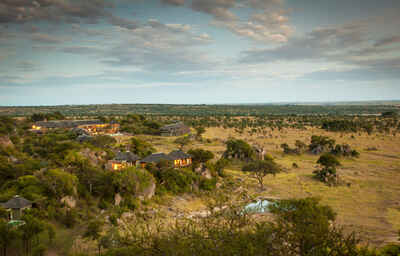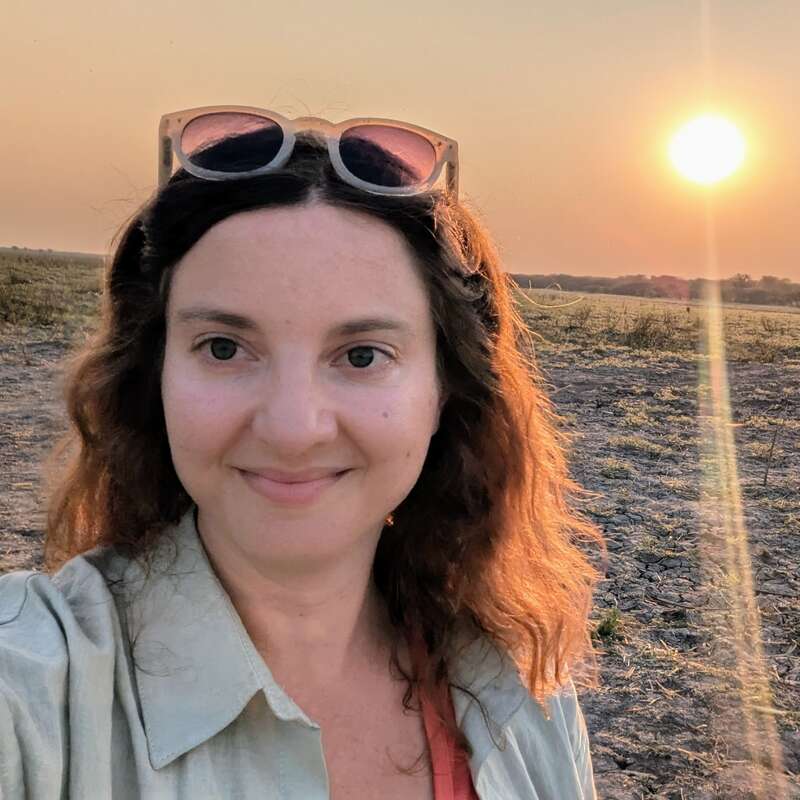About Four Seasons Safari Lodge Serengeti
The very large, luxury Four Seasons Safari Lodge Serengeti is located in the centre of the Serengeti National ...
... Park, backing onto an extensive low kopje and with a waterhole adjacent to the lodge. It lies 25km north of the productive wildlife area around Seronera, which has excellent permanent game. This area also hosts the migration in season, although it is usually one of the busier areas of the park.
This luxurious hotel won't appeal to safari purists, but it's a great choice if you're looking for international-style five-star accommodation. With its pools, kids' club and other facilities, it's also excellent for families. That said, the lodge is relatively insulated from its surroundings, compared with the park's tented camps. Although it’s a beautiful property, you could easily forget that you are even in the Serengeti!
Our view
This luxurious hotel won't appeal to safari purists, but it's a great choice if you're looking for international-style five-star accommodation. With its pools, kids' club and other facilities, it's also excellent for families. That said, the lodge is relatively insulated from its surroundings, compared with the park's tented camps. Although it’s a beautiful property, you could easily forget that you are even in the Serengeti!
Accommodation
77 rooms
Children
Good for 5+
Open
All year
Activities

4WD Safari

Birdwatching

Hot air ballooning

Private activities
Traveller reviews of Four Seasons Safari Lodge Serengeti
1 real, un-edited reviews from Expert Africa's travellers.
Arrived 21 Jul 2015, 5 nights
"Great hotel"
Overall rating: Excellent
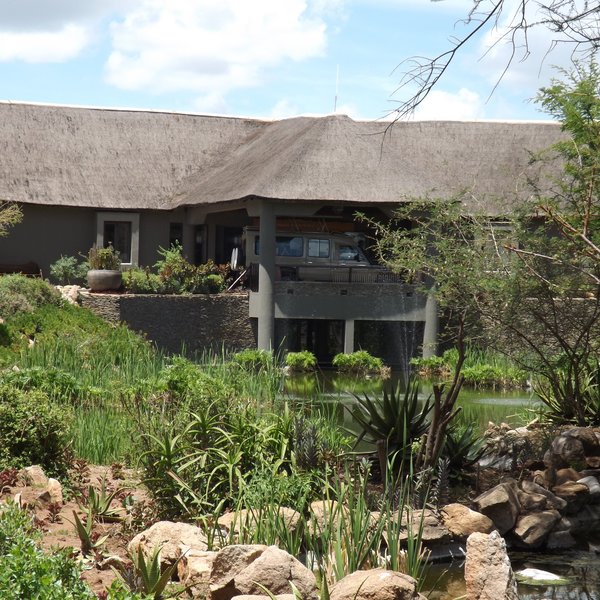
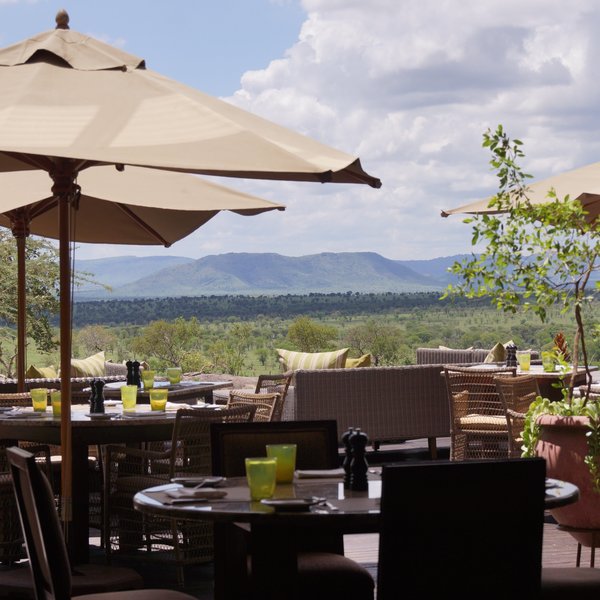
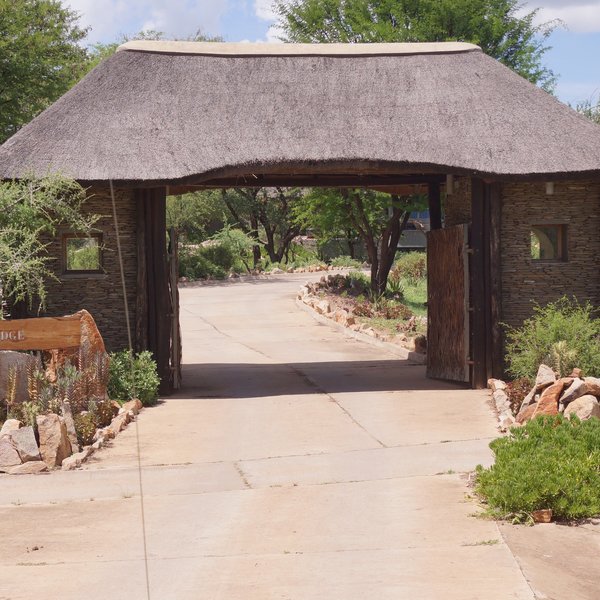
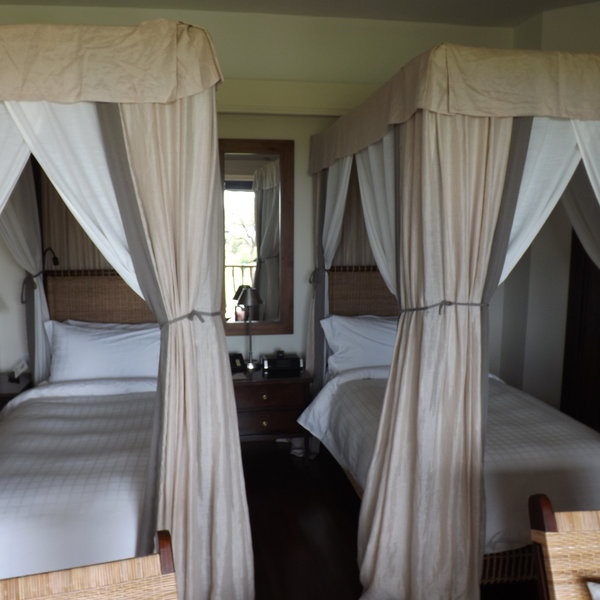
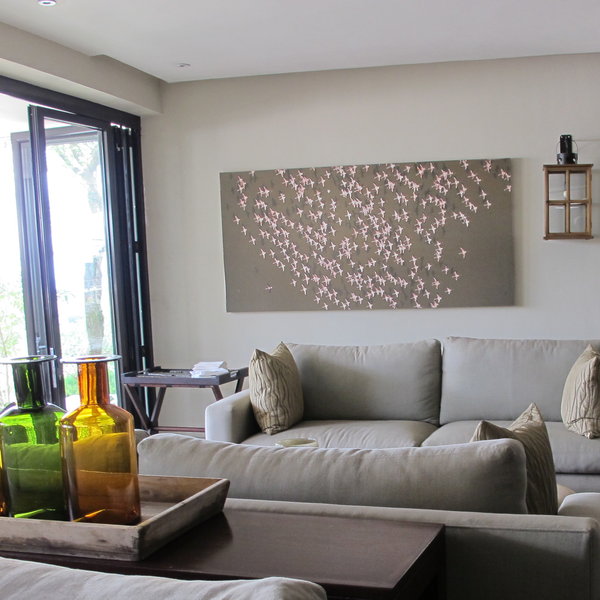
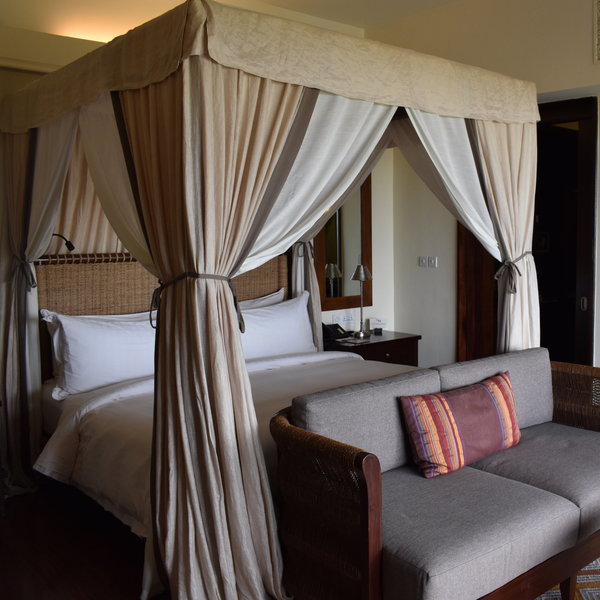
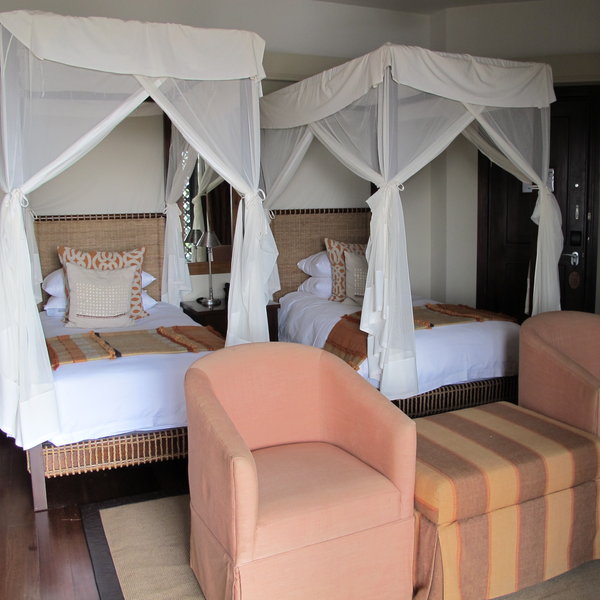
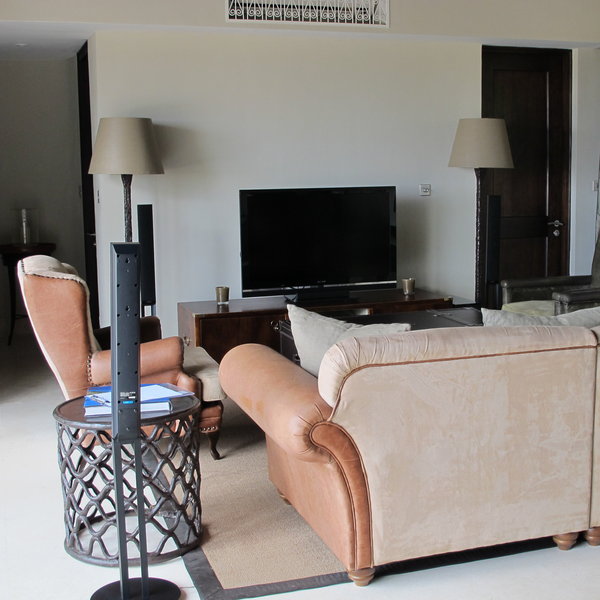
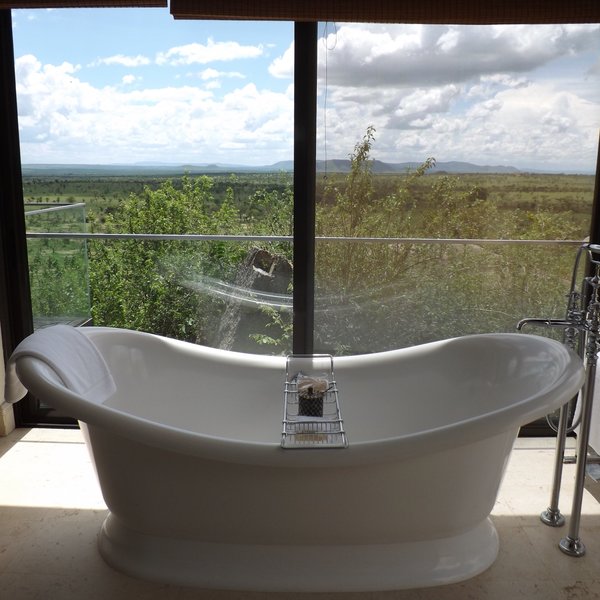
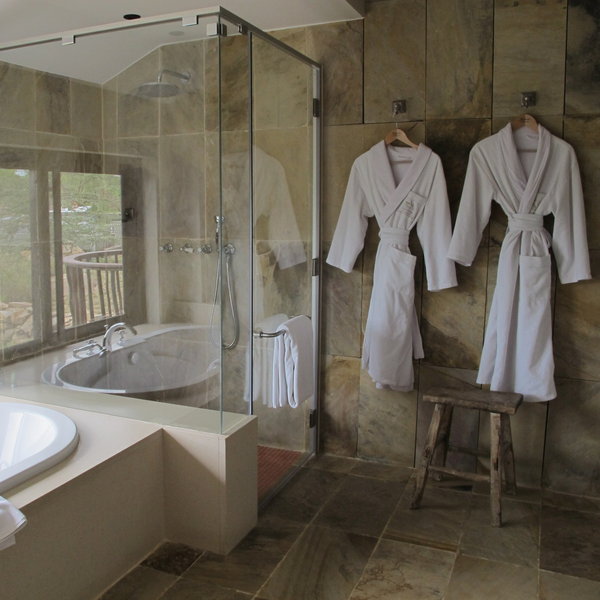
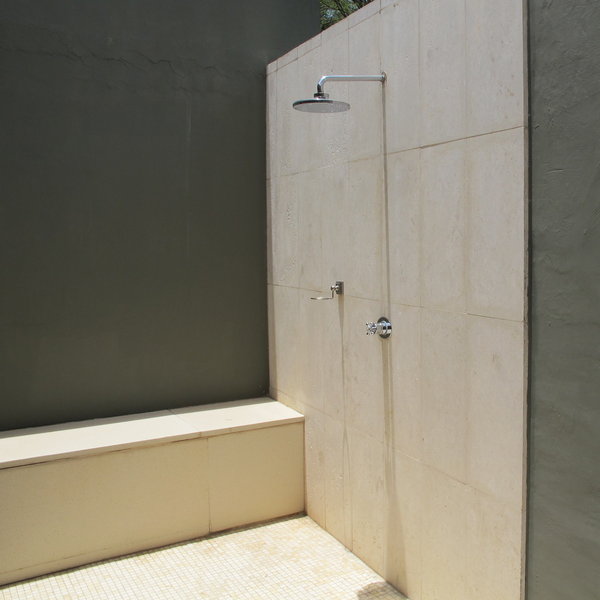
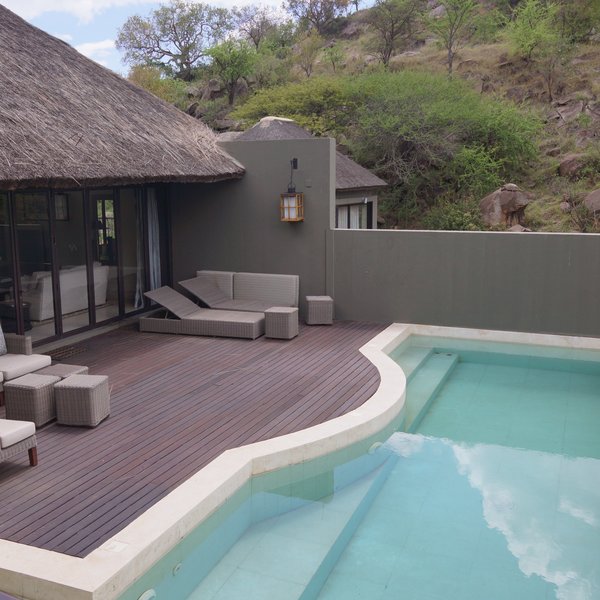
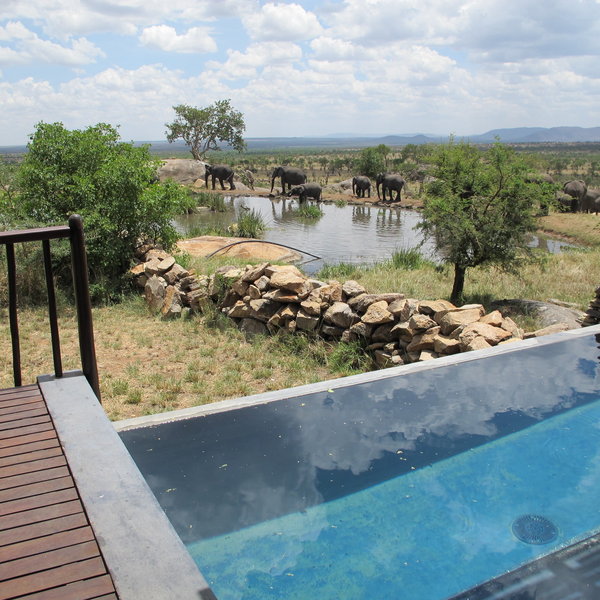
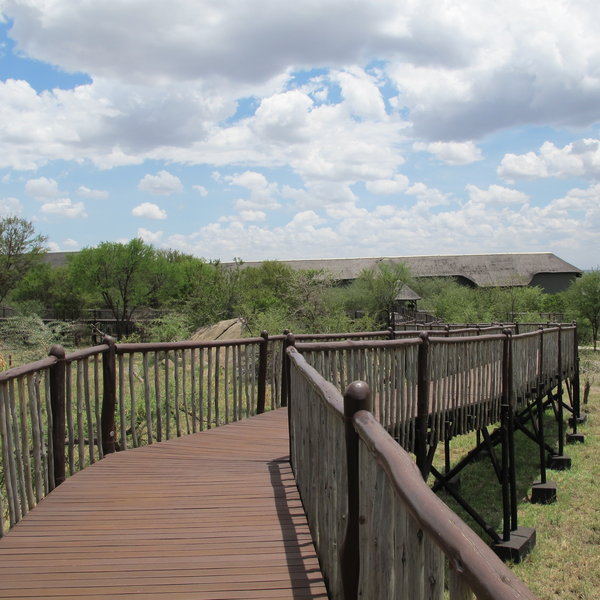
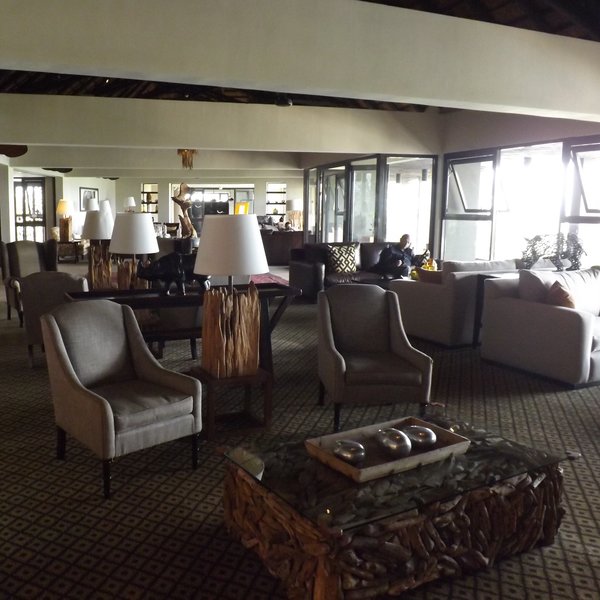
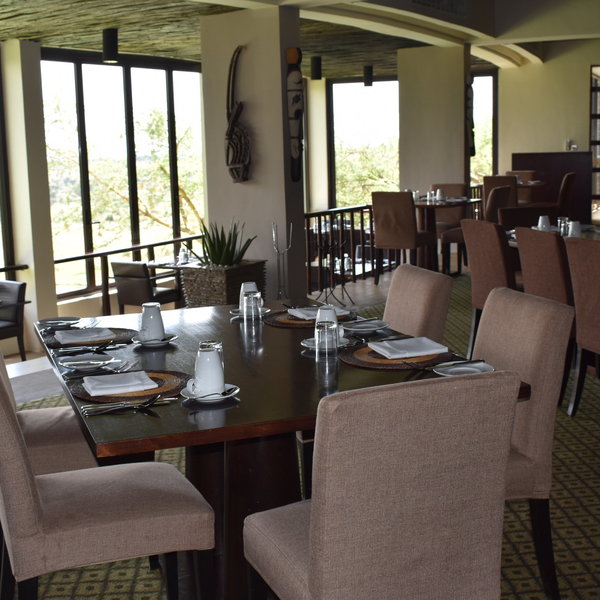
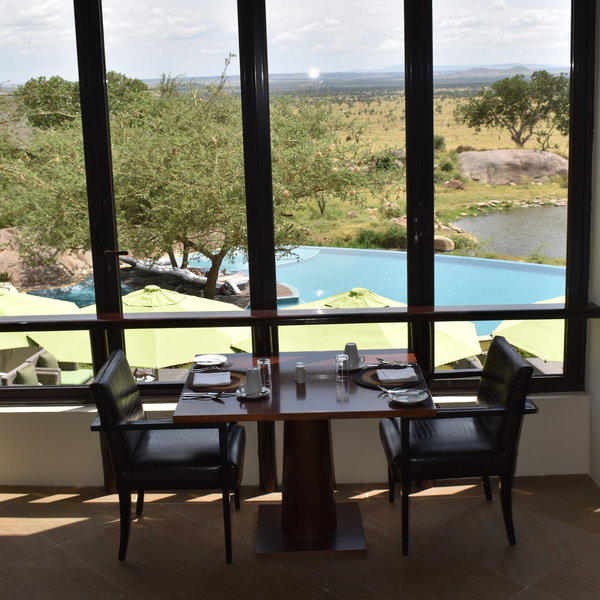
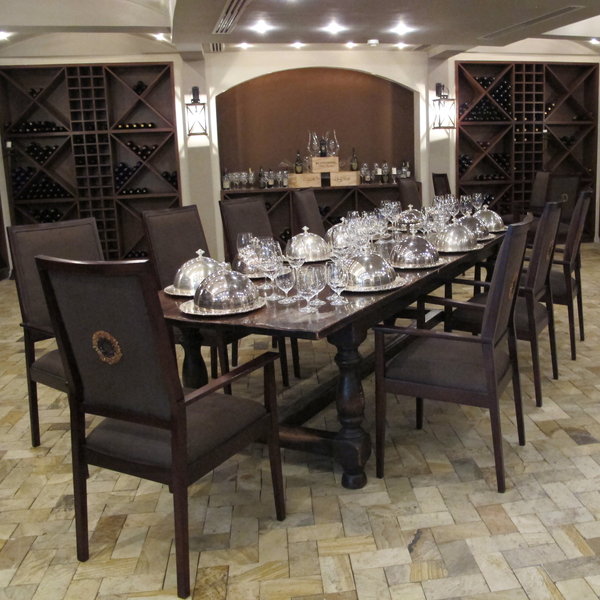
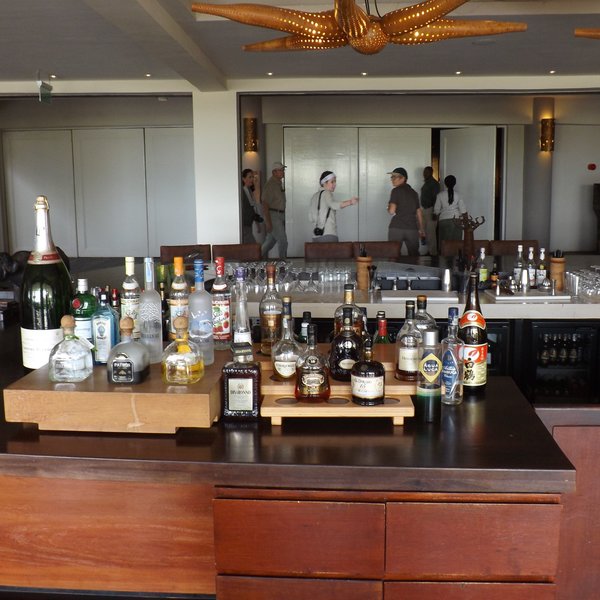
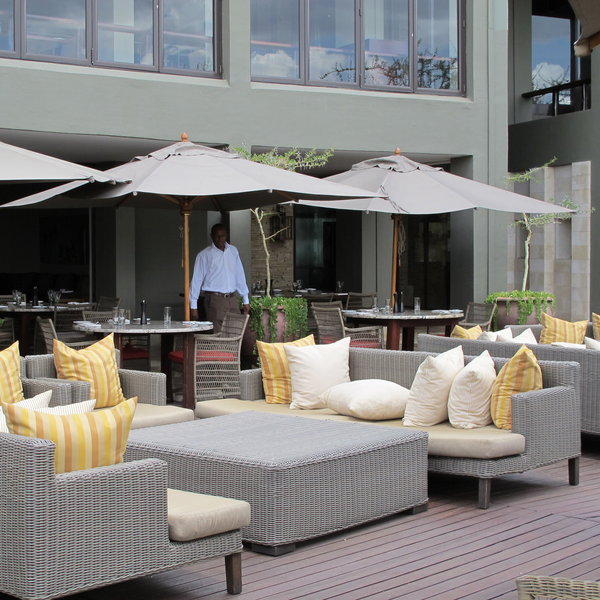
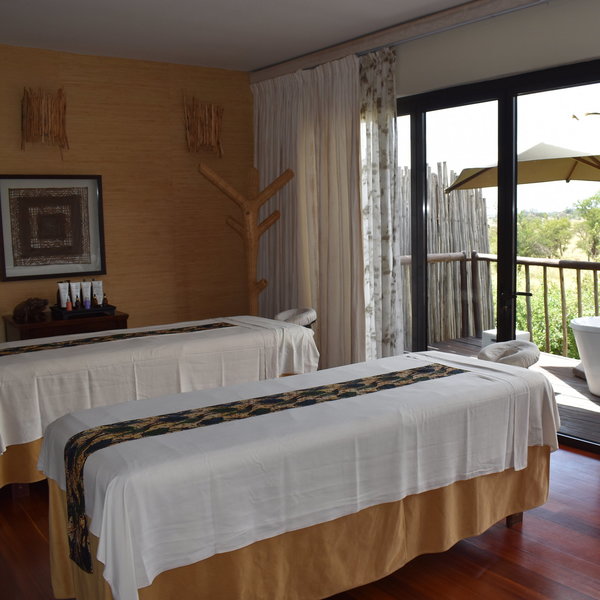
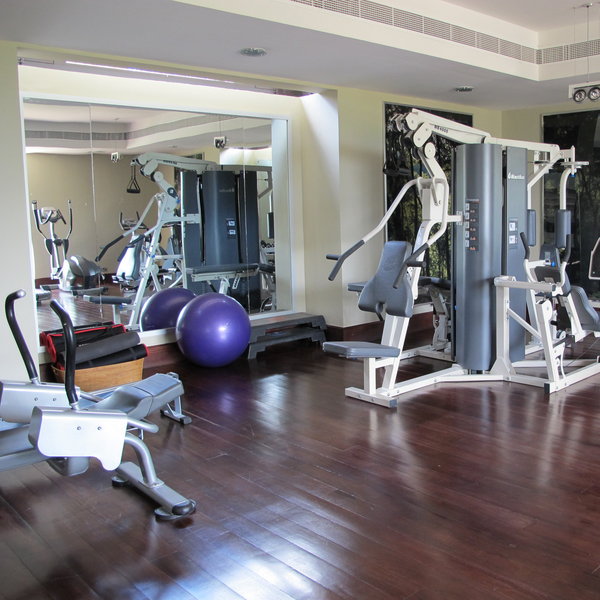
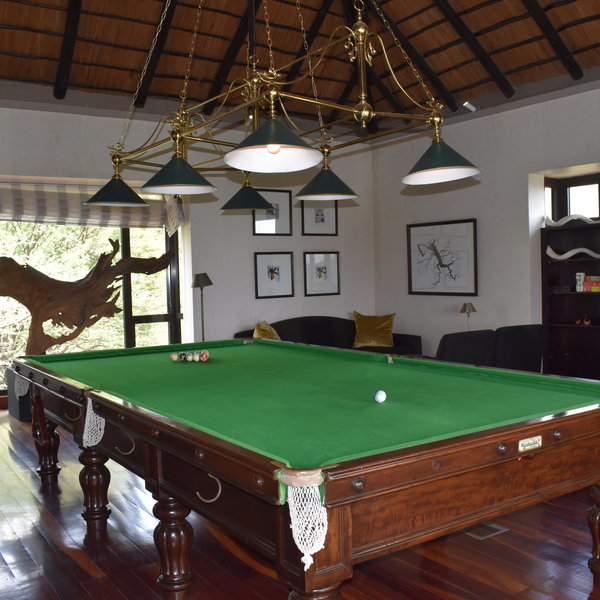
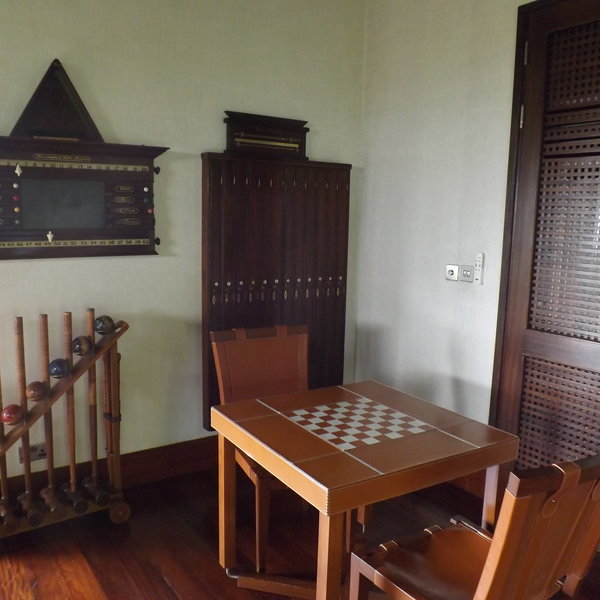
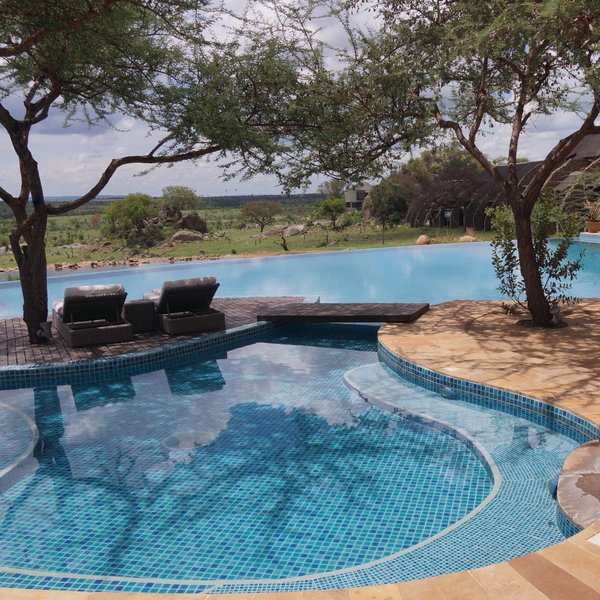
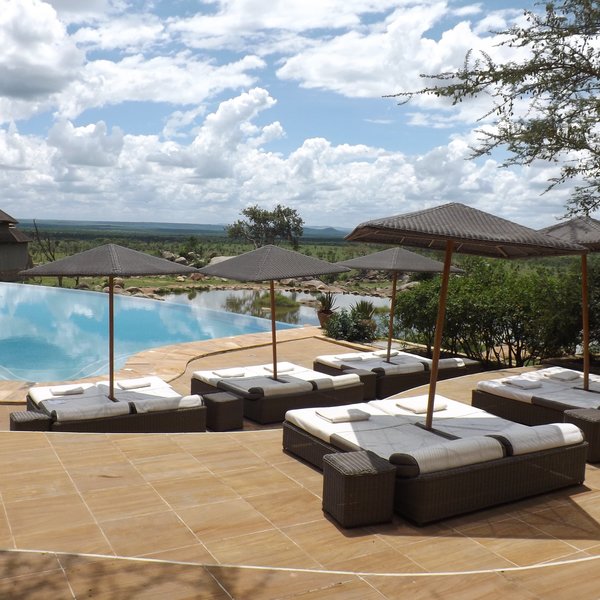
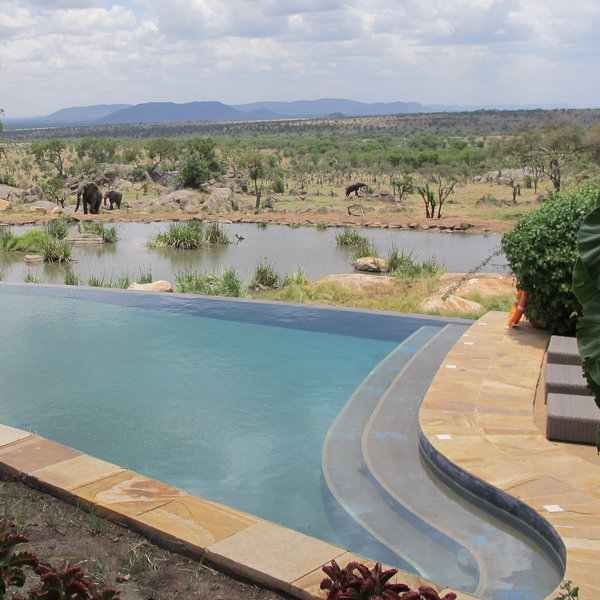
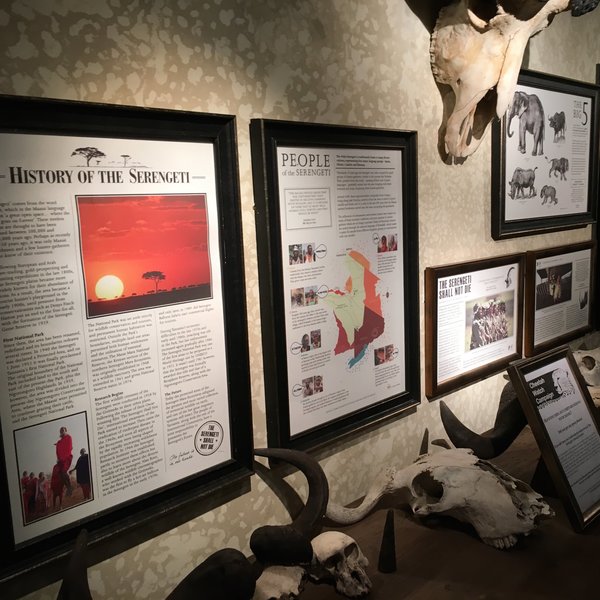
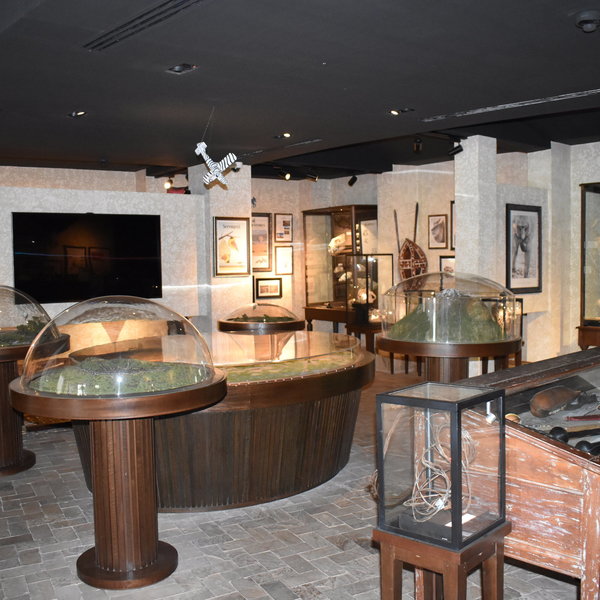
Expert Africa's gallery
When we travel we take lots of photos ourselves to give you a real and un-edited view of the safaris. See our 47 pictures of Four Seasons Serengeti to get the candid view.
View galleryFour Seasons Safari Lodge Serengeti: Our full report
The very large, luxury Four Seasons Safari Lodge Serengeti is located in the centre of the Serengeti National ...
... Park, backing onto an extensive low kopje and with a waterhole adjacent to the lodge. It lies 25km north of the productive wildlife area around Seronera, which has excellent permanent game. This area also hosts the migration in season, although it is usually one of the busier areas of the park.
Formerly the Bilila Lodge Kempinski, this hotel was taken over in 2012 by the Four Seasons group, and renovated to their high standards. The hotel sits on rocky kopjes, with raised wooden walkways linking the various parts of the property. With the lodge seemingly floating a few metres above the hillside, the wildlife can and does enter the premises from time to time: buffalo and various antelopes are often seen here.
With 72 rooms and 5 villas, a maximum occupancy of 180 guests, and some 250 staff, the Four Seasons Safari Lodge is the largest property in the Serengeti – and certainly the smartest of the park's large, hotel-style lodges. The furniture and fittings are well suited to the spacious, airy rooms and carefully chosen for their luxurious feel and contemporary safari style. These elements are enhanced by modern comforts and top facilities such as air conditioning, internet access, a spa and a well kitted-out gym.
In addition to the spa and fitness centre, the main facilities at Four Seasons Safari Lodge Serengeti include a comfortable lounge and reception area just inside the lodge entrance on the first floor, and a large bar on the ground floor. The lodge's first floor has a vast restaurant serving international cuisine prepared in an open kitchen. Large glass windows allow diners to enjoy views over the waterhole and Serengeti plains beyond. At the heart of the lodge is an atrium, open to the sky, with tables set around a central fireplace, to create a boma-style dining area. A cavernous wine cellar is available for private dining, and also offers daily wine-tasting with a specific focus on South African wines.
Also installed in the central part of the hotel is a highly impressive, small museum, with a wealth of well-designed modern exhibits, including interactive displays and explanations of the Serengeti ecosystem and the wildebeest migration. It’s really worth spending a bit of time in here! Next-door is a cinema room, which shows regular wildlife documentaries.
Outdoors, a large deck with umbrella-shaded tables is a great location for a light lunch or sundowner cocktail. A second wooden deck, dotted with sunloungers, partly wraps around an infinity swimming pool. Both overlook the waterhole. As well as good numbers of plains game, and the odd predator, herds of elephant frequently come to drink here.
The Four Seasons Safari Lodge's spa is like a lodge within a lodge. Six individual pavilions, connected like every other part of the hotel by aerial walkways, are used as treatment rooms. A wide option of treatments is available from about US$75-$420 depending on treatment type and length. The themes here are all Maasai-based, with “hot rungu" (Maasai club), known as kiffa in Swahili, rather than hot stone. Each treatment room has two beds, shower and steam room, and an outside bath. The spa has dedicated yoga studio and a yoga instructor from India. You can do rock-top yoga sundowner sessions on the top of the nearby kopje, accompanied by Maasai askaris.
The lodge's well equipped Kijana Children's Club offers children hours of entertainment and is supervised by professionally qualified staff. There is an arts and crafts room, books and toys area and a separate film and video game section. .
The lodge also has a well-equipped business centre offering wired and wireless internet access, audio-visual equipment and printing. As you would expect, the Four Seasons also has excellent conference facilities.
Raised wooden walkways take you between the main areas and Four Seasons' rooms, suites and villas. The rooms and suites are located in two wings, each consisting of three blocks of 12 rooms on two levels. In each block, four Savannah Rooms and two Terrace Suites are located on the lower level, while the six Horizon Rooms are located on the upper level. The Horizon and Savannah rooms are identical in terms of layout and furnishings, but the Savannah rooms have flat ceilings, while the Horizon rooms above them have vaulted, thatched roofs.
All the rooms have been built to a very high level of comfort, complete with top-quality linens, down pillows (hypoallergenic pillows are supplied on request), and luxurious bathrobes. Each room also has a TV channel which transmits a live feed from the floodlit water hole. The rooms are paired, so that a room with a kingsize bed and a room with twin beds share a private front door, enabling parents and children to interconnect.
All the Four Seasons accommodation is air-conditioned and very spacious, and the Terrace Suites have some of the largest bedrooms in the Serengeti. The suites have a second bathroom and loo accessed from the lounge. They also have a small swimming pool on each of their decks, measuring roughly 4m x 2.5m and 1.4m deep.
The whole hotel has been thoughtfully designed with accessibility in mind, there is a lift and lots of ramps. There is also one purposely built accessible bedroom with a wet room.
- The 24 Savannah Rooms , each of which covers a chunky 55m² and has one king-size or two twin beds plus a sofa, and a dining table with two chairs. Facilities include air conditioning, blackout curtains, flat- screen TV, telephone (with voicemail), safe, hairdryer, minibar, tea/coffee- making facilities, a torch/flashlight, a good-sized safe (suitable for a laptop), internet cable points and WiFi access. Each room also has a small private outdoor verandah and a generous en-suite bathroom, including a separate shower and bath with a similar view onto the surrounding park as the verandah.
- The 36 Horizon Rooms are the same size and have the same furnishings and facilities as the Savannah Rooms, but they are on the upper level, beneath a thatched grass roof, giving even more impressive views from their balconies and bathrooms. Like the Savannah rooms, these Horizon rooms can comfortably sleep two adults and one child.
- The 12 Terrace Suites are larger (around 88m²), with a small plunge pool, an outdoor shower, a second bathroom and a lounge area with space that could take two 'trundle beds' (converted from the sofa and chaise longue)– so these rooms can comfortably sleep two adults and two children.
- The five villas are located a fair distance away to the west, offering extra privacy and exclusivity. There is a 1-bedroom villa, two 2-bedroom villas and the 3-bedroom Presidential Villa. As well as the facilities common to the rooms and suites, each villa has a kitchen, separate lounge and a small swimming pool. You can have a butler and cook on request, but most villa guests use the main lodge restaurants. When we visited the villas, despite none of them having guests, all their private pools were spotless and sparkling blue.
Activities
4WD Safari
Birdwatching
Hot air ballooning
Private activities
Families & children
- Attitude towards children
- Children are welcome.
- Property’s age restrictions
- No age restrictions.
- Special activities & services
- Plenty of activities designed specifically for children are on offer, currently coordinated by an enthusiastic guide. As well as the very impressive kid's club, child minders can be arranged on request.
- Equipment
- Cots and high-chairs.
- Generally recommended for children
- This is one of the best options in the Serengeti for children.
- Notes
- Families will find plenty of space in one of the larger villas. Alternatively, the Savannah or Horizon rooms can take an extra bed for a child, whilst the Terrace suites can have an extra two beds. It's also possible to request two adjoining Savannah Rooms – where the two rooms share a communal entrance vestibule.
Food & drink
- Usual board basis
- Full Board
- Food quality
- The Kula, Boma and Maji restaurants at Four Seasons Safari Lodge serve “pan-African" and “international-style" cuisine. Breakfast and dinner are usually served as a buffet, while light lunches are served on the deck, in the bar, or in the lounge. At the Boma restaurant, they specialise in local grills, sometimes accompanied by Maasai performers. The Maji is an à la carte lunch venue (11:30-17:00) with excellent views to the southwest.
The food we thought was pretty good. You can also drop in here for a snack or a full meal if you're driving through the Serengeti. - Dining style
- Individual Tables
- Dining locations
- Indoor and Outdoor Dining
- Further dining info, including room service
- Yes
- Drinks included
- Most drinks are included. Only Champagne, premium wines and luxury spirits are extra.
Getting there
- Location
- Serengeti Migration Area, Tanzania
- Ideal length of stay
- Most visitors staying at the Four Seasons will probably want to spend some days just relaxing at the hotel, as well as time exploring the central Serengeti on game drives. On that basis, at least four nights here would be a good length of time, and up to a week would be fine for most people.
If you are on safari for concentrated game-viewing then after four nights you would want to move on to a new area. - Directions
- The Four Seasons Safari Lodge is about 90 minutes from Seronera airstrip, but the drive may take longer if you have interesting wildlife sightings on route.
- Accessible by
- Fly-and-Transfer
Special interests
- Family safaris
- Next to a waterhole, the Four Seasons Serengeti is a large, international-style hotel that makes for safe, luxurious family safari holiday in Tanzania. This is one of the few lodges with special children’s activities, coordinated by an enthusiastic guide.
- See ideas for Family safaris in Tanzania
- Wellbeing retreats
- Four Seasons Safari Lodge Serengeti has a comprehensive spa with six treatment rooms. Trained therapists offer a variety of treatments for couples and singles including massages, facials and manicures.
- See ideas for Wellbeing retreats in Tanzania
- Luxury safaris
- For a safari based out of truly luxurious hotel, this Four Seasons is one of the best options in Africa. High-end facilities (typical of this group) include an excellent spa, a gym, air-conditioning and internet access – complete with live streaming from the adjacent water-hole!
- See ideas for Luxury safaris in Tanzania
Communications
- Power supply notes
- Electricity is available 24/7, but there has been no effort to use sustainable sources.
- Communications
- Wifi is available throughout the lodge - including in the rooms – for up to 2 devices per party. You can pay a premium to connect up to 4 devices.
- TV & radio
- Each guest room is fitted with satellite TV, with DSTV and a channel guide. One channel is devoted to night-vision cameras positioned by the waterhole.
- Water supply
- Borehole
- Water supply notes
- Water is supplied by borehole and water harvesting. The tap water is safe to drink, however bottled water is supplied to guests.
Health & safety
- Malarial protection recommended
- Yes
- Medical care
- Four Seasons Safari Lodge has a doctor on site, and access to flying doctors in the event of a medical emergency. The closest airstrip is Seronera airstrip, 90 minutes drive away.
- Dangerous animals
- High Risk
- Security measures
- Each guest room is fitted with a safe for personal belongings. During the day security guards (askaris) are ever present in the lodge grounds, and after dark guests are escorted to their rooms. There are also security cameras at all room entrances.
- Fire safety
- Fire extinguishers and hose pipes are strategically located throughout the lodge and there are sprinklers in all corridors. There is also a fire break around the lodge. There is a full Four Seasons fire-training programme.
Useful info
- Disabled access
- In Place
- Laundry facilities
- A full laundry service is offered at an additional charge (currently $35 per day)
- Money
- The rooms have large safes and there is a foreign exchange bureau at the front desk.
- Accepted payment on location
- Four Seasons Safari Lodge accepts payment by Amex, MasterCard and Visa and there is surcharge. You can also settle any extras in cash using most major currencies including Tanzanian shillings, US dollars, British pounds and euros. The lodge does not accept travellers’ cheques.
Plan and book your trip with Expert Africa
All of our trips are tailor-made, so we'll always adapt them to suit you. Talk to an Expert and let us plan and arrange your perfect trip.

Talk to an Expert
Call or email us now! We’ll match you with the Specialist in our team who is best suited to help you. Then together we can start planning your trip.

Set up your itinerary
Based on our experience and your ideas, your specialist will create a detailed, costed itinerary. We’ll refine it together, until we have a trip that you’re perfectly happy with.

Prepare for your trip
The same Specialist will make the seamless arrangements for your trip, send you detailed travel documents, and be available to answer any questions before you depart.

Travel with peace of mind
After you set off, you’ll be cared for by our partners in Africa, most of whom have worked with Expert Africa for decades. And if you ever need us urgently, we’re available 24/7.

When you return
We love to learn about your trip, and so will always be grateful if you’ve the time to give feedback to your Specialist when you return.
Four Seasons Safari Lodge Serengeti's location
Look closer at the environment and surroundings of Four Seasons Serengeti.
Excursions from Four Seasons Serengeti
Optional extra day-trips and excursions possible whilst you're staying at Four Seasons Serengeti. Talk to us: these are usually best arranged before you go.
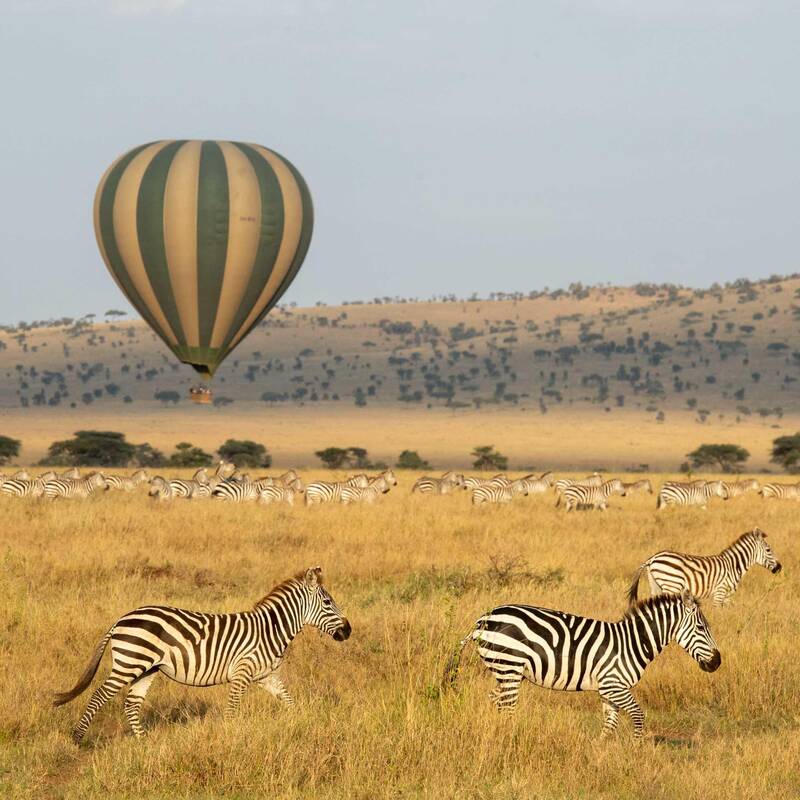
Balloon Safari over the Serengeti
Three hours - approx. one hour flight
As the sun rises over the Serengeti National Park in northern Tanzania, climb aboard for an extraordinary adventure. For an hour you’ll float in a hot air balloon over beautiful savannah and woodland and a diversity of plains wildlife.
More about Balloon SafariOther lodges in Serengeti Migration Area
Alternative places to stay in this same area.
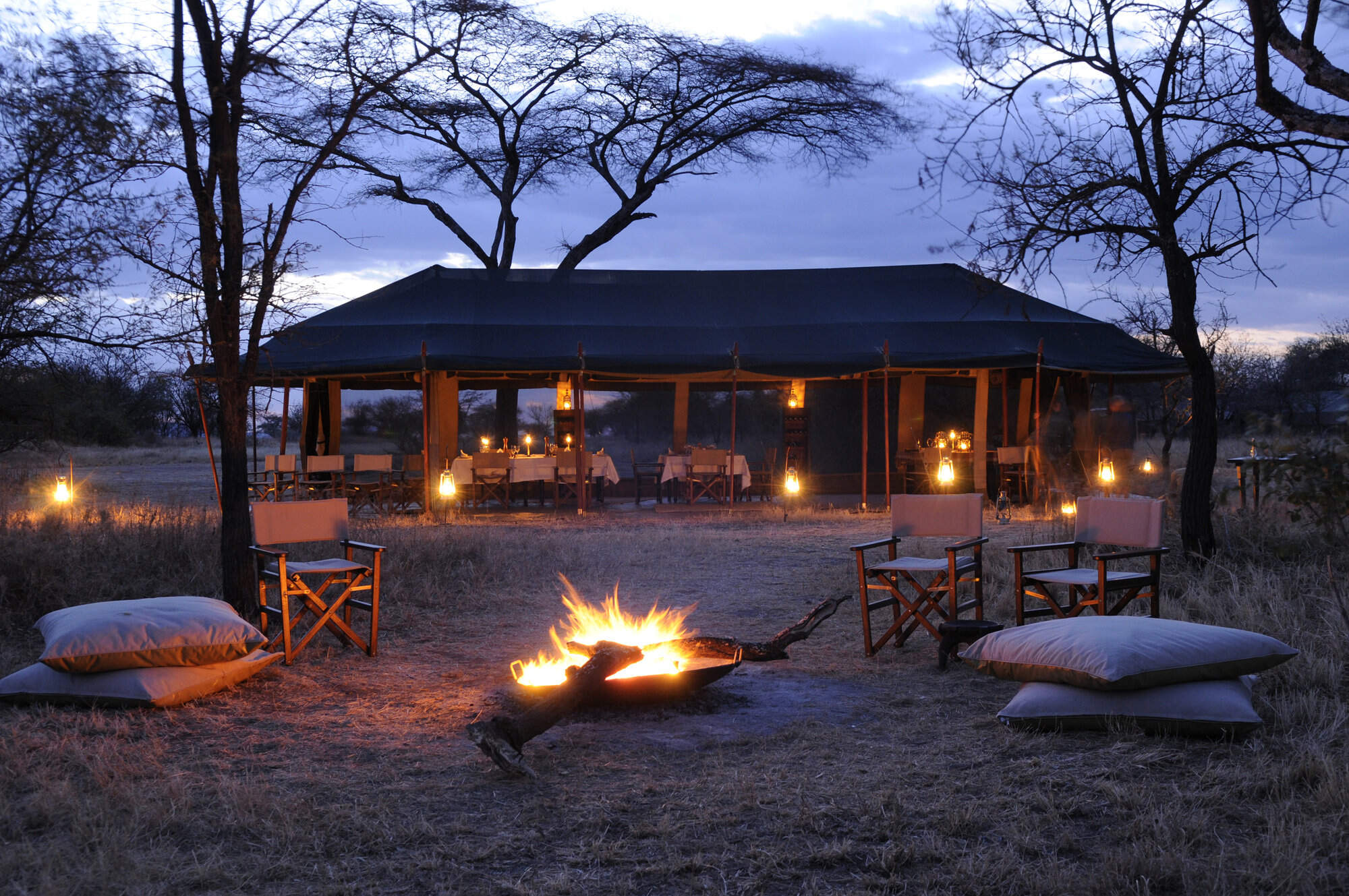
Olakira Camp
Comfortable, friendly and relaxed, Olakira Camp moves between the Mara River and the southern Ndutu area, in line with the wildebeest migration.
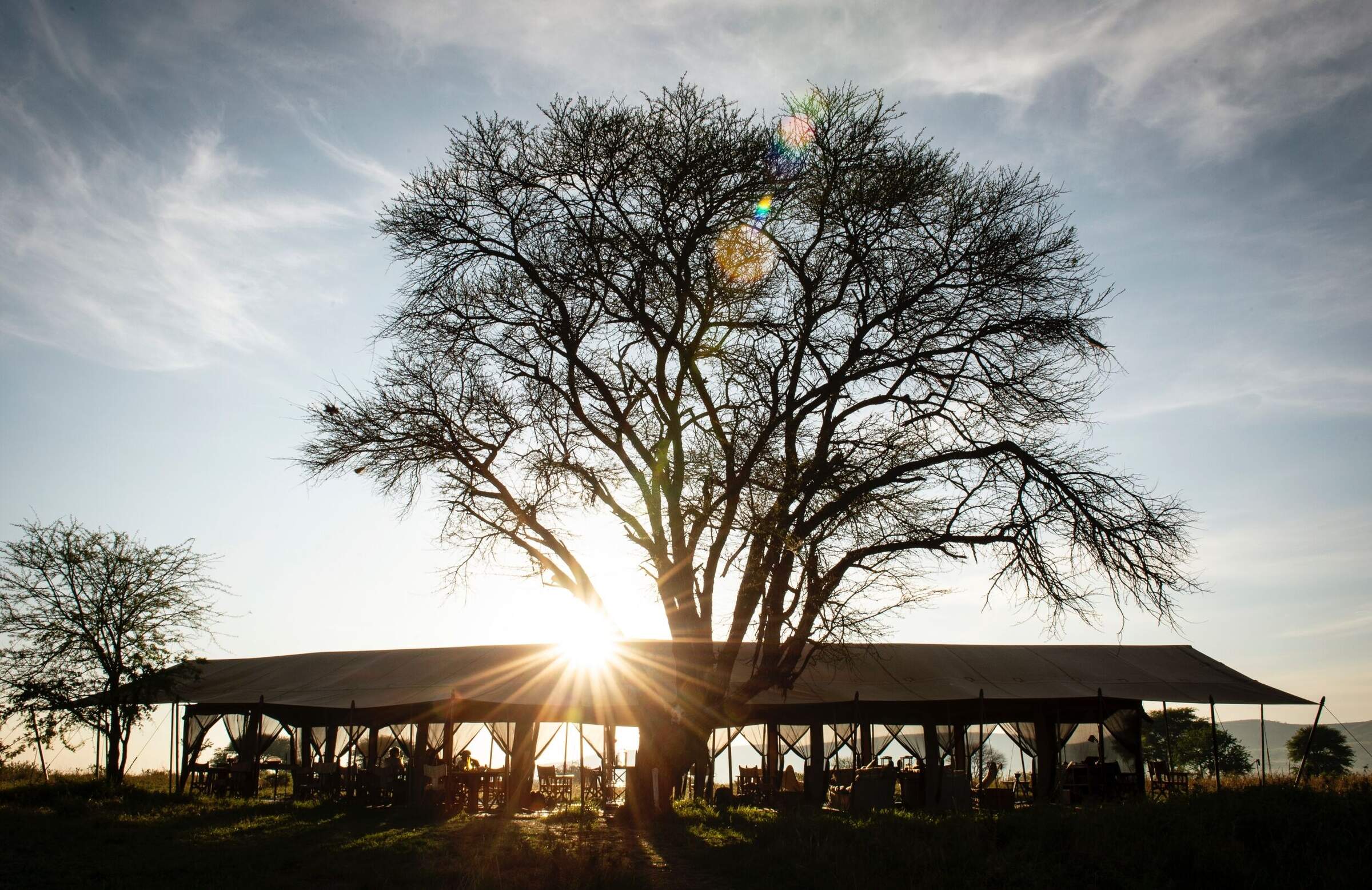
Nomad Serengeti Camp
Serengeti Safari Camp is a well-appointed tented camp that moves several times a year to follow the predicted path of the migration.
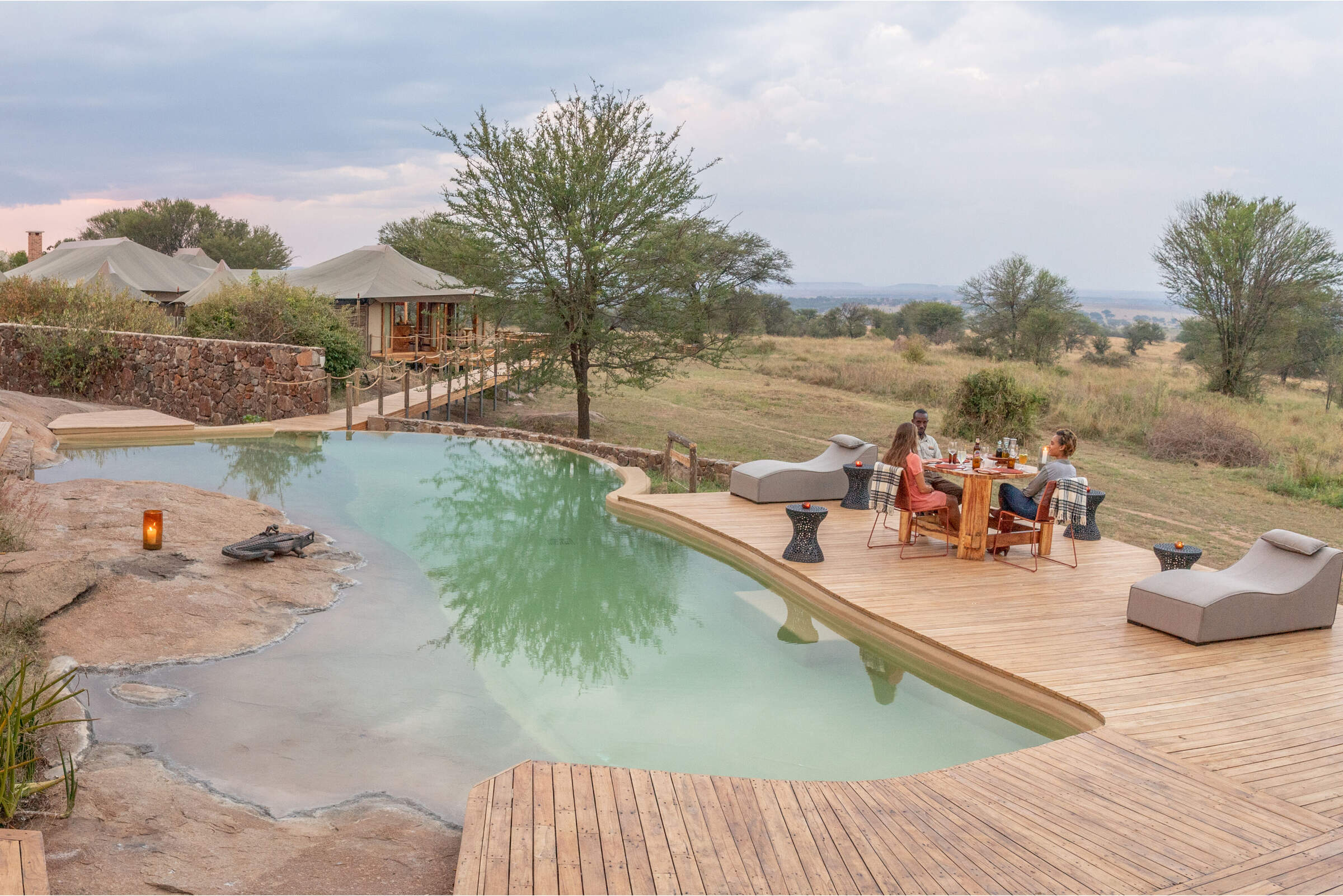
Sayari Camp
In the northern Serengeti, near the Mara River, luxurious Sayari Camp offers excellent wildife all year – boosted further by the wildebeest migration.
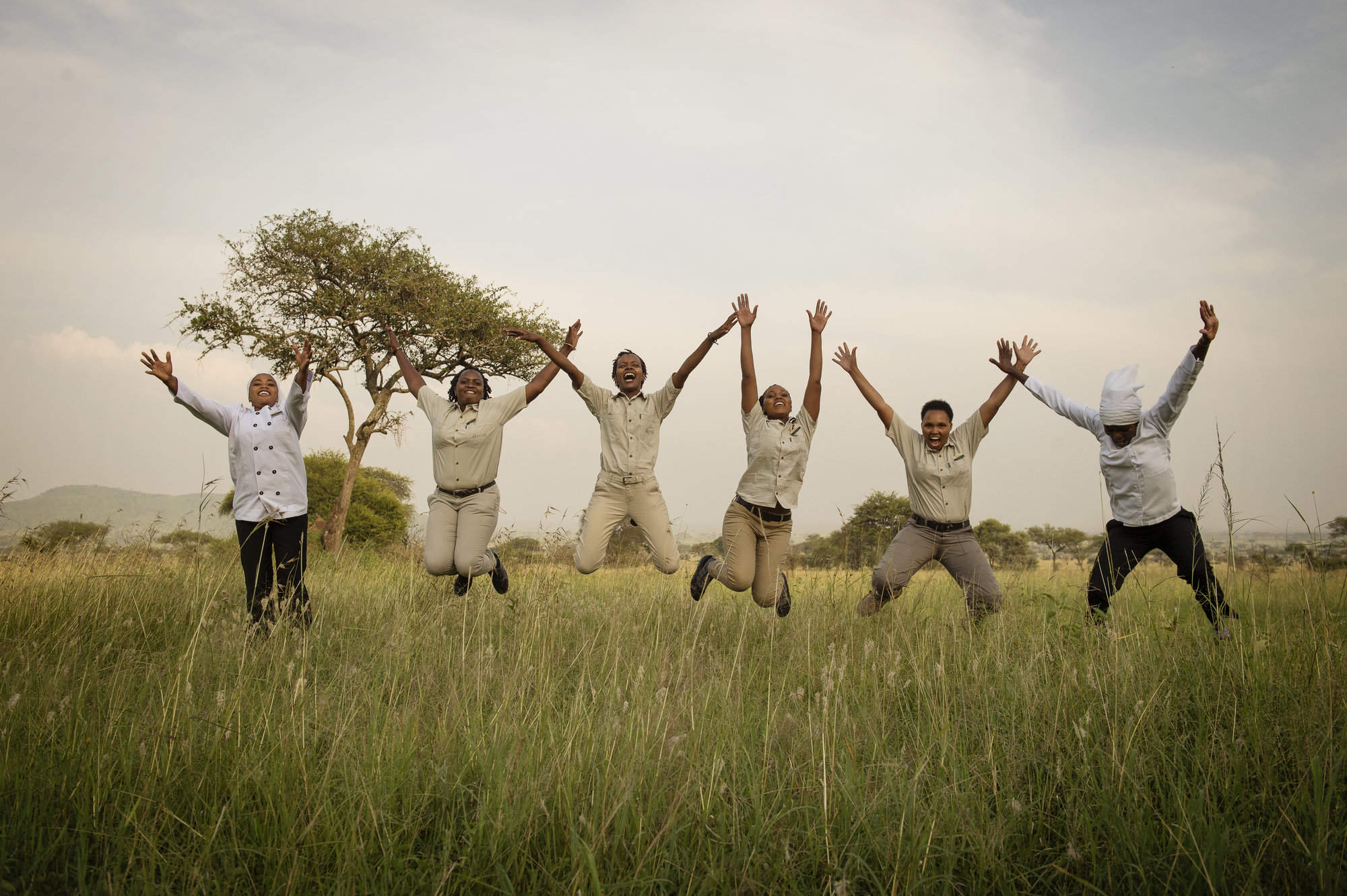
Dunia Camp
Dunia Camp is well located for the migration from December to March, and has excellent game viewing for the rest of the year.
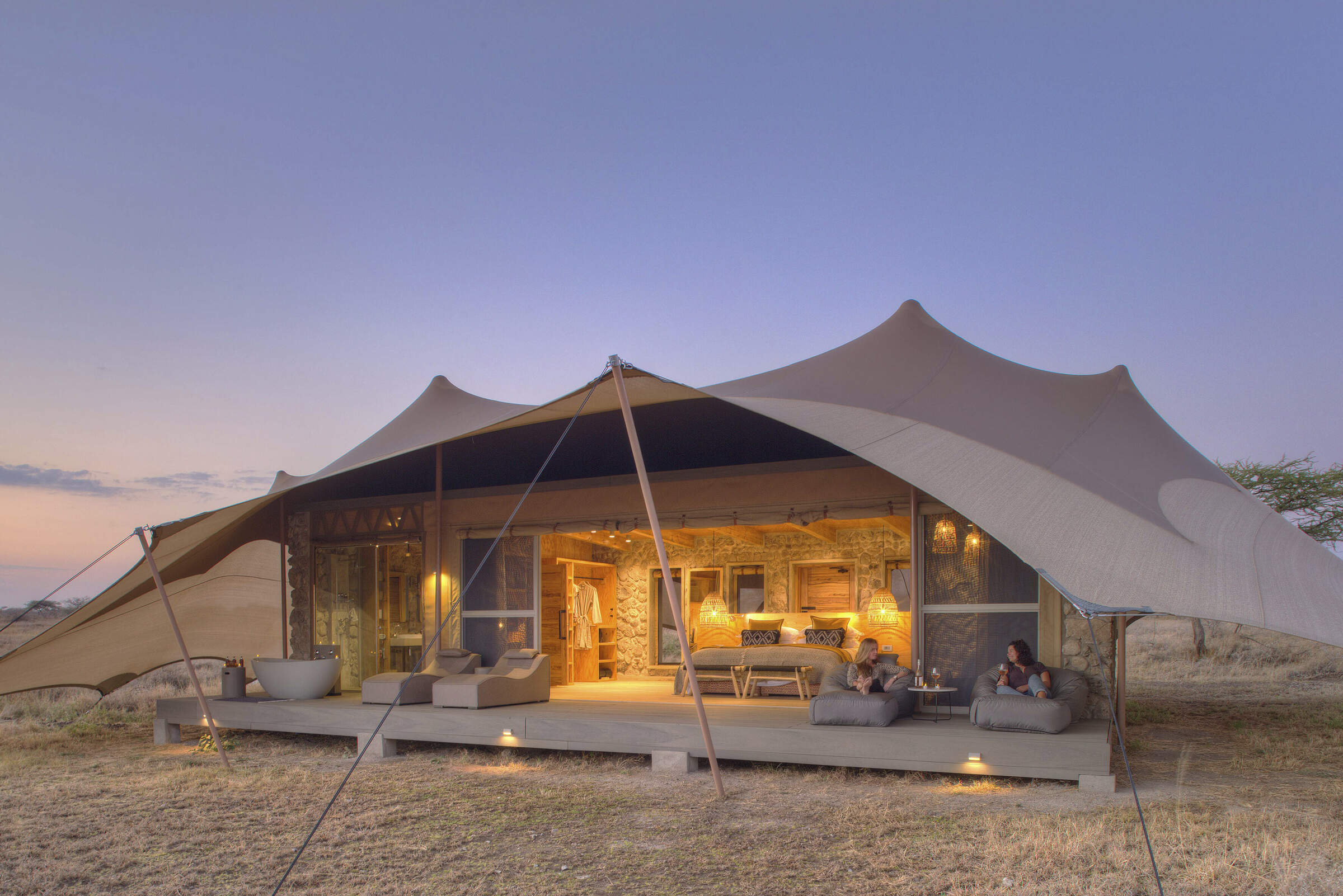
Namiri Plains Camp
Namiri Plains is one of the best camps in the Serengeti and its remoteness ensures a fantastic wildlife experience away from the crowds.
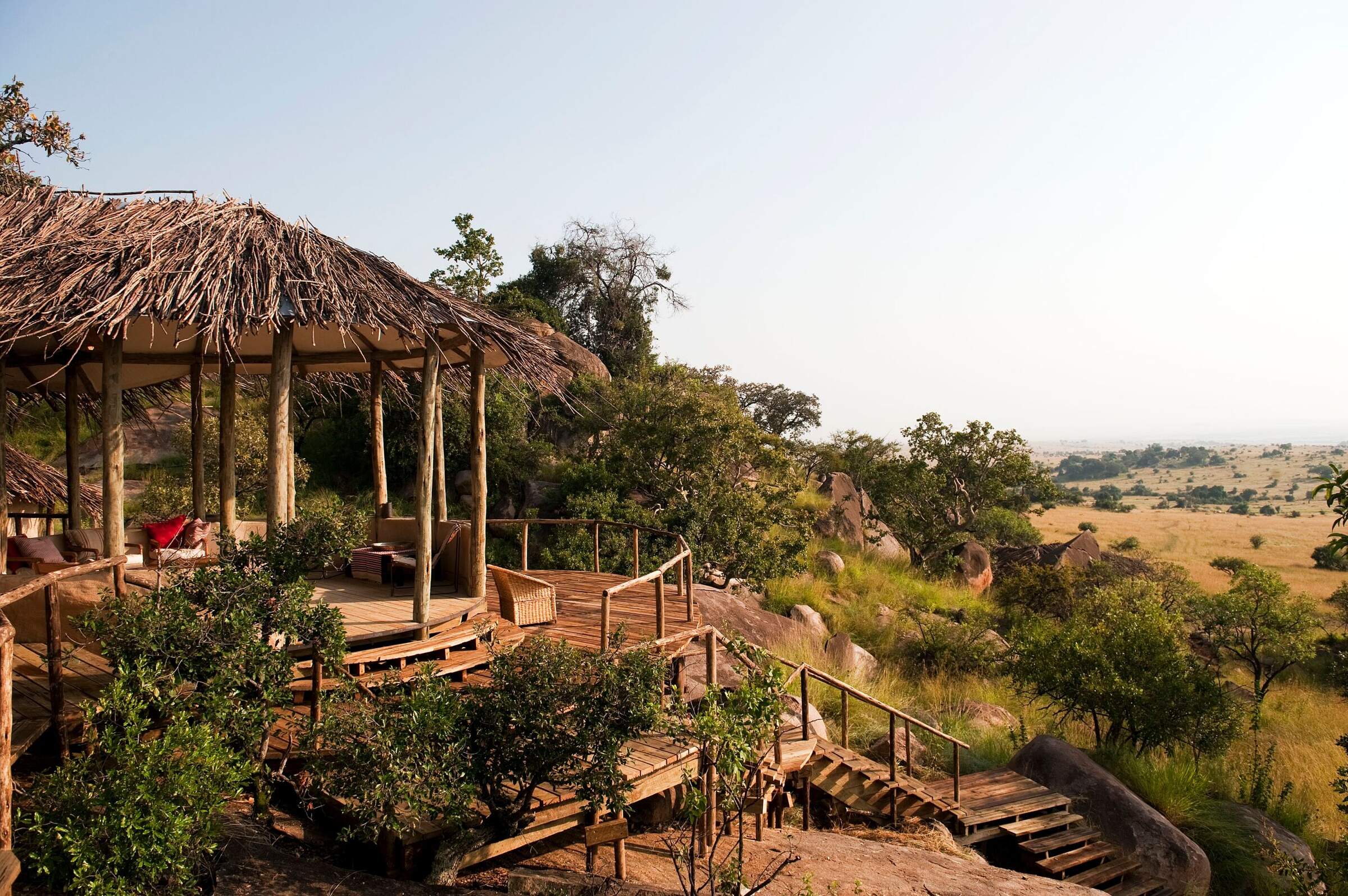
Lamai Serengeti
Set high in the kopjes with fantastic views, Lamai Serengeti offers top service and guiding and good migration sightings from Jul-Oct.
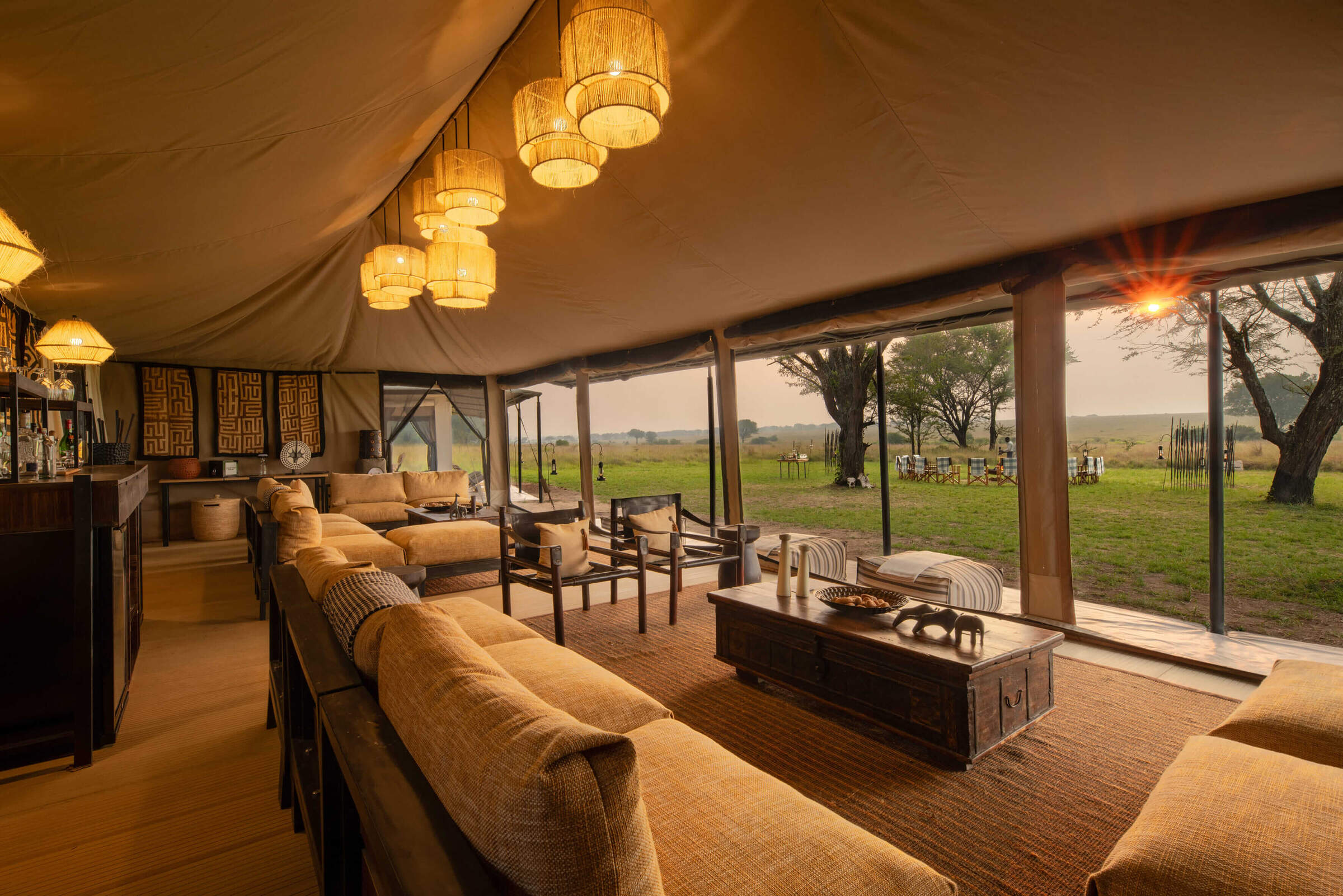
Ubuntu Camp
Ubuntu Camp has several locations in the Serengeti, following the wildebeest migration, so it is often in a great location to see the herds.
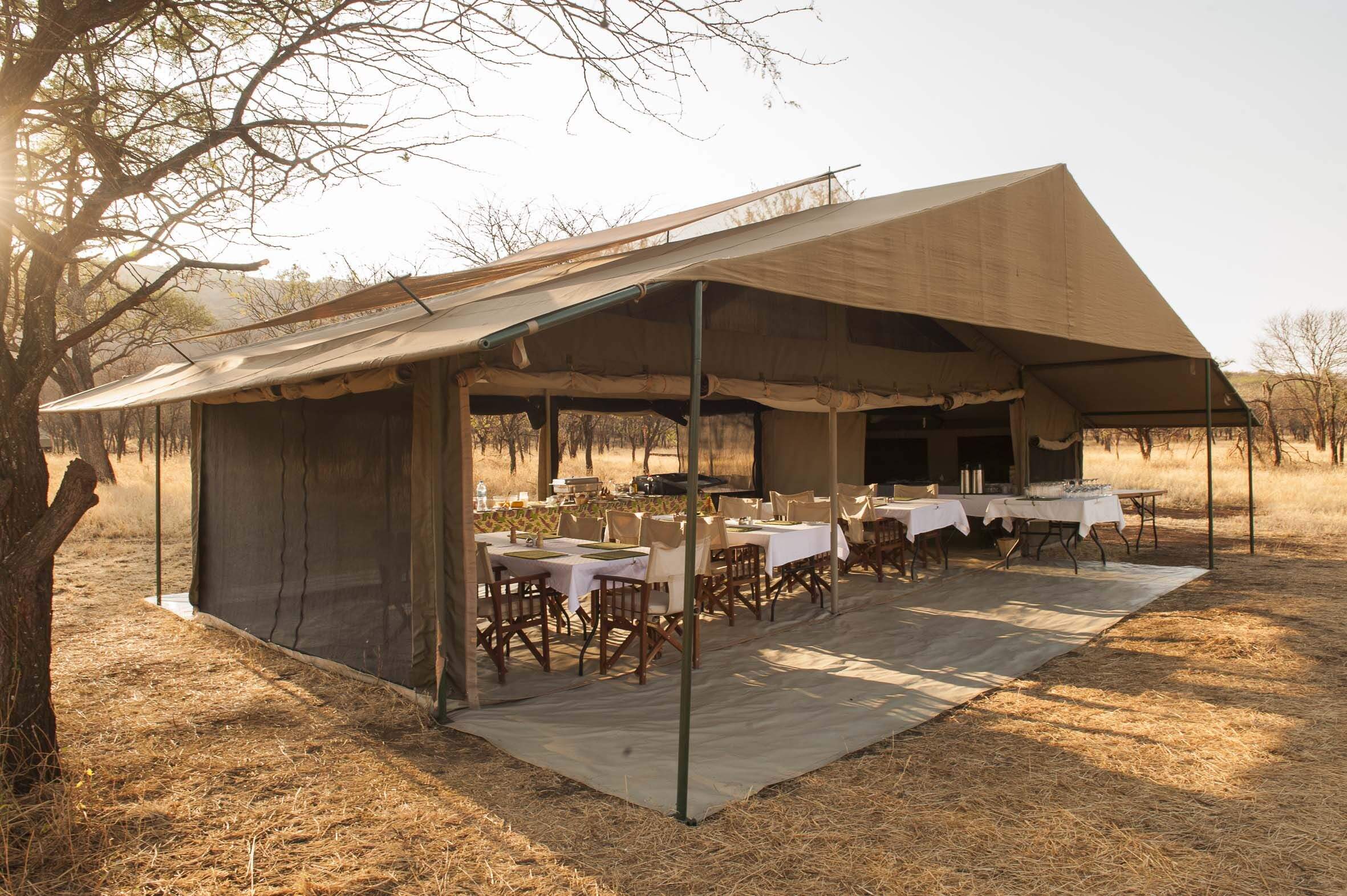
Kati Kati Camp
Kati Kati is a small, very simple bushcamp, which is well-positioned to explore the wildlife-rich Seronera area.
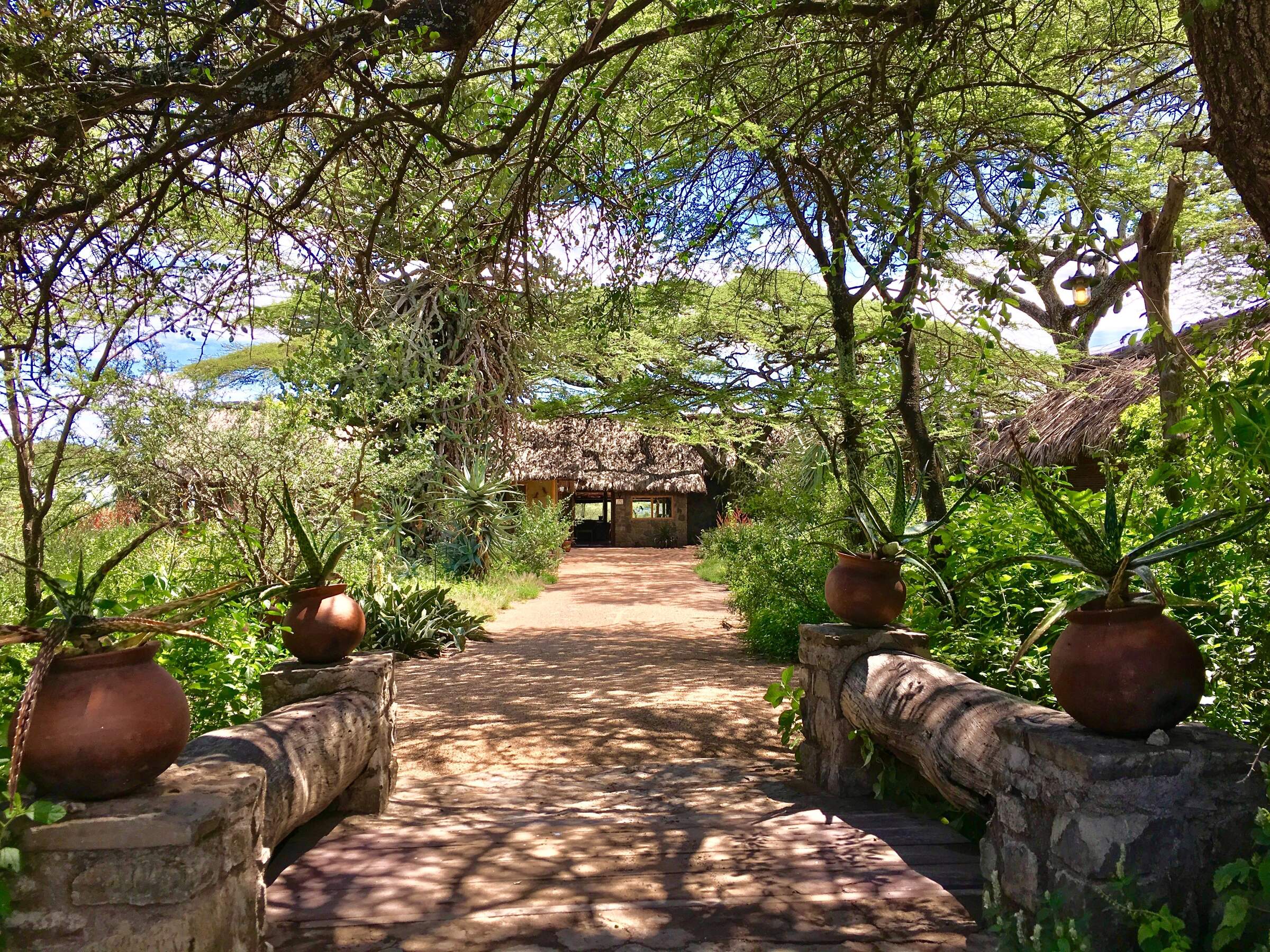
Ndutu Safari Lodge
Large and economical, but not luxurious, Ndutu Safari Lodge is well located in the southern Serengeti, so book early to get space.
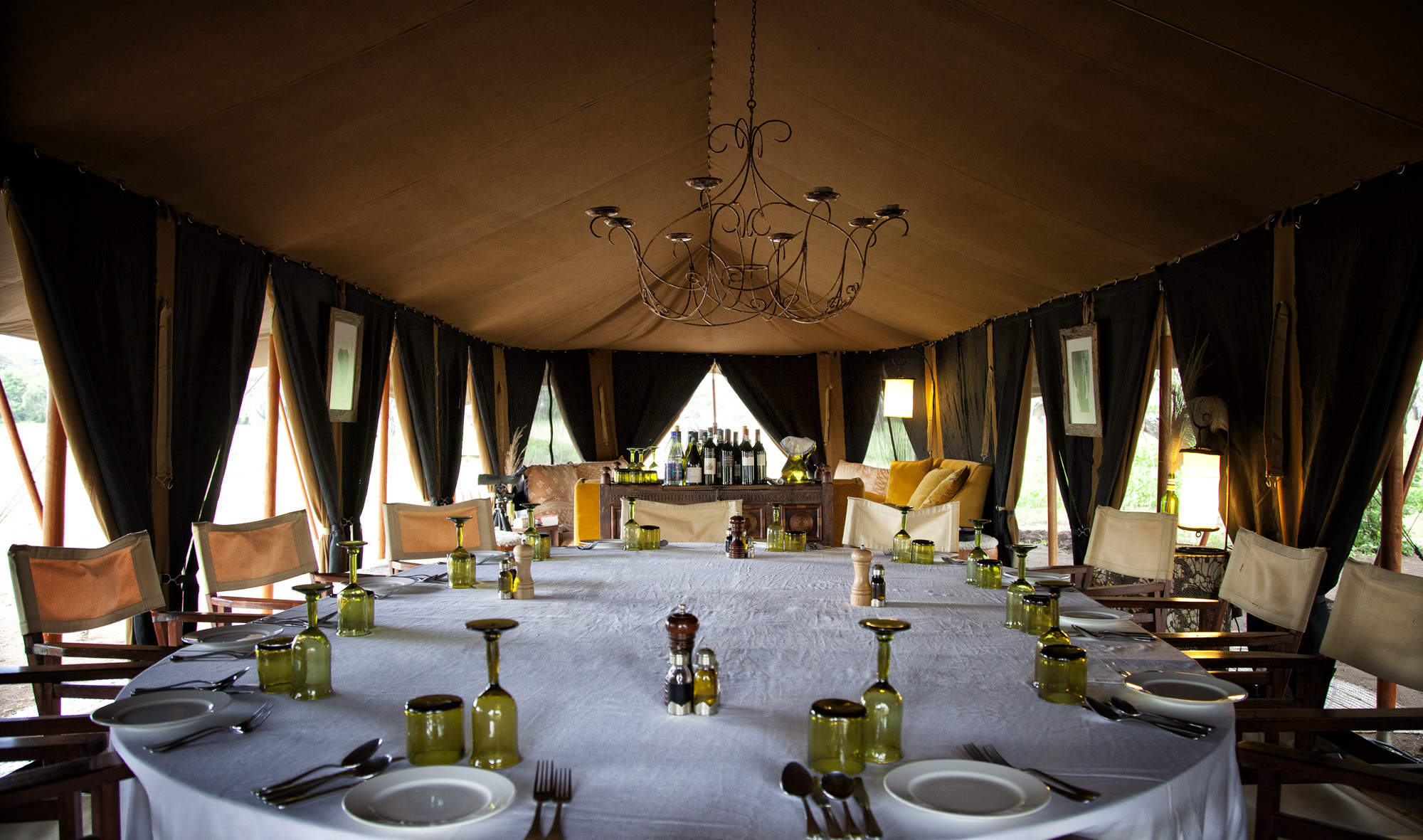
Serian Serengeti
Serian Serengeti is a mobile tented operation run by Alex Walker which moves between two locations following the wildebeest migration.
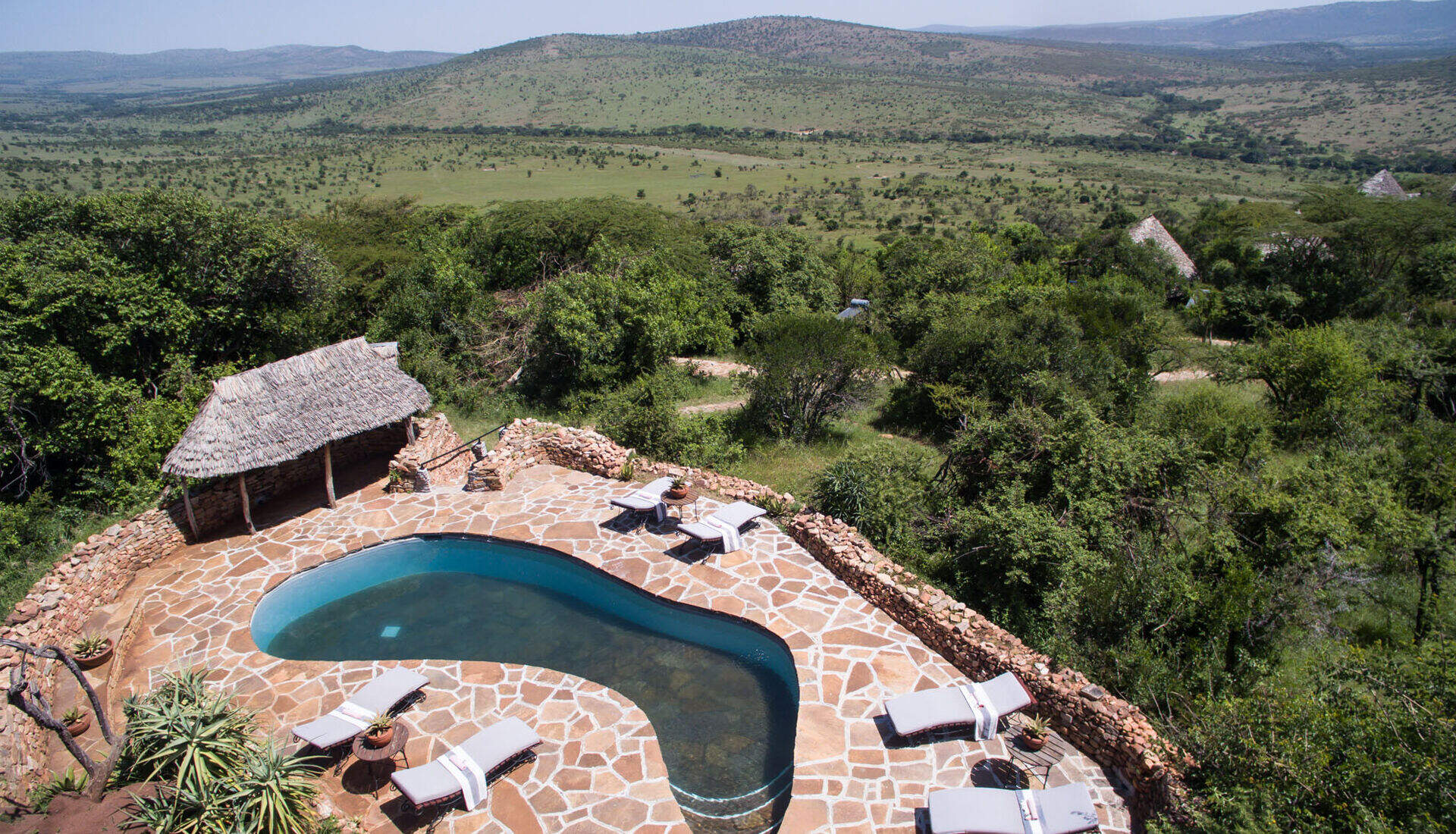
Klein's Camp
Klein's Camp, in a private area of the northern Serengeti, sets high standards. Activities include walks, nights drives and Maasai village visits.
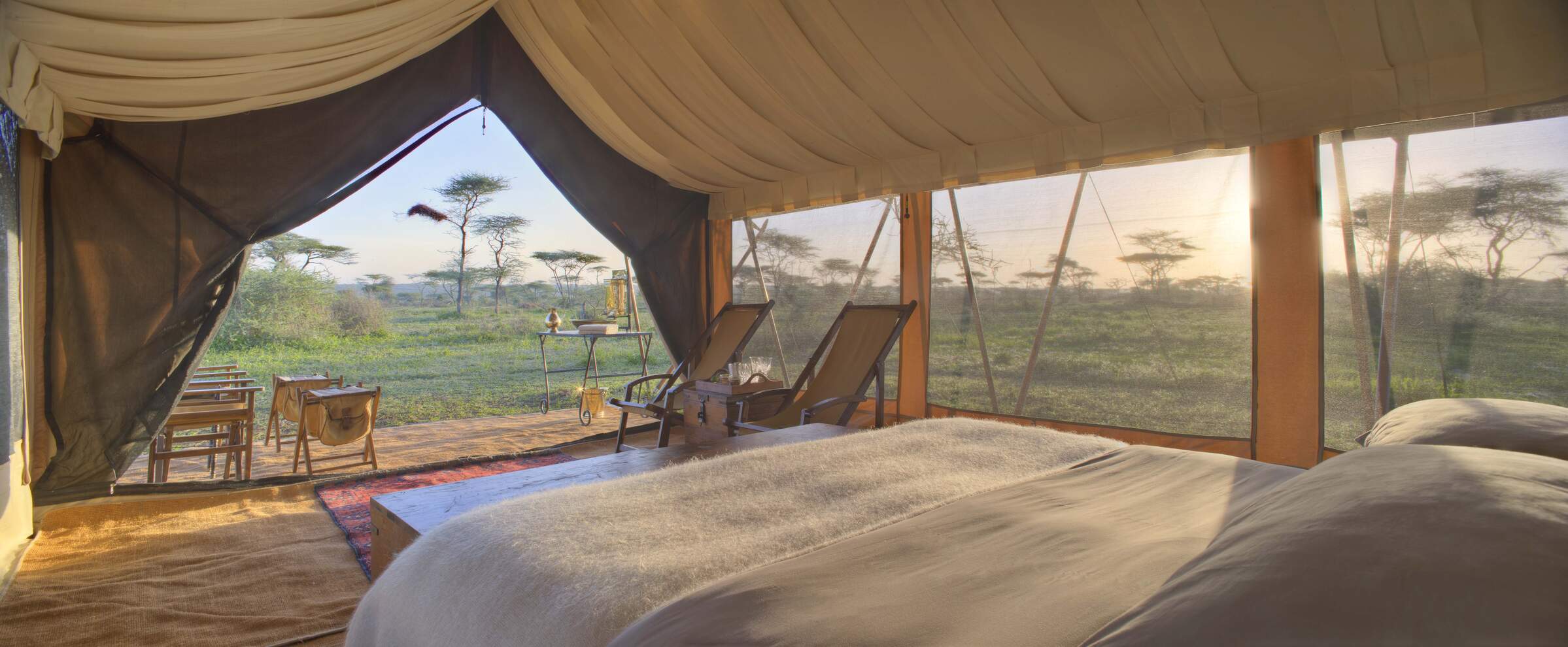
Serengeti under Canvas
Two of the three Serengeti under Canvas camps move through the Serengeti National Park every few months to follow the wildebeest migration.
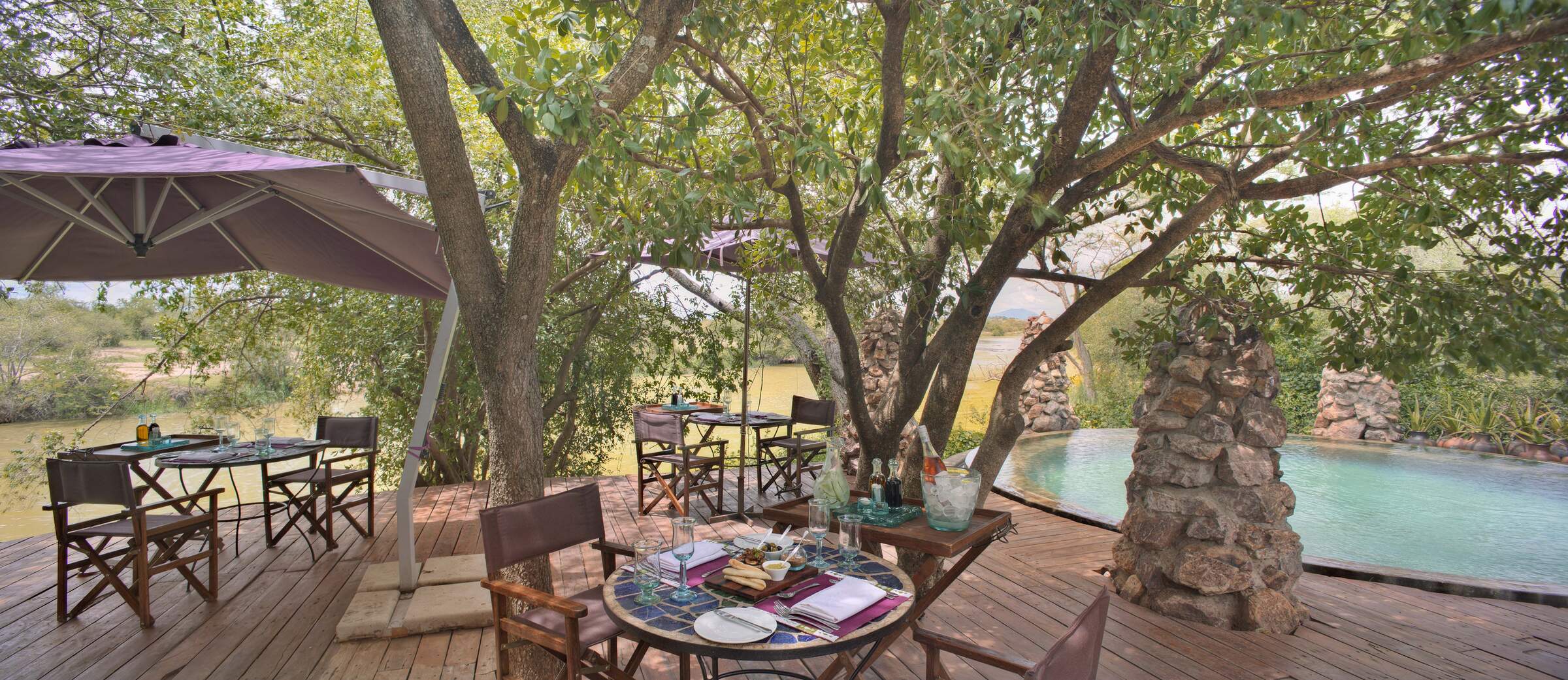
Grumeti River Camp
Grumeti River Camp offers a laid-back atmosphere combined with top service, first-rate food, expert guiding and an excellent location.
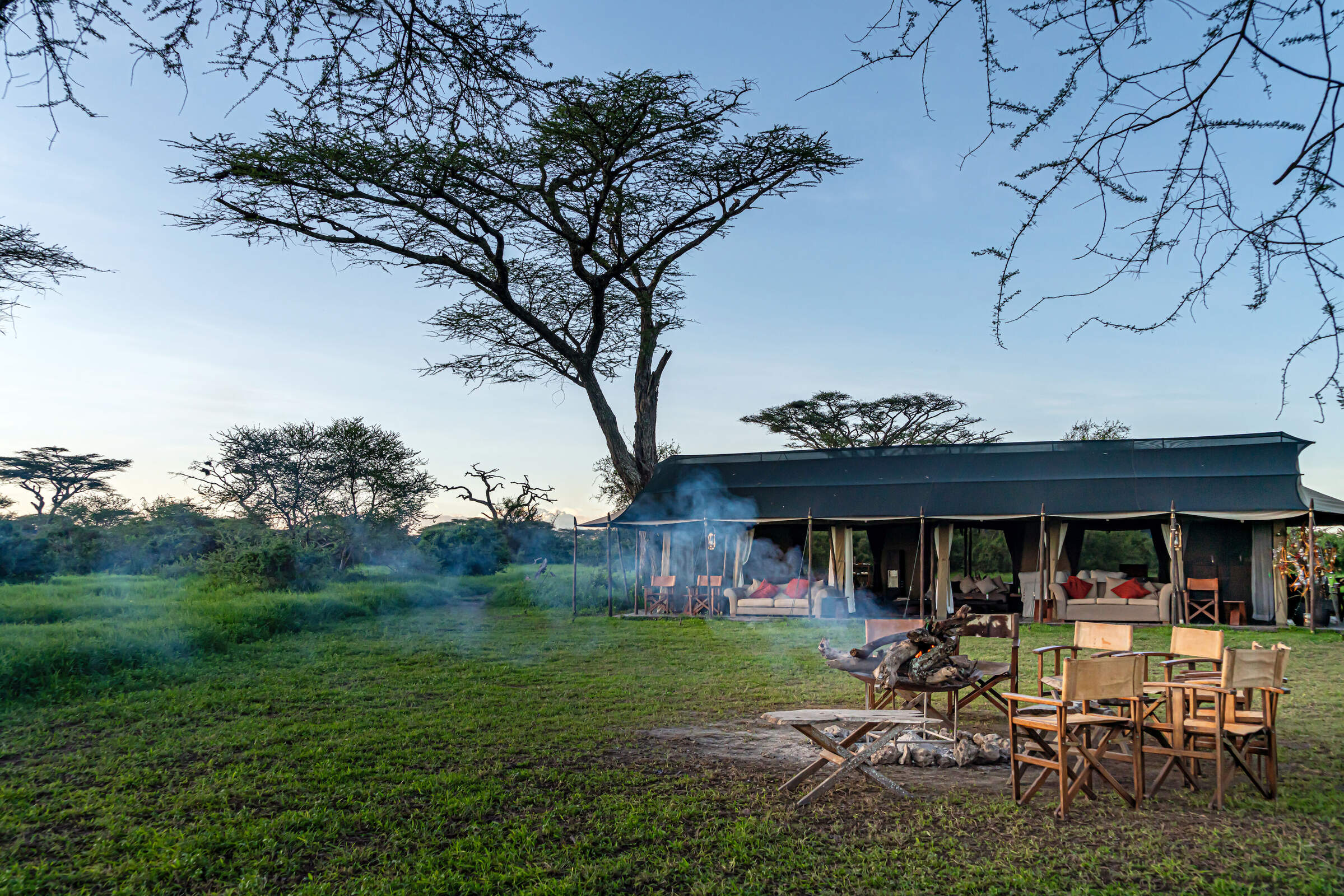
Lemala Mara-Ndutu
Lemala Mara-Ndutu is a semi-permanent camp that moves between the north and south of the Serengeti to witness the wildebeest migration.
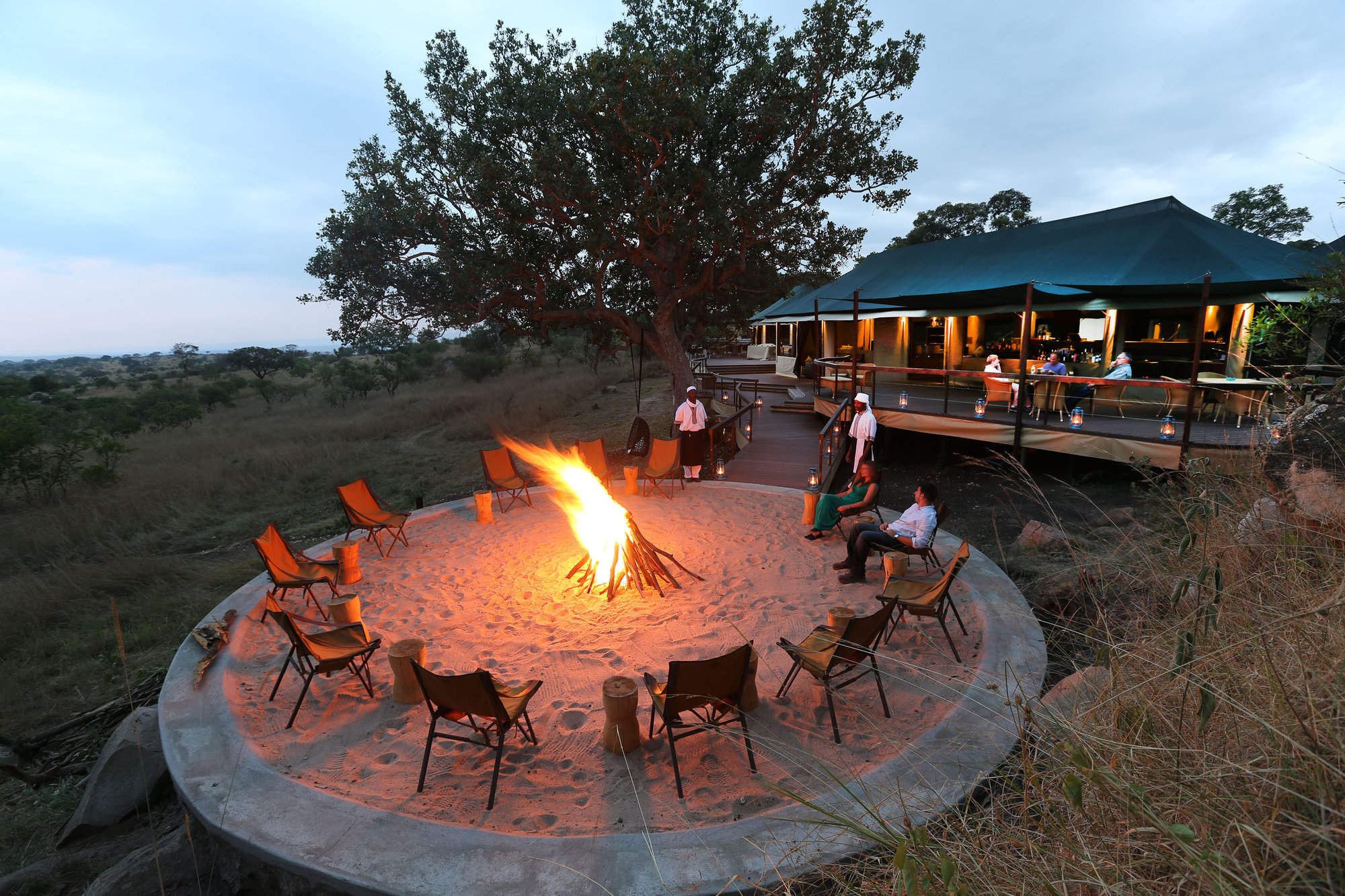
Lemala Kuria Hills
Lemala Kuria Hills is a luxury permanent camp that is ideally located for wildlife all year around, but especially during the wildebeest migration.
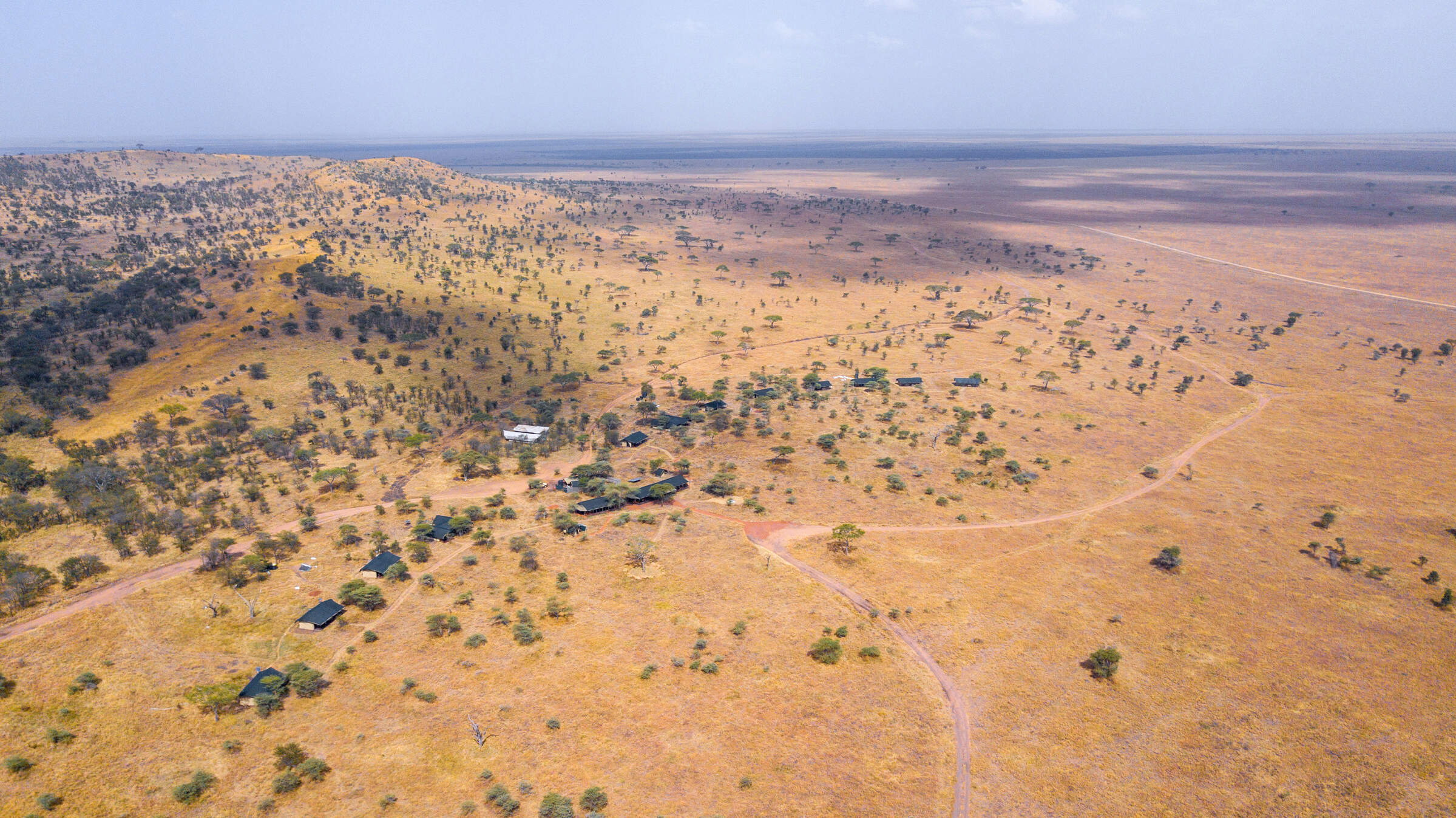
Lemala Ewanjan
Lemala Ewanjan is a comfortable and stylish tented camp in the Seronera area of the central Serengeti National Park.
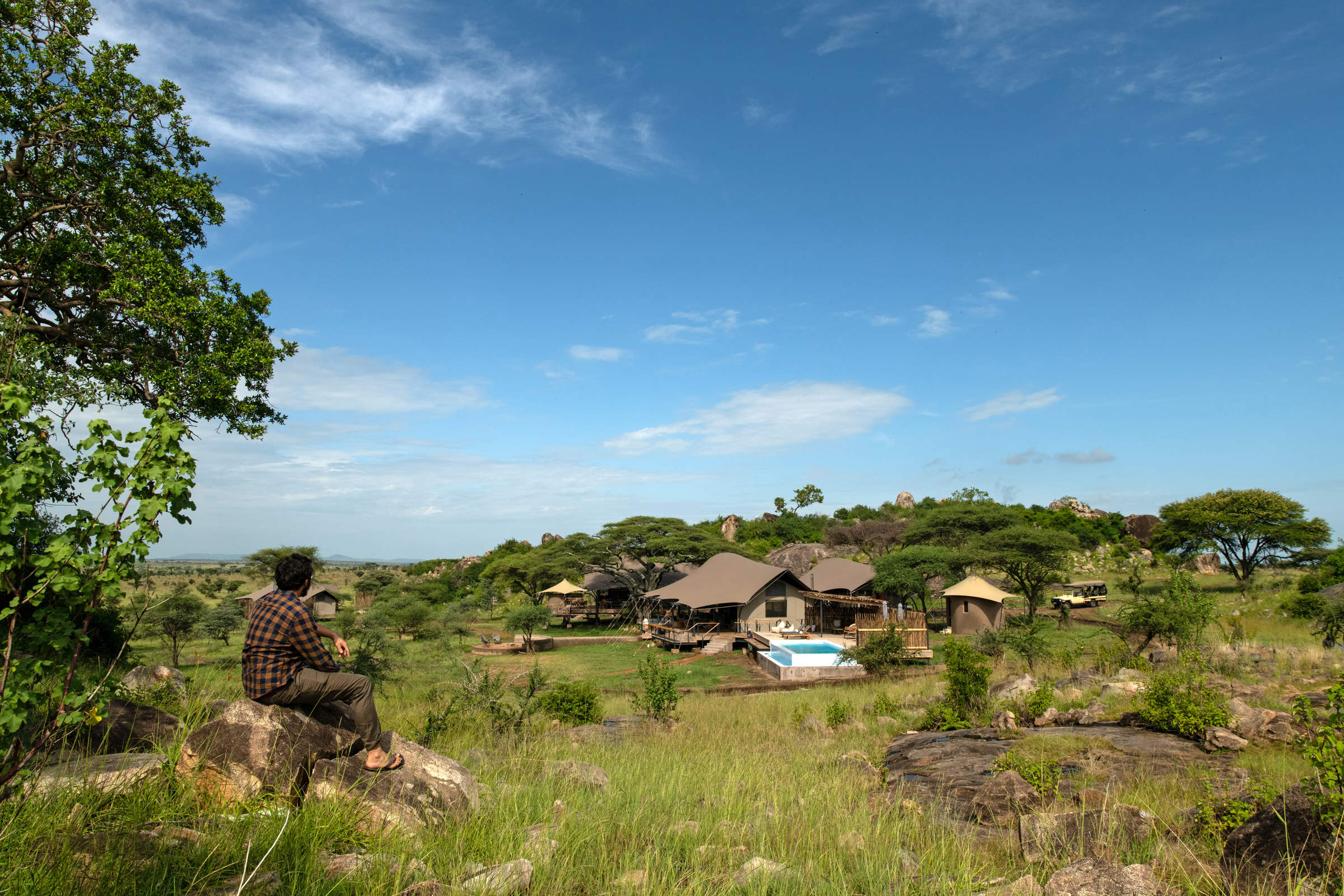
Lemala Nanyukie
Lemala Nanyukie is a stylish camp located in the quieter part of the central Serengeti.
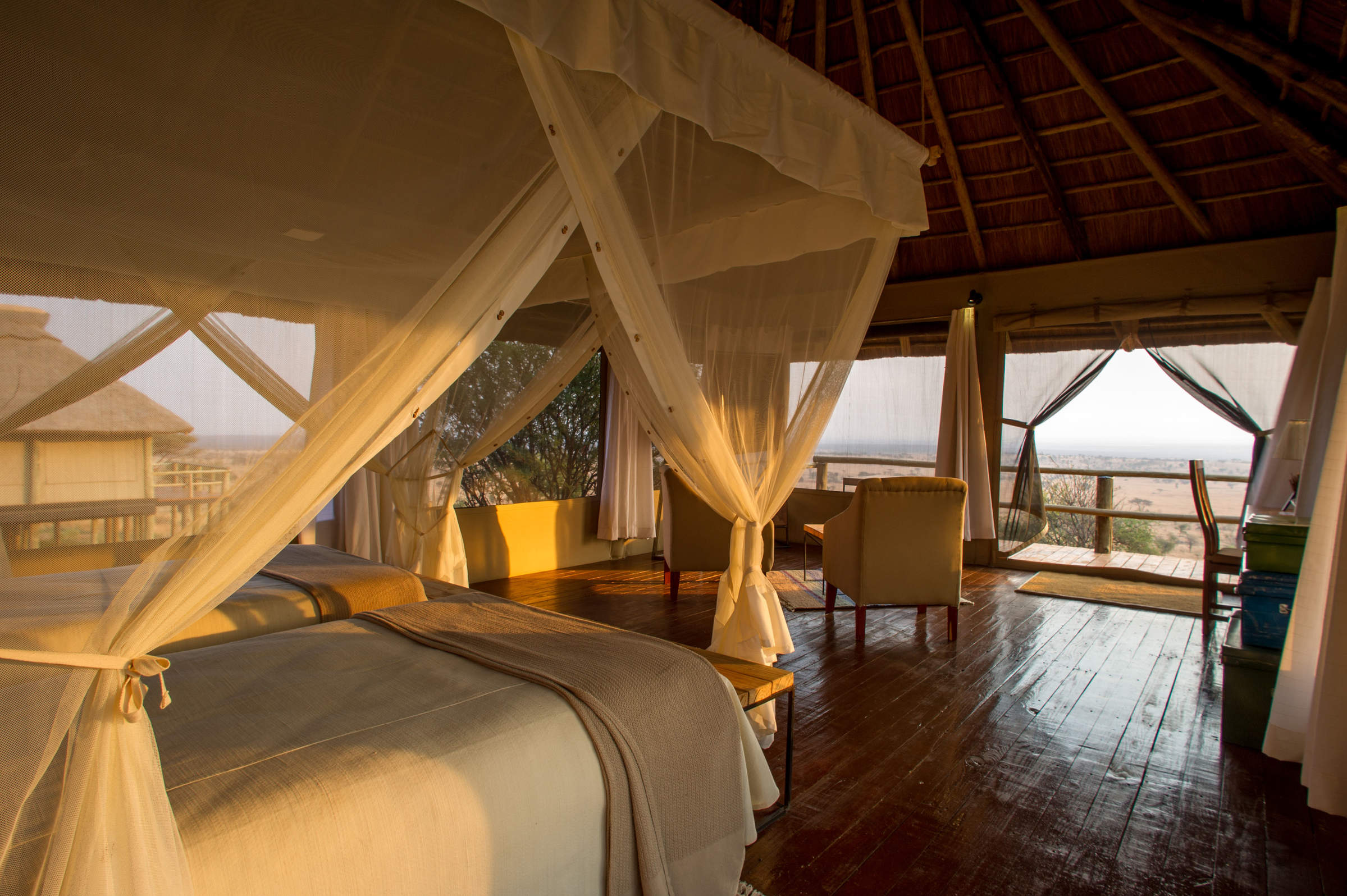
Kubu Kubu
Kubu Kubu is a contemporary, tented lodge, well located in the central Seronera area of the Serengeti National Park.
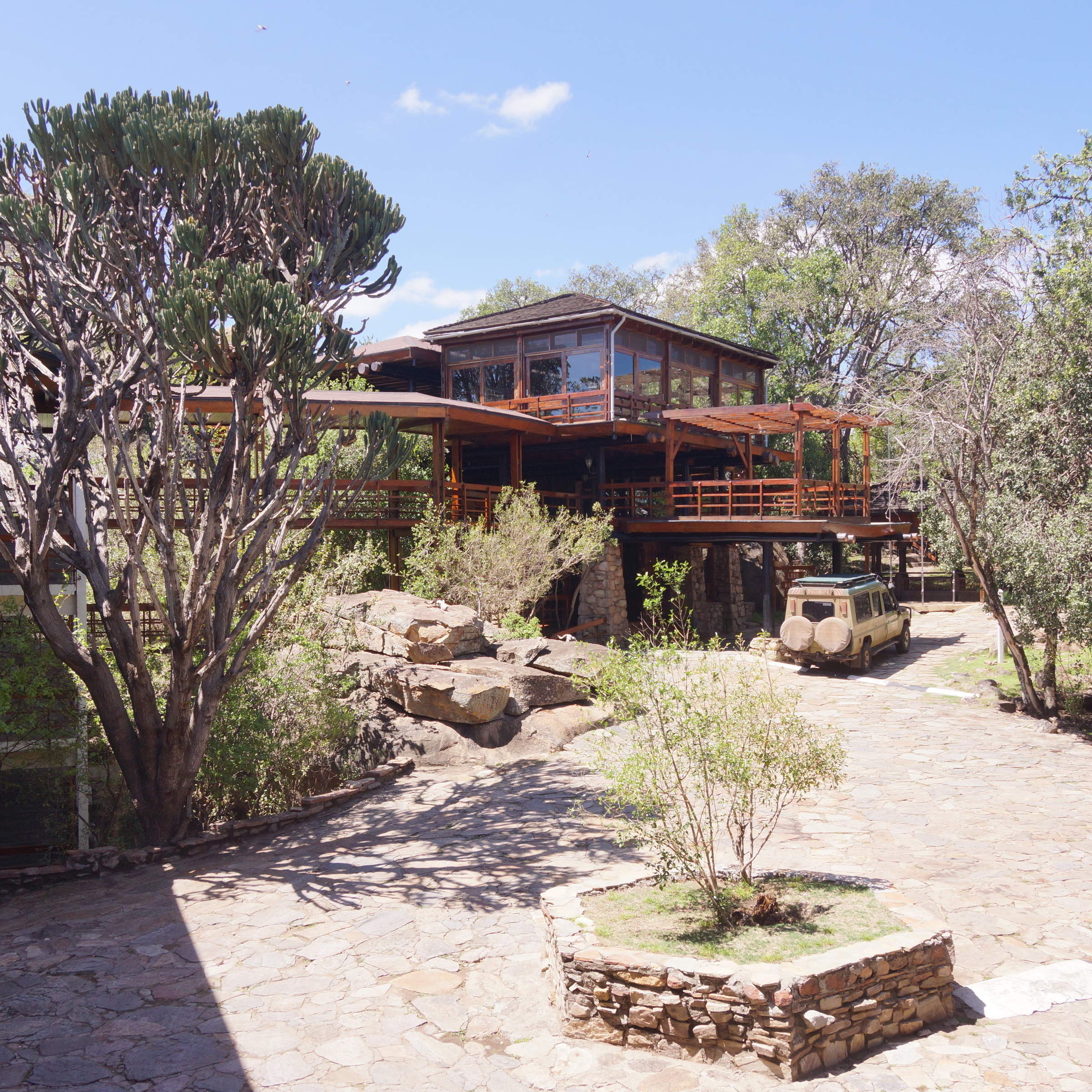
Lobo Wildlife Lodge
The large Lobo Wildlife Lodge has simple, functional rooms in a stunning location. It's a good base for exploring the north-eastern Serengeti.
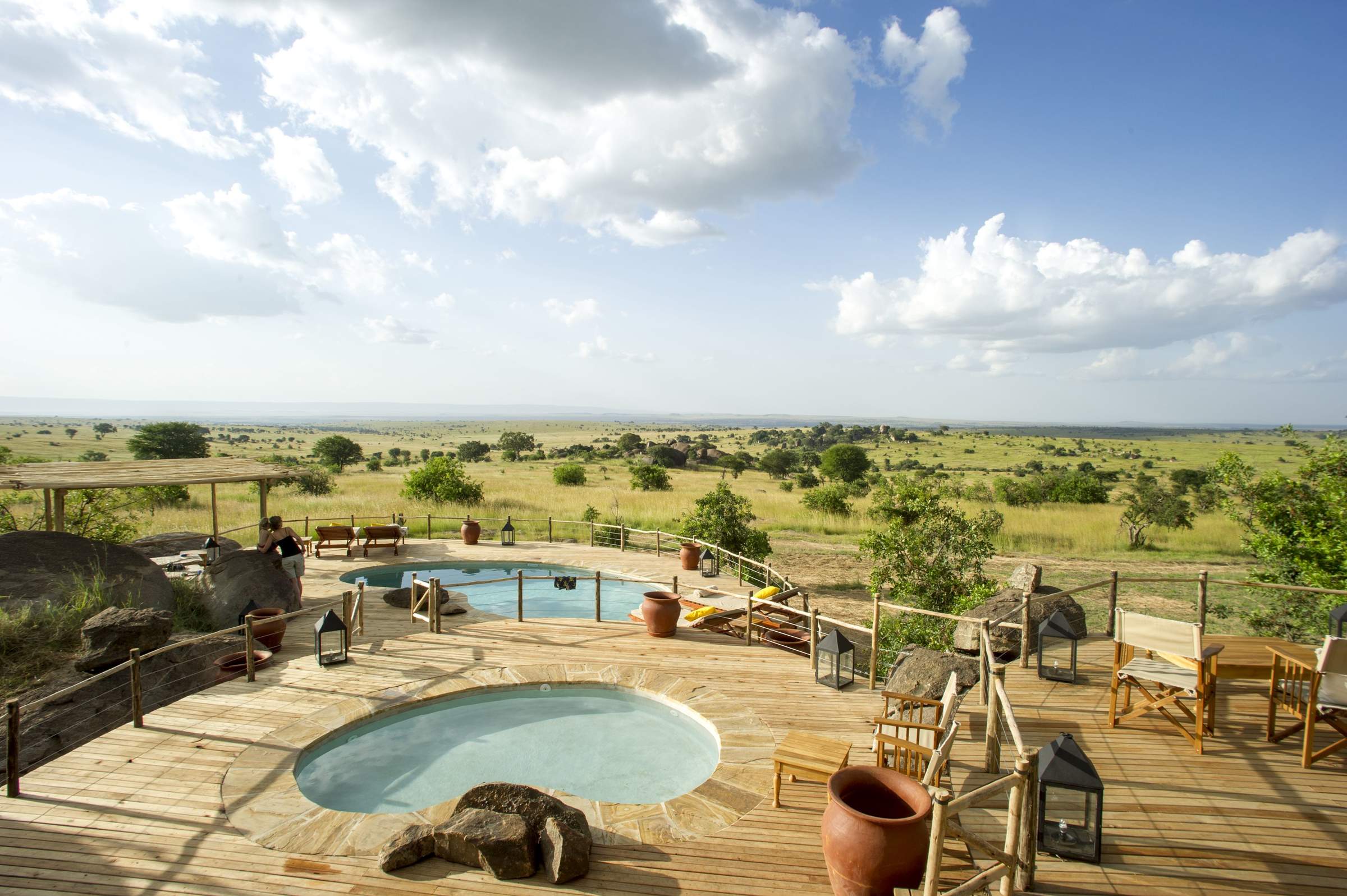
Mkombe's House Lamai
Mkombe's House Lamai is a fully staffed private house in the Wogakuria Kopjes district of Serengeti National Park.
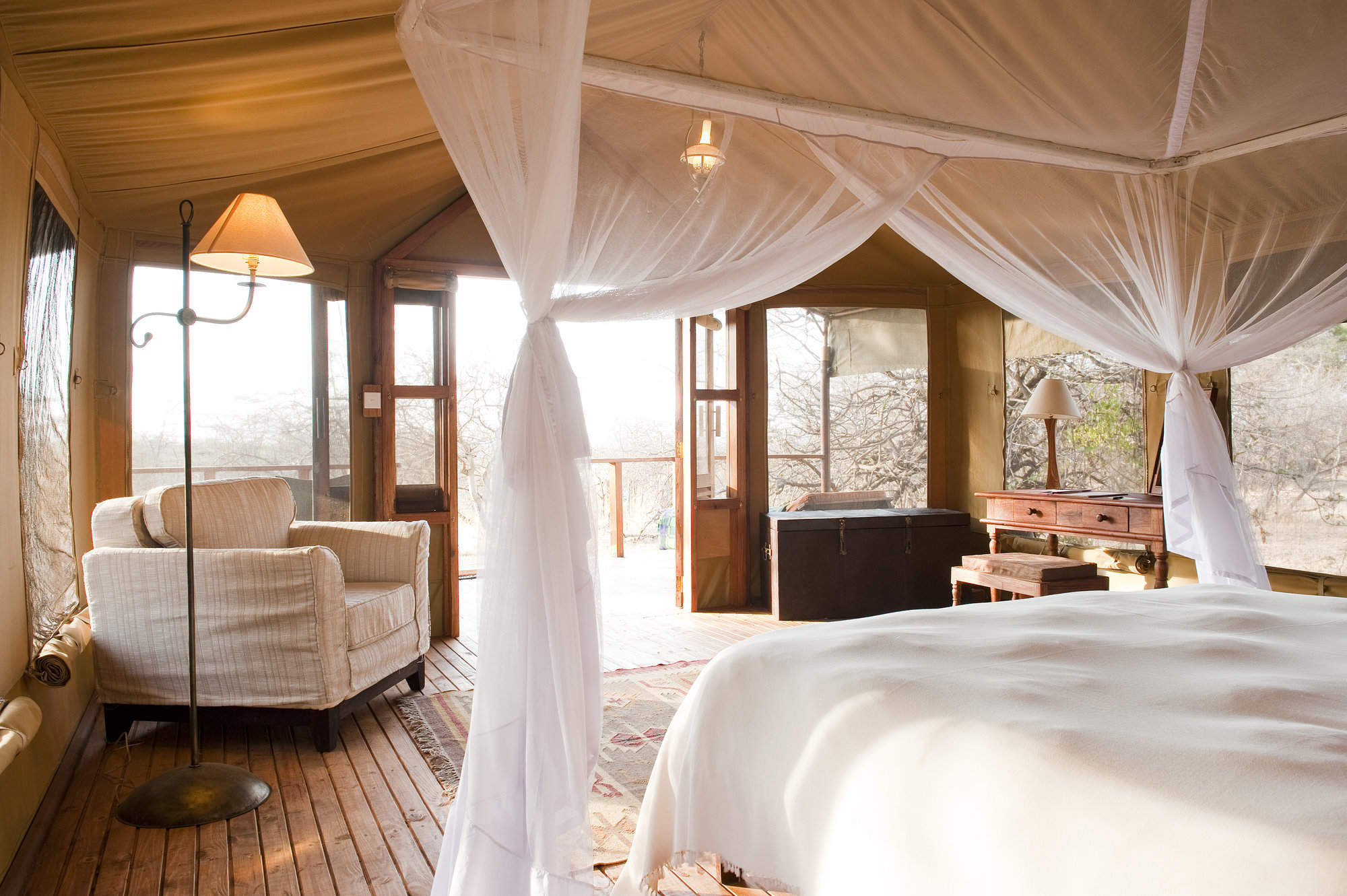
Kusini Camp
Kusini Camp is permanent, luxury camp located on a beautiful kopje in a quiet, wildlife-rich corner of the south-west Serengeti.
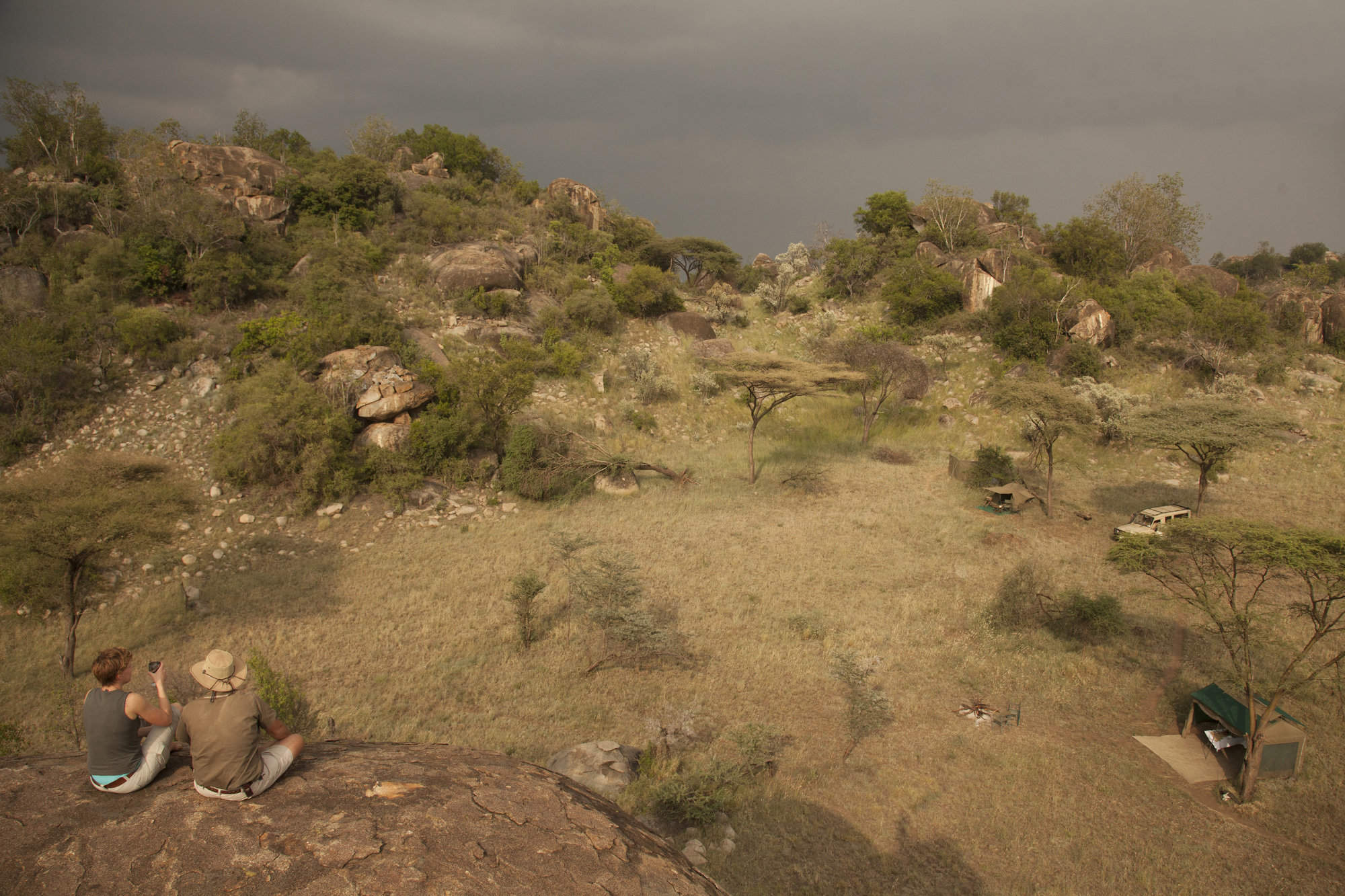
Serengeti Walking Mobile
This fairly simple camp offers only walking activities, but it's very well done and combines well with more conventional camps or lodges.
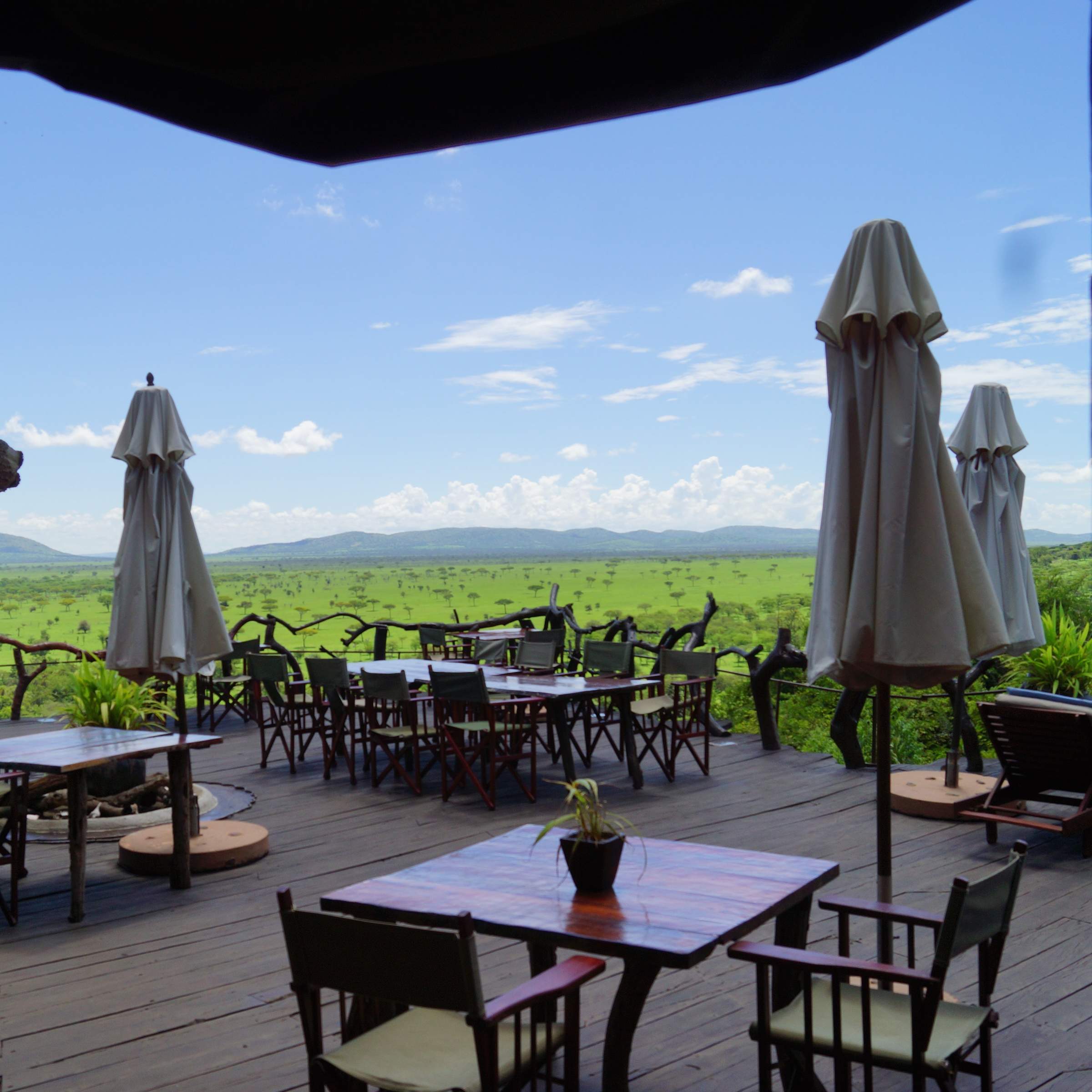
Mbalageti Lodge
Mbalageti is a well-run lodge in a quiet part of the Serengeti's western corridor – an ideal location during the Apr-Jun migration.
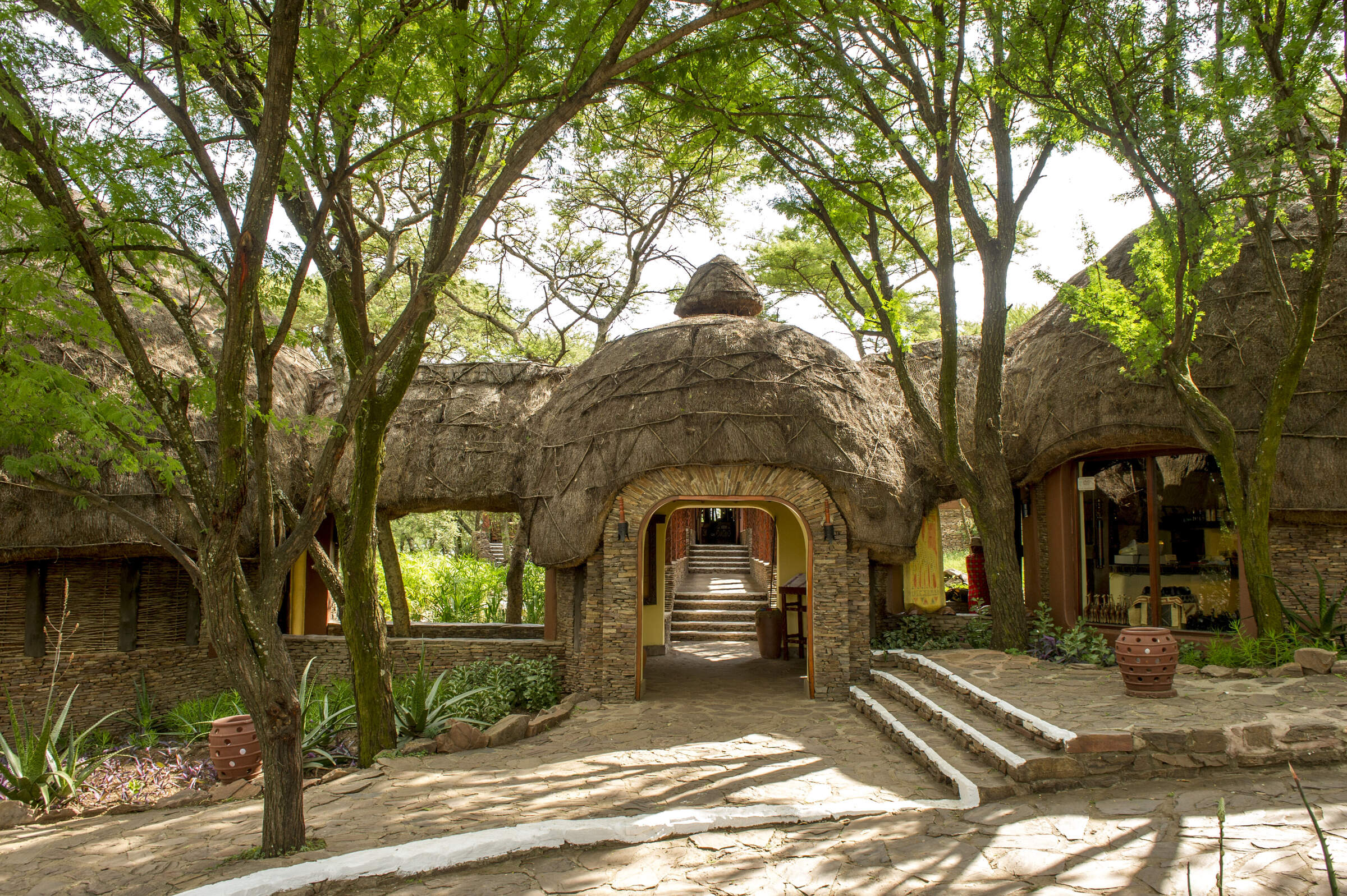
Serengeti Serena
The Serengeti Serena Safari Lodge is a large, hotel-style lodge and a good family-friendly base from which to explore the central Serengeti.
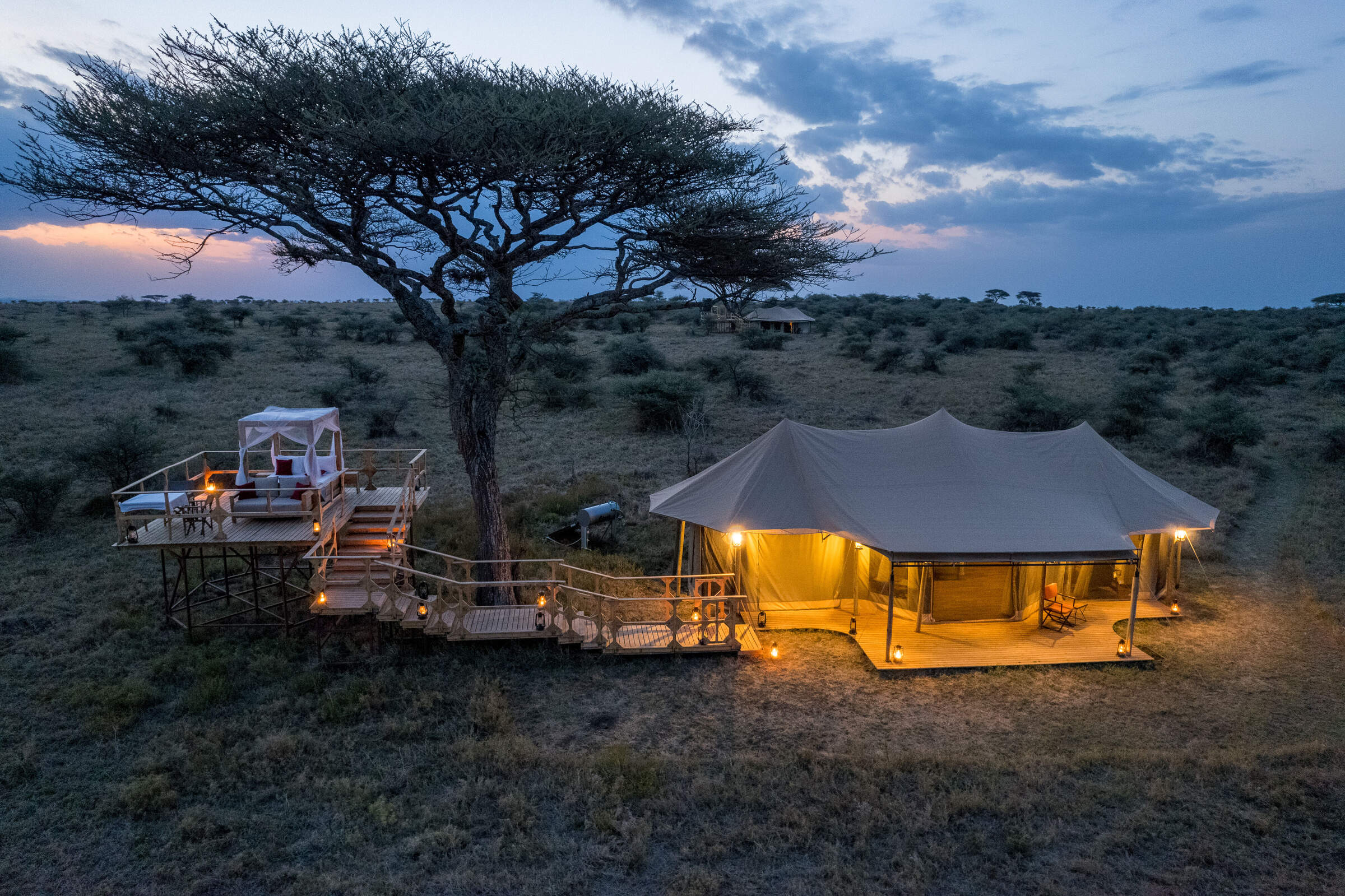
Olmara Camp
With just eight guest tents, including two family tents and three signature stargazer tents, Olmara is a simple, family-friendly camp with a wonderfully attentive team. The camp captures an authentic bush experience, welcoming travellers of every kind.
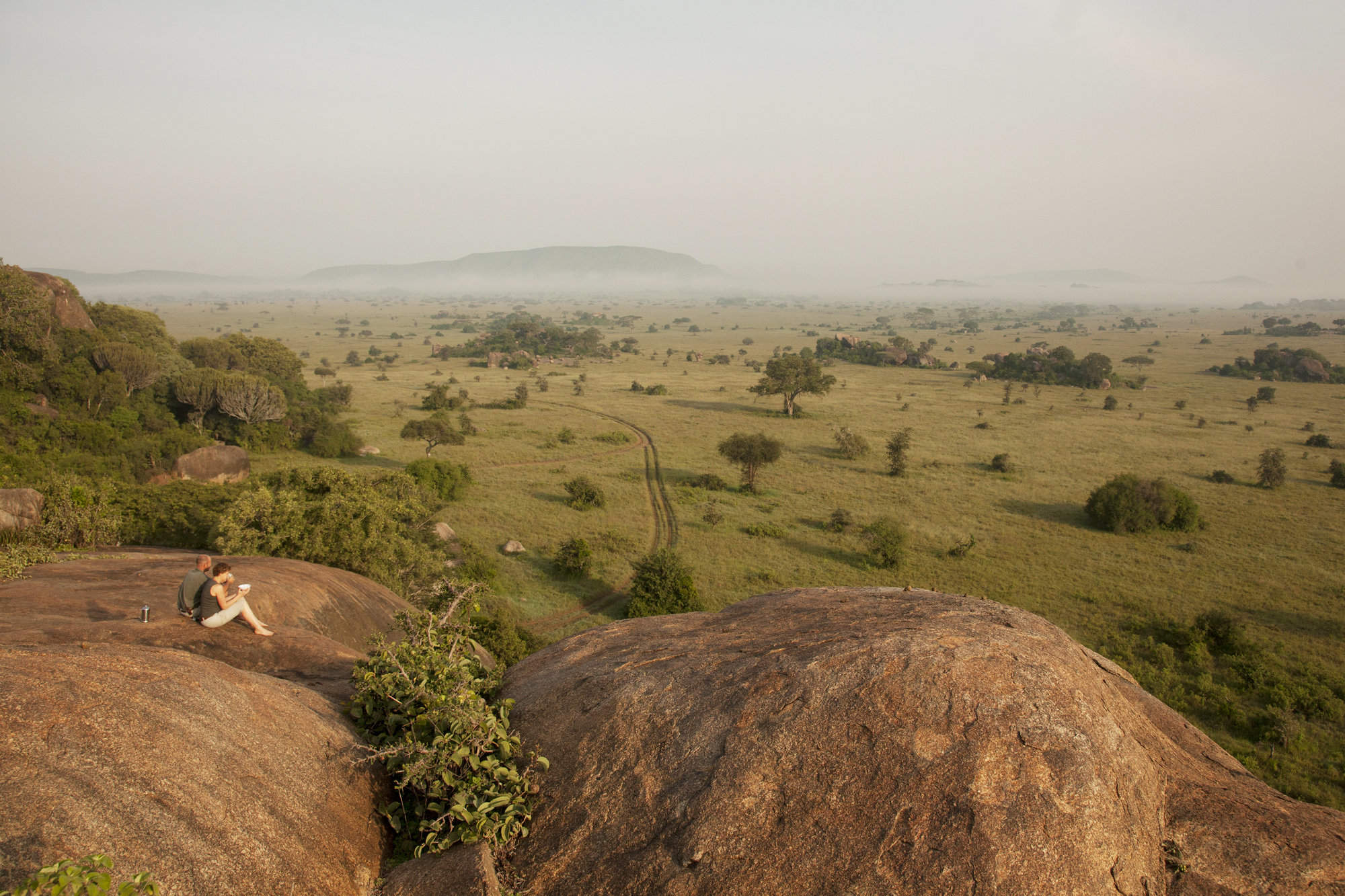
Serengeti Green Camp
Serengeti Green Camp is a comfortable camping experience, in your own private safari camp and at the heart of a great wildlife area.
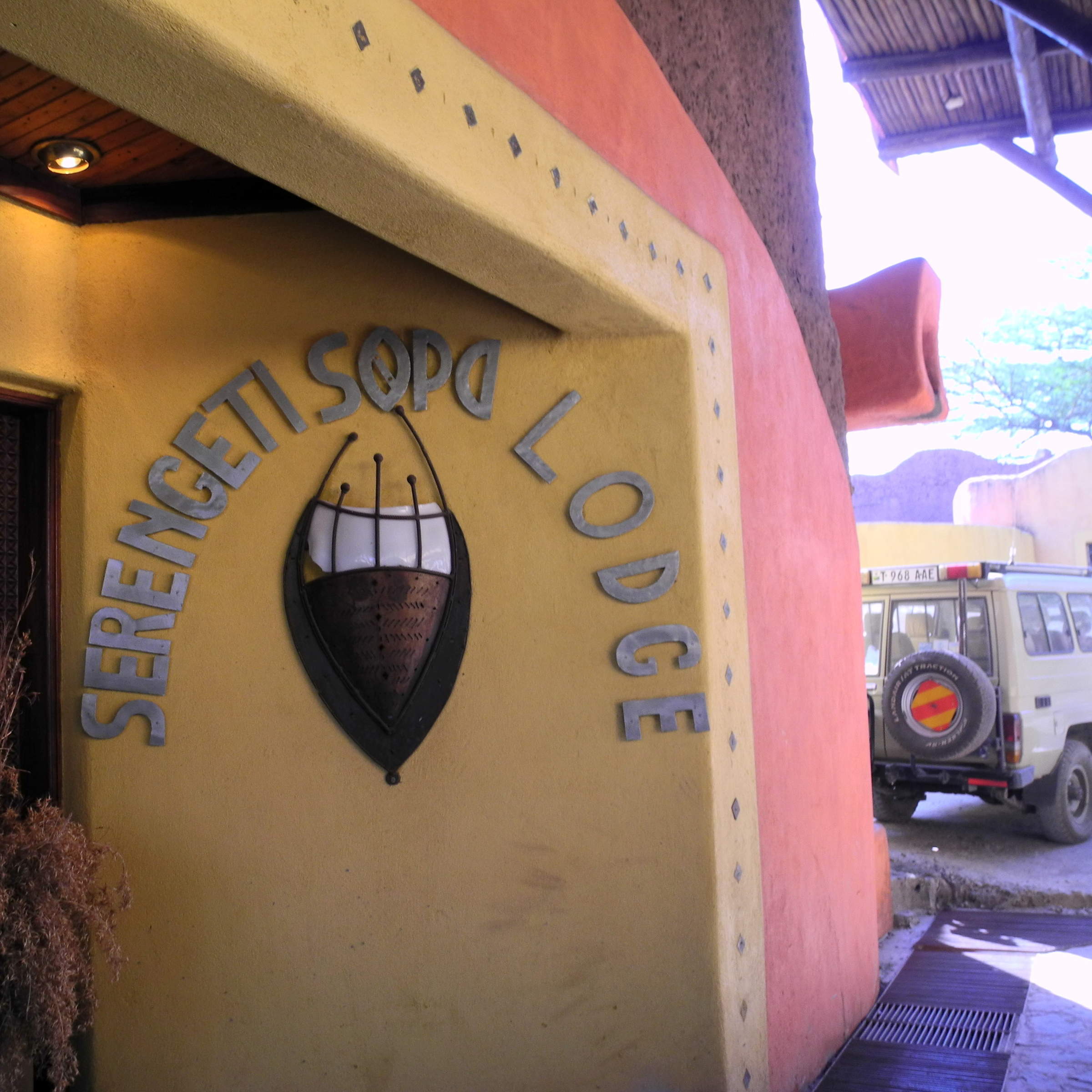
Serengeti Sopa Lodge
Serengeti Sopa Lodge is an international-style hotel offering good-value accommodation in the central Serengeti, with lovely views of the plains.
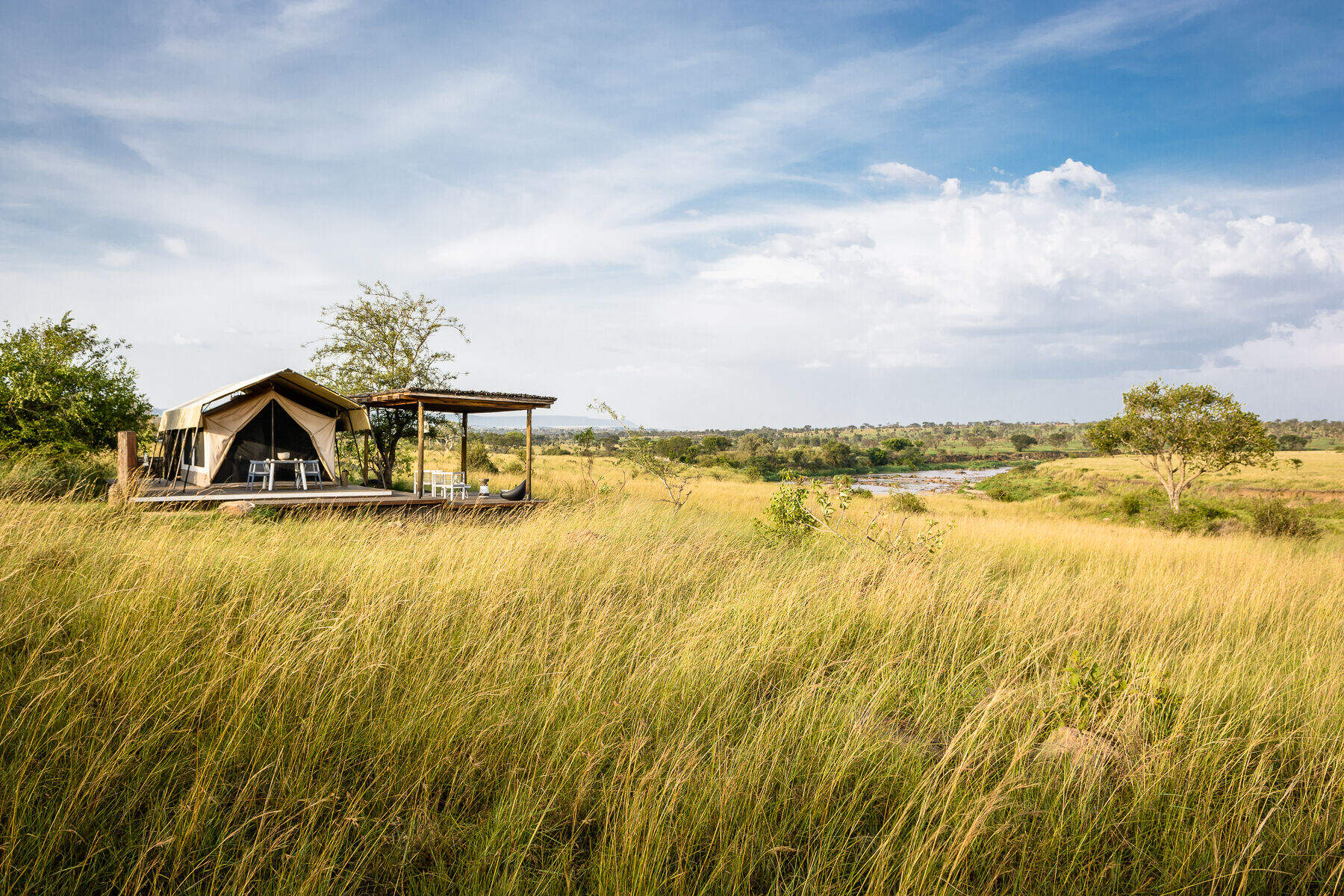
Singita Mara River
Singita Mara River Tented Camp is a luxurious camp in the isolated and rewarding Lamai wedge region of the northern Serengeti.
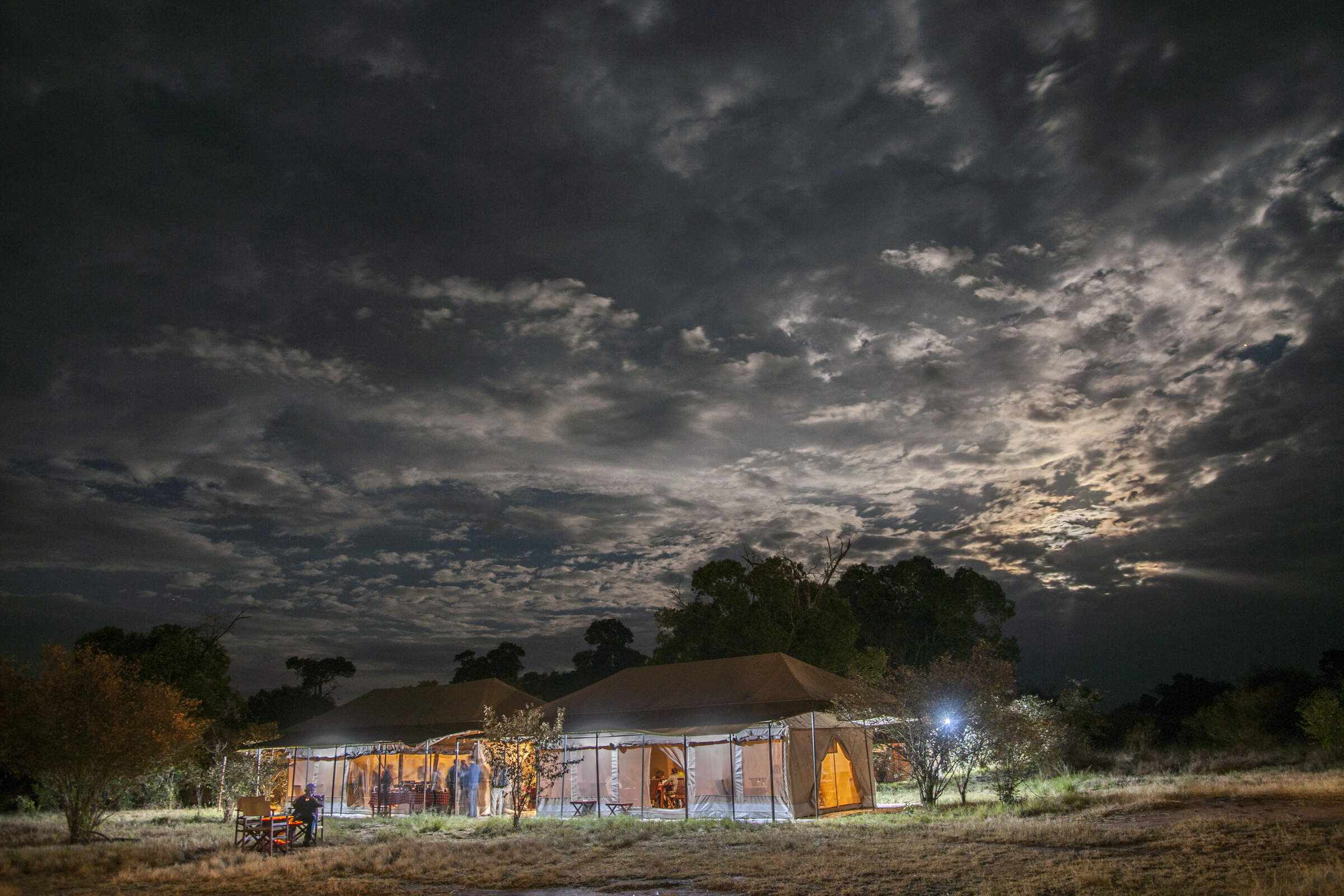
Migration Camp
Serengeti Migration Camp is a smart tented camp, good for the wildebeest migration from Jul–Aug, or to explore the Lobo Kopjes any time.
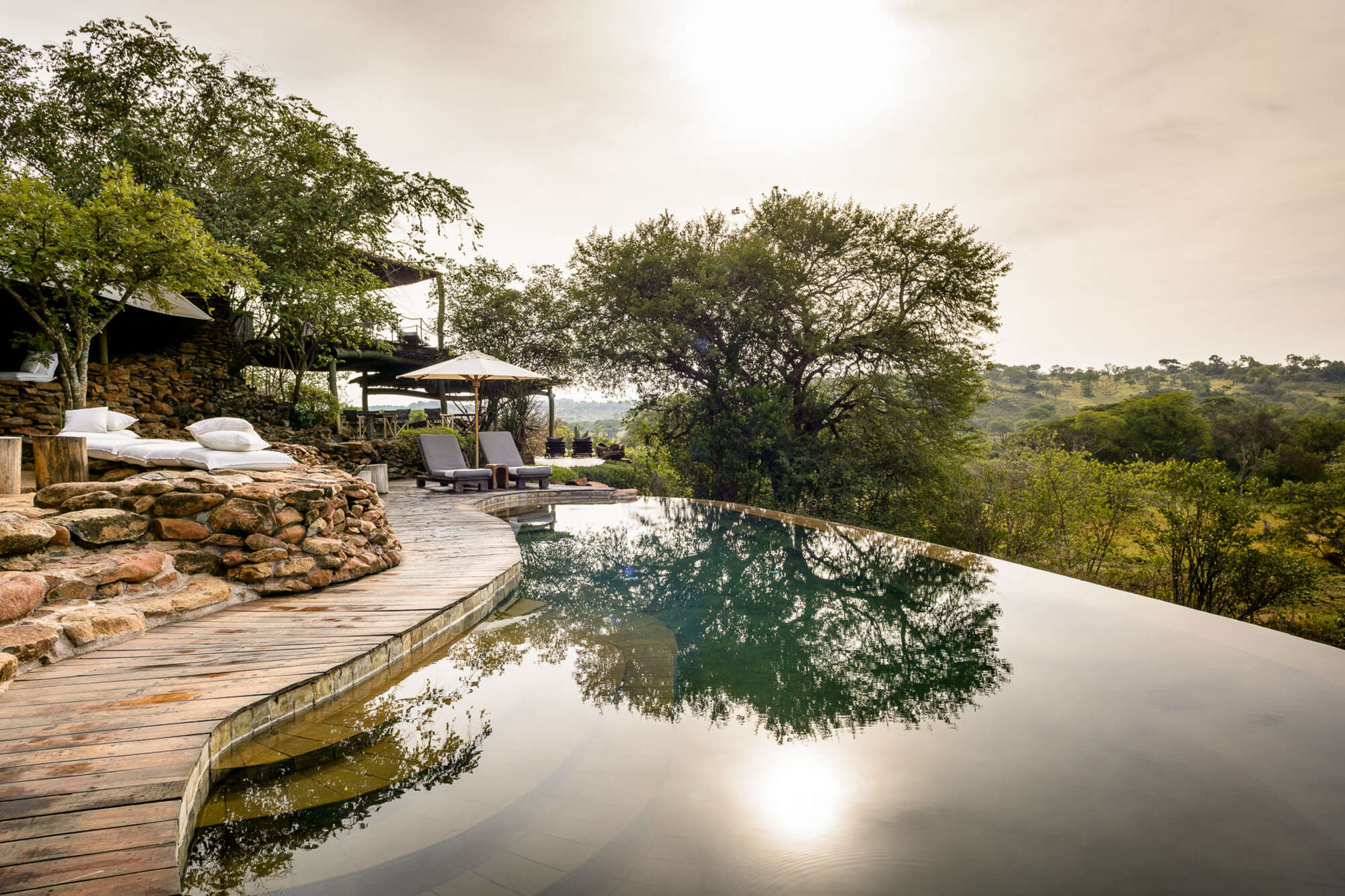
Faru Faru Lodge
On the north bank of the Grumeti River, Faru Faru is a small, chic hideaway in this exclusive corner of the Serengeti.
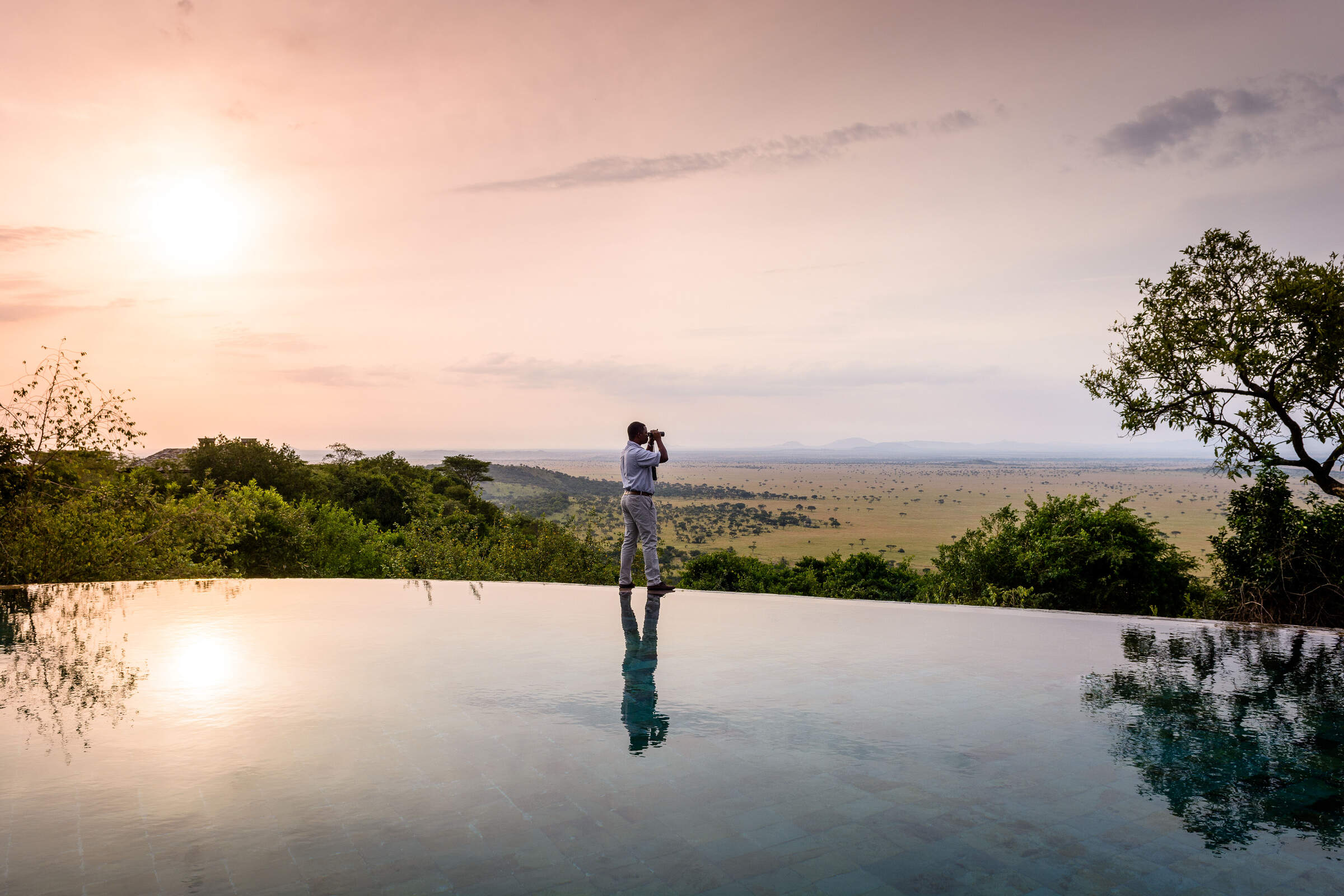
Sasakwa Lodge
On a hill looking over the Serengeti plains, Sasakwa Lodge is grand, luxurious safari camp, one of the most opulent properties in Tanzania.
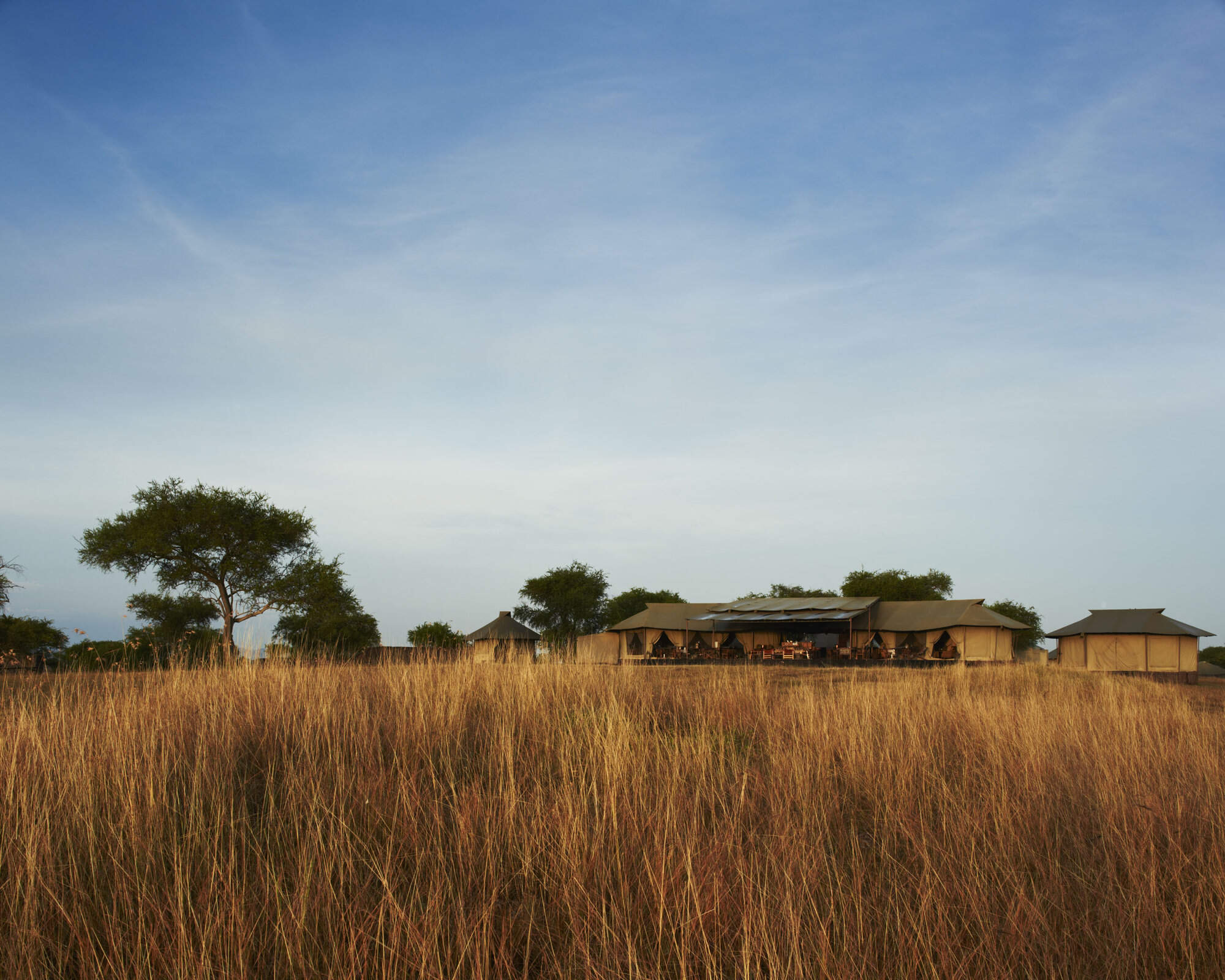
Sabora Tented Camp
Sabora Tented Camp is a smart tented camp – one of the most luxurious, professional and stylish properties to be found in Tanzania.
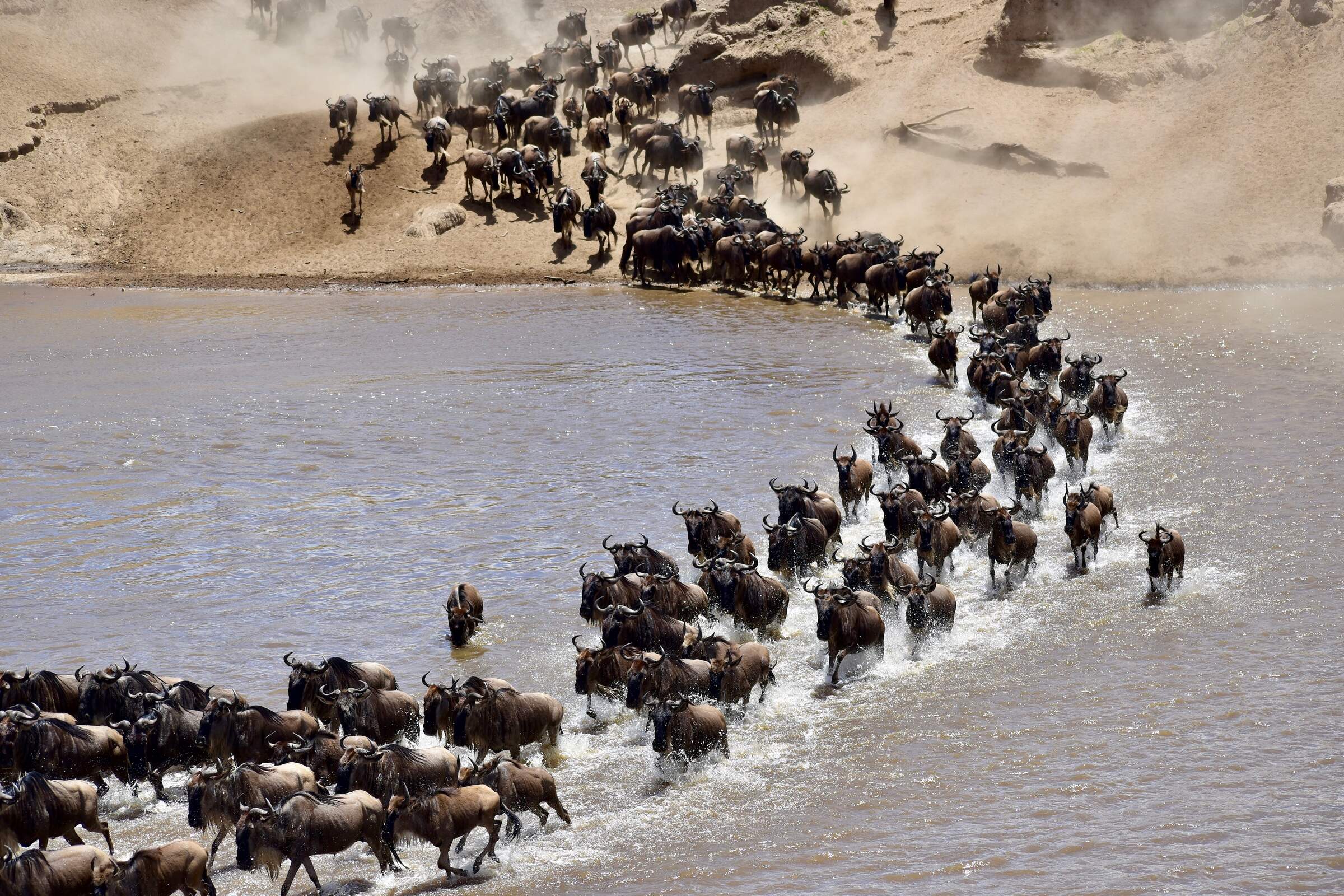
Kirurumu Migration Camp
Kirurumu is a rustic tented camp which moves around the Serengeti twice a year to follow the wildebeest migration.
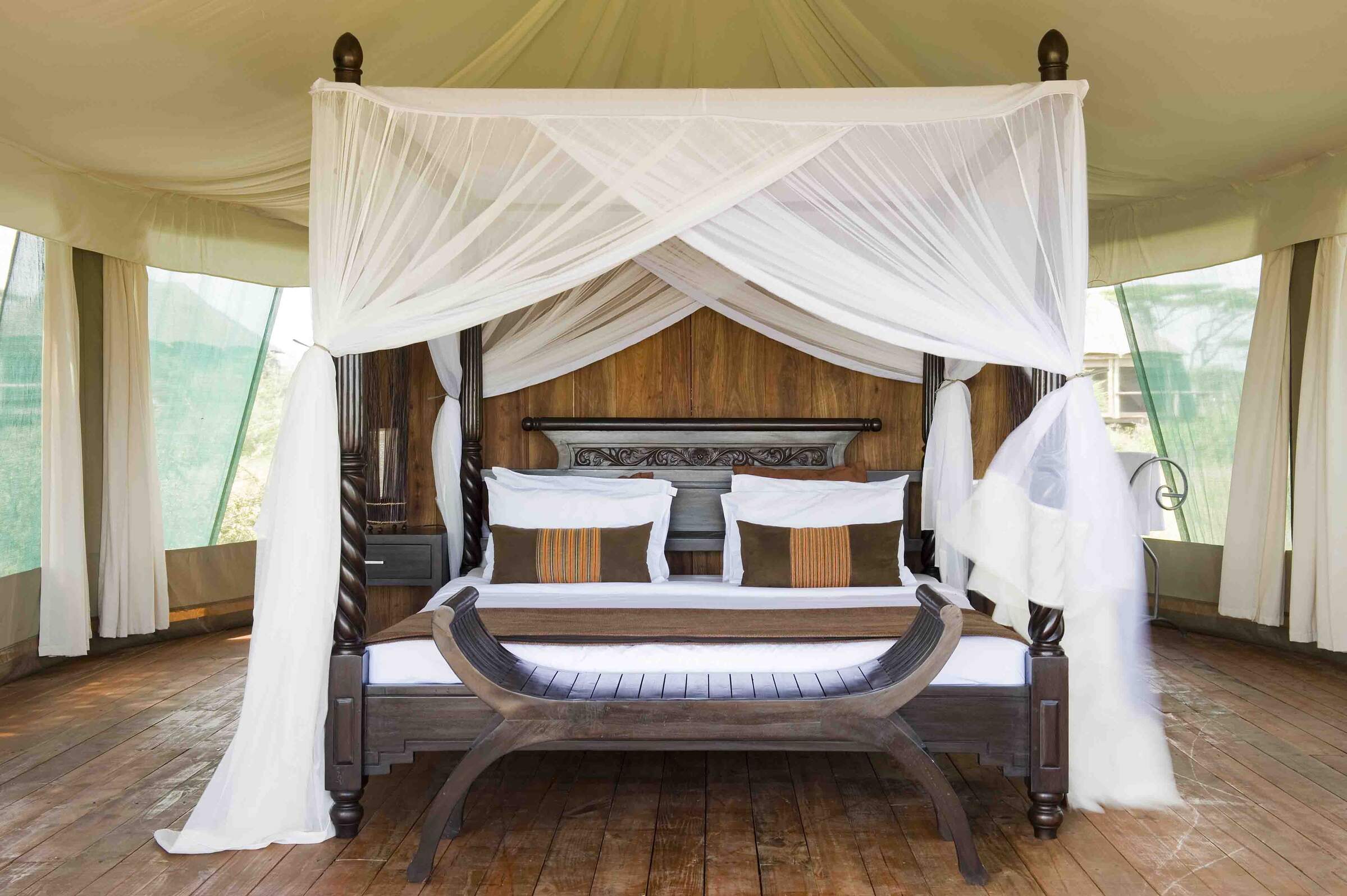
Lake Masek Tented Camp
Ideally located for the wildebeest migration from Dec–Apr, Lake Masek Tented Camp is a good, mid-market safari camp.
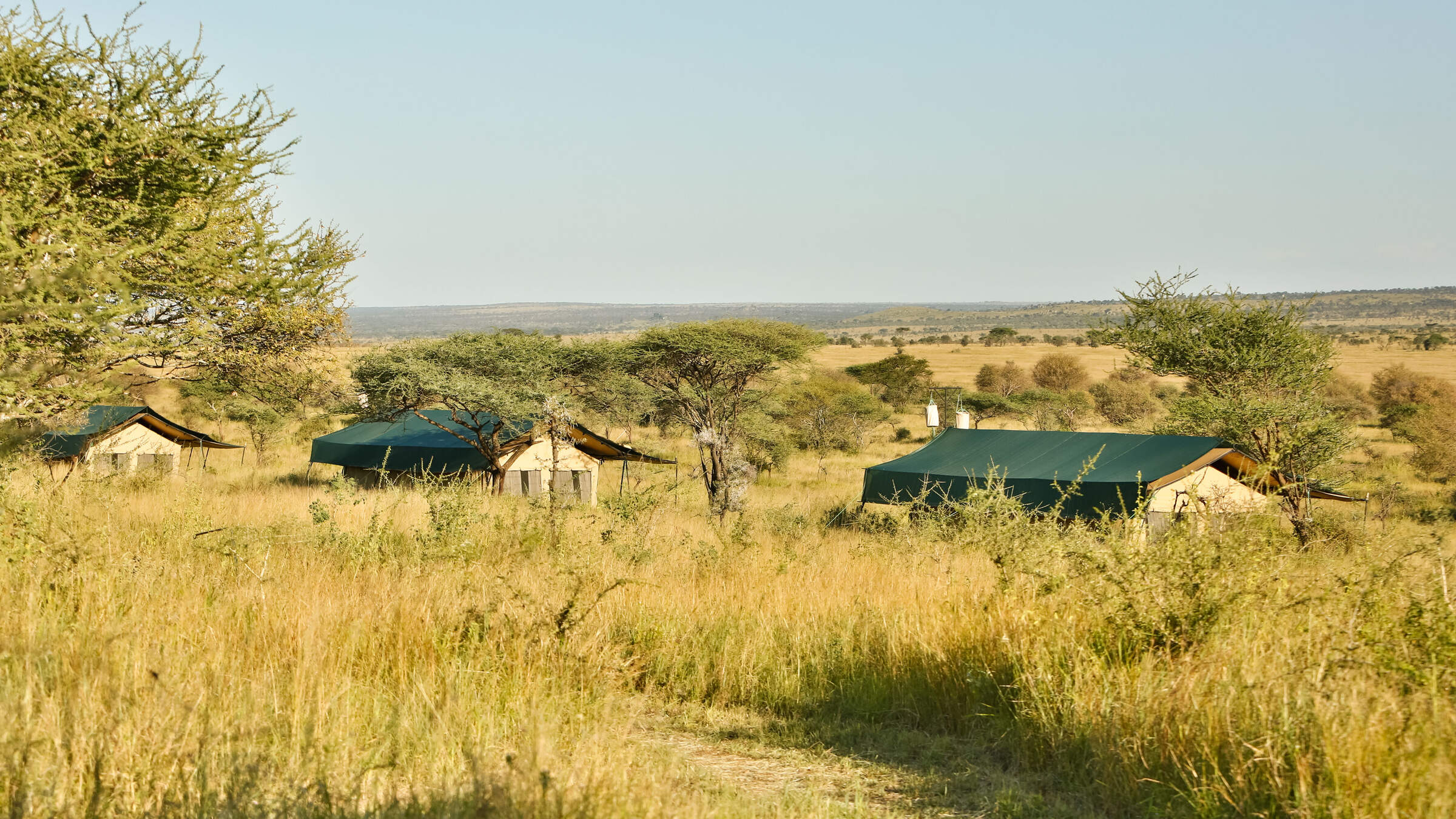
Nyikani Central
Nyikani Central is a comfortable tented camp located in the game-rich Seronera area of the central Serengeti.
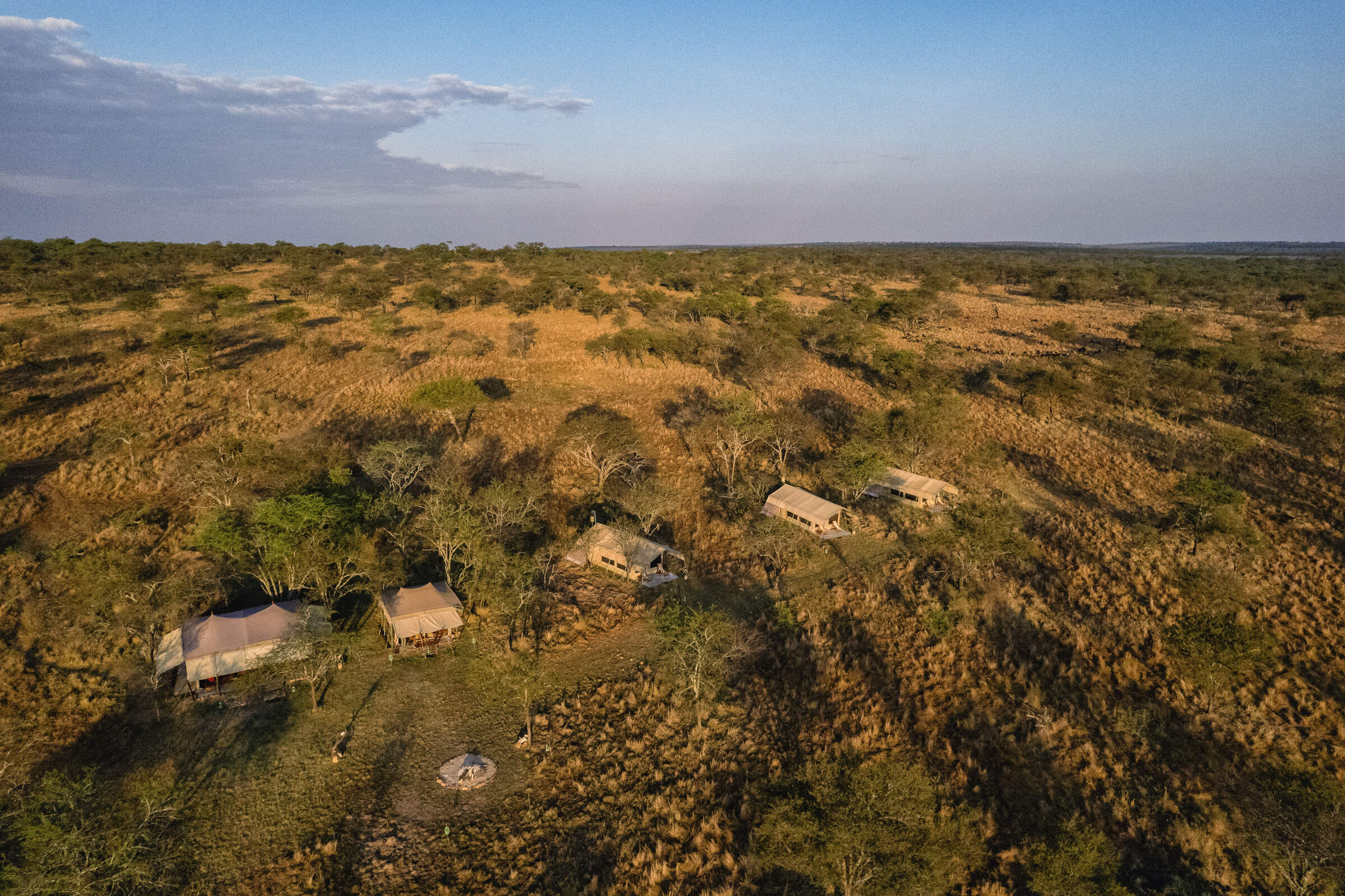
Esirai Migration Camp
A season migration camp, with only 8 tents and 1 family tent and plenty of character. Esirai is ideally placed for excellent wildlife and enjoys a simplistic and comfortable under-canvas experience.
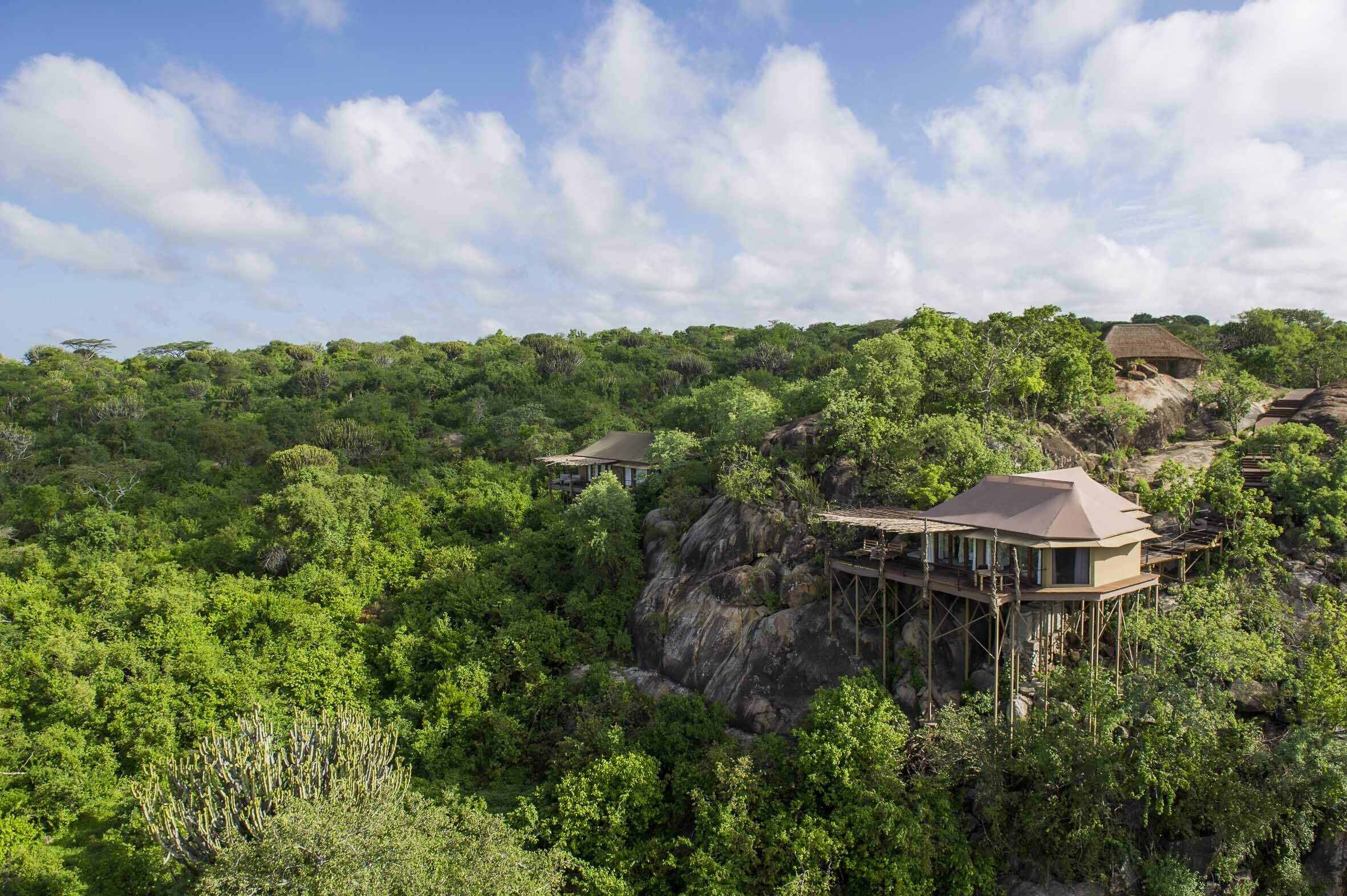
Mwiba Lodge
Mwiba Lodge is a luxurious property located on a private concession on the edge of the southern Serengeti.
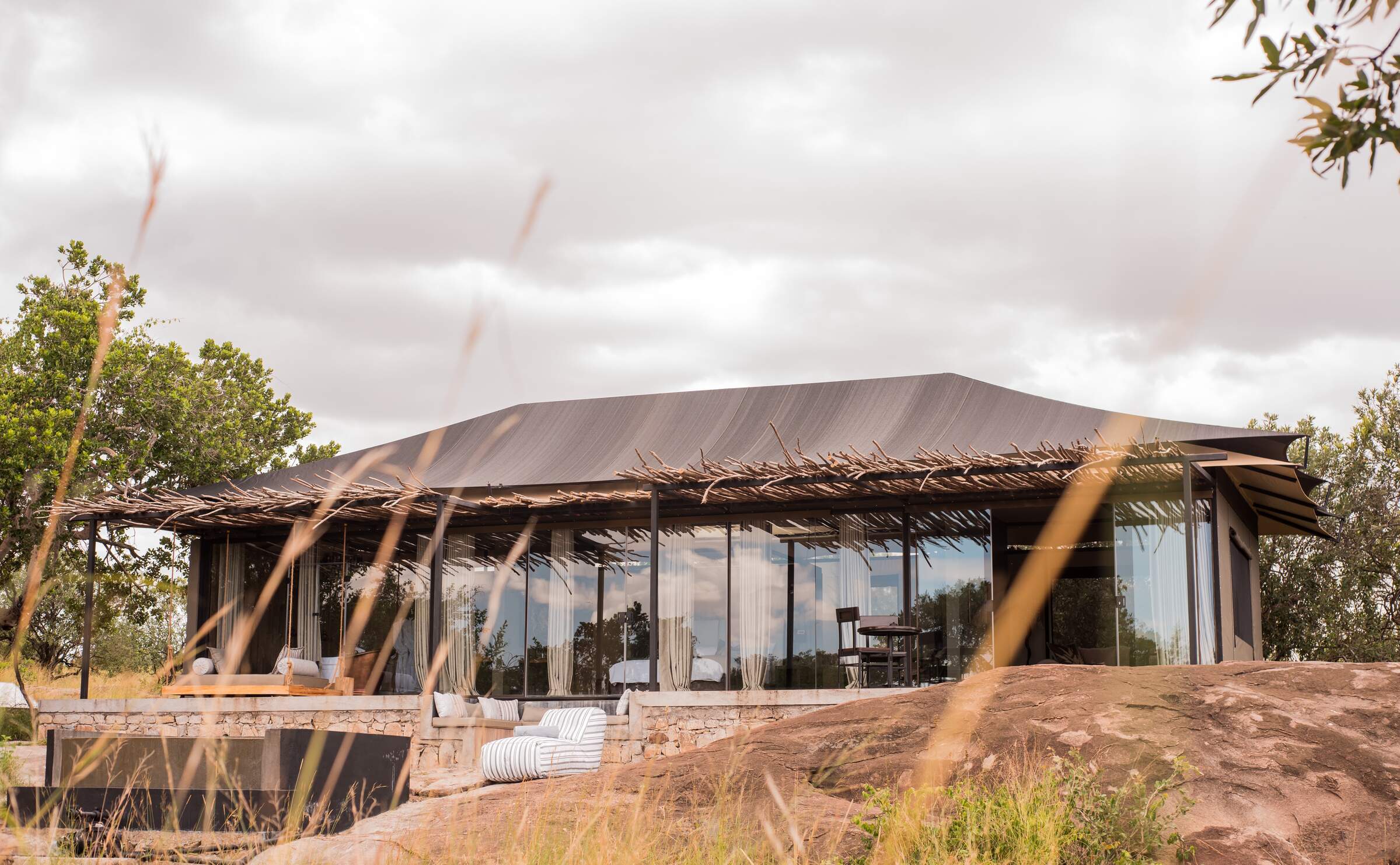
Nimali Mara
Nimali Mara is a luxurious safari lodge in a quiet region of the northern Serengeti with good access to the wildebeest migration.
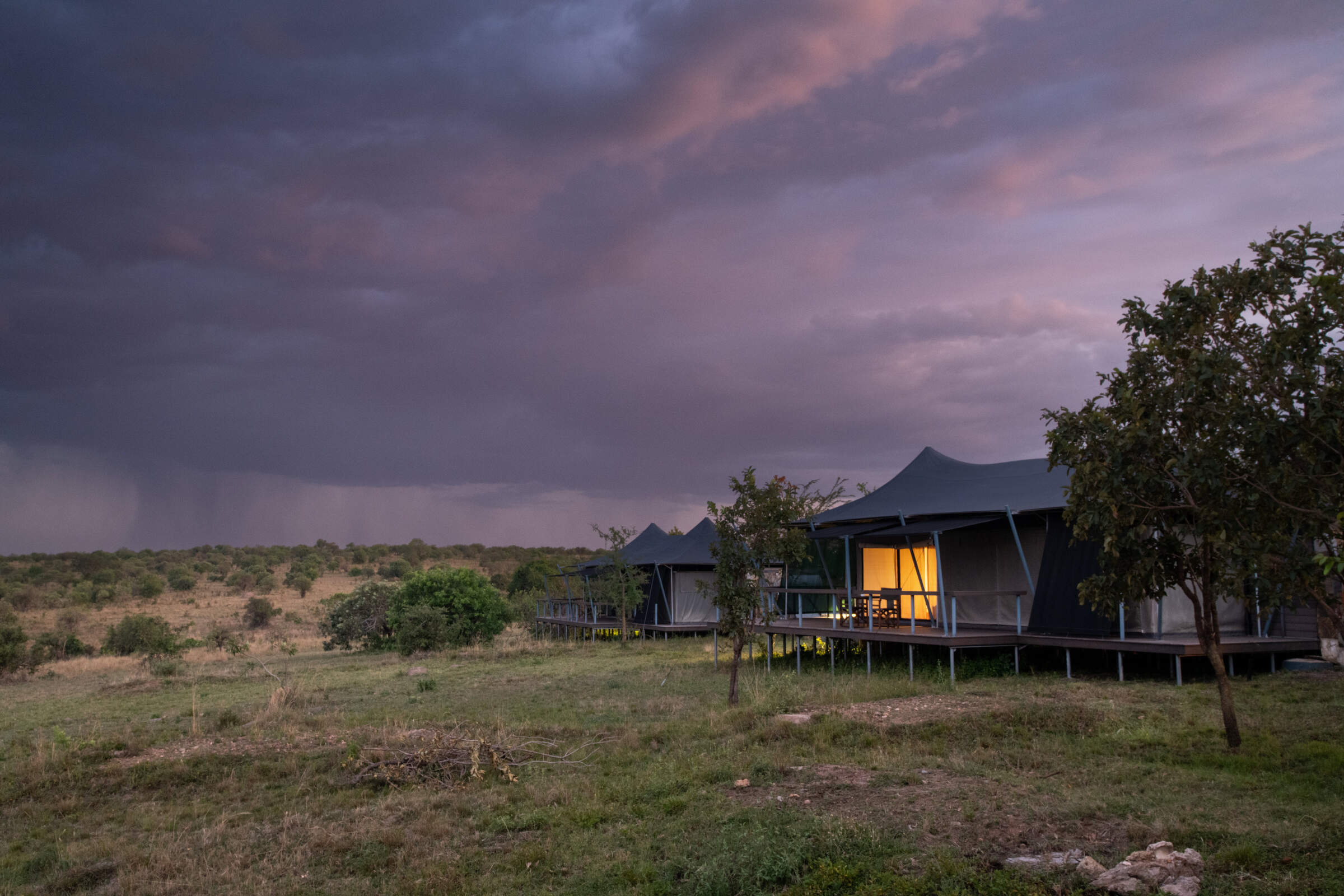
Mara Mara
Mara Mara is a smart tented camp in the northern Serengeti, situated on a small hill close to the Mara River.
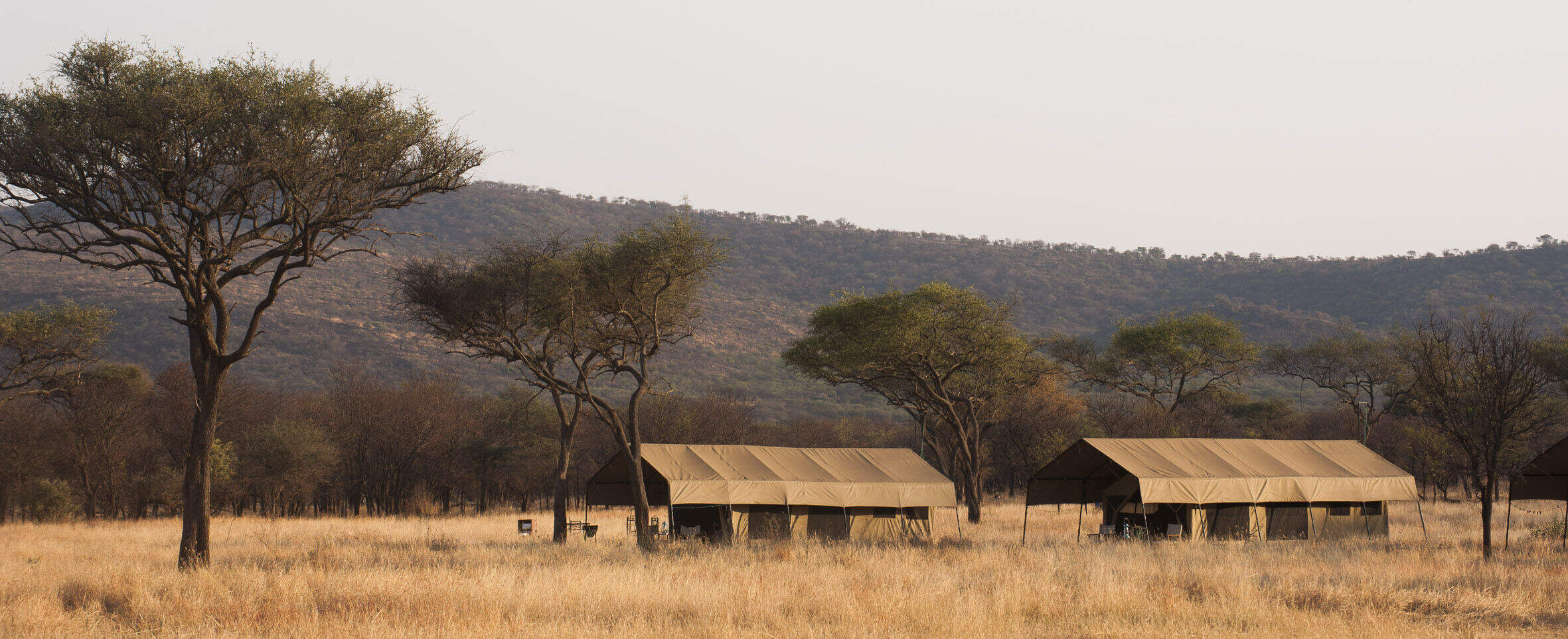
Ndutu Kati Kati
Ndutu Kati Kati is a seasonal tented camp, based in the southern Serenget from Dec-Mar, ideal for the migration as it passes through.

Olduvai Camp
Olduvai Camp lies between Ngorongoro and the southern Serengeti plains. It's a good base for the southern plains during the rainy season.
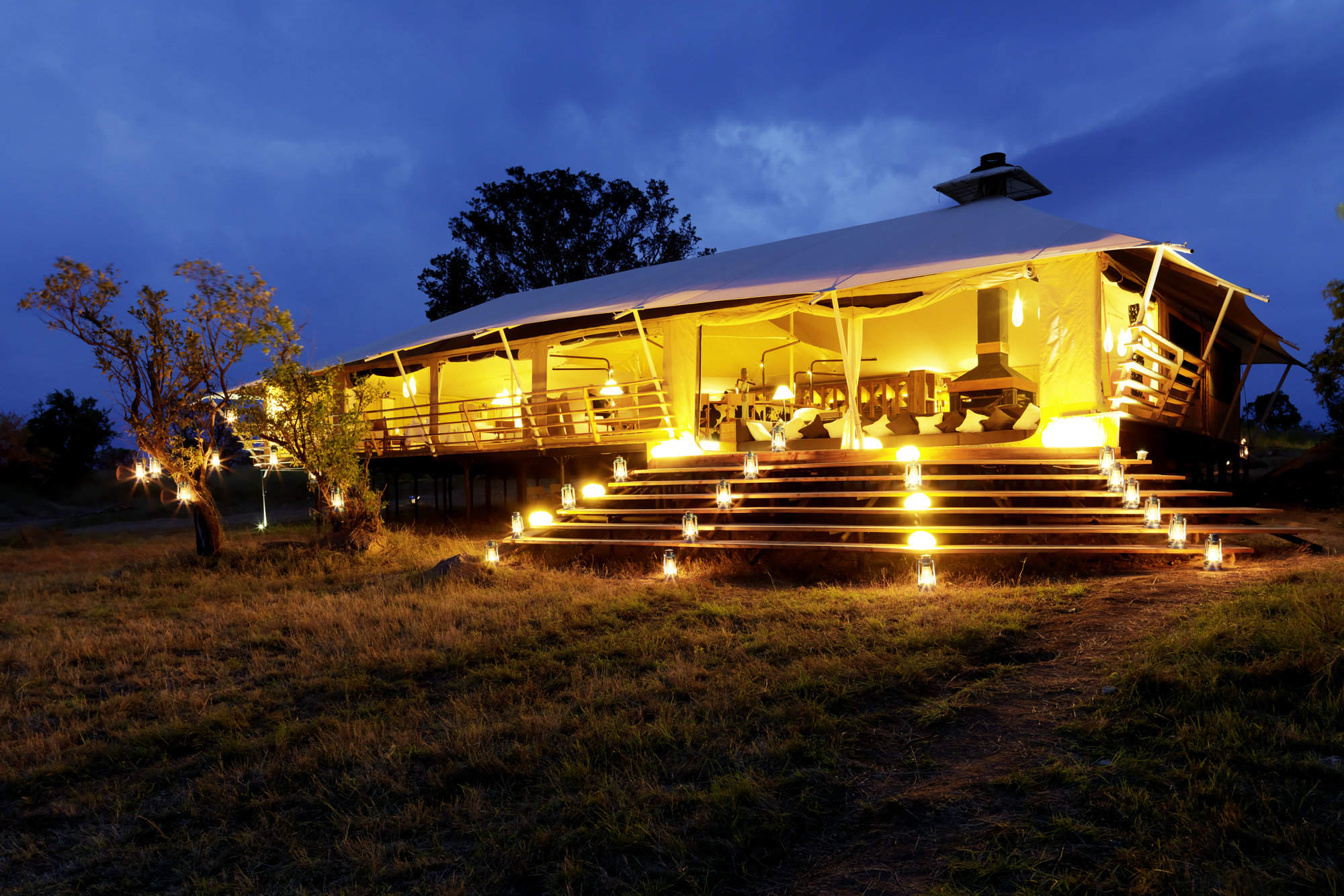
Bushtops
Serengeti Bushtops is a permanent luxury camp in the northern Serengeti, with spacious and private tents with their own hot tubs.
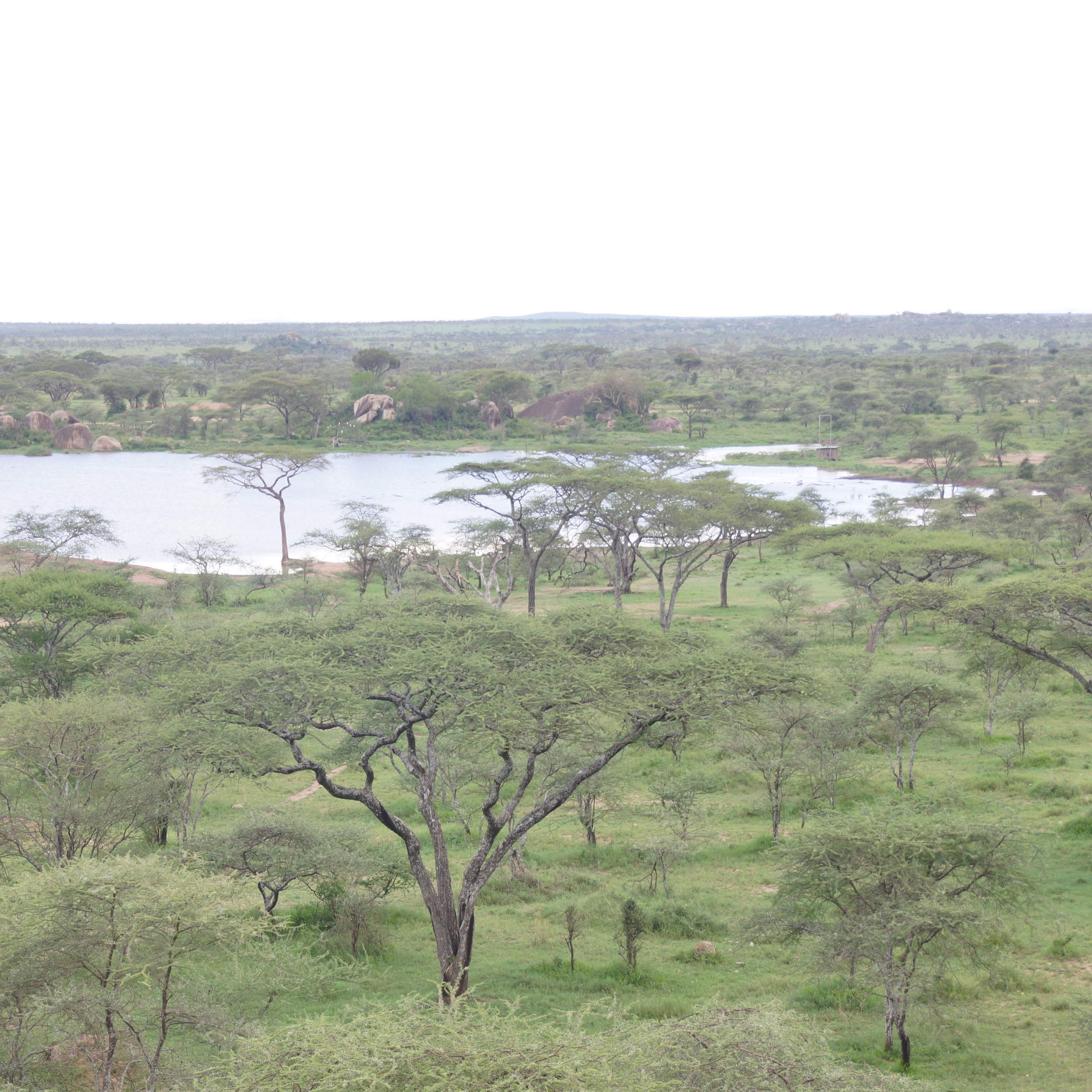
Seronera Wildlife Lodge
Seronera Wildlife Lodge is large hotel-style safari lodge in the heart of the Serengeti, offering good value and a great location.
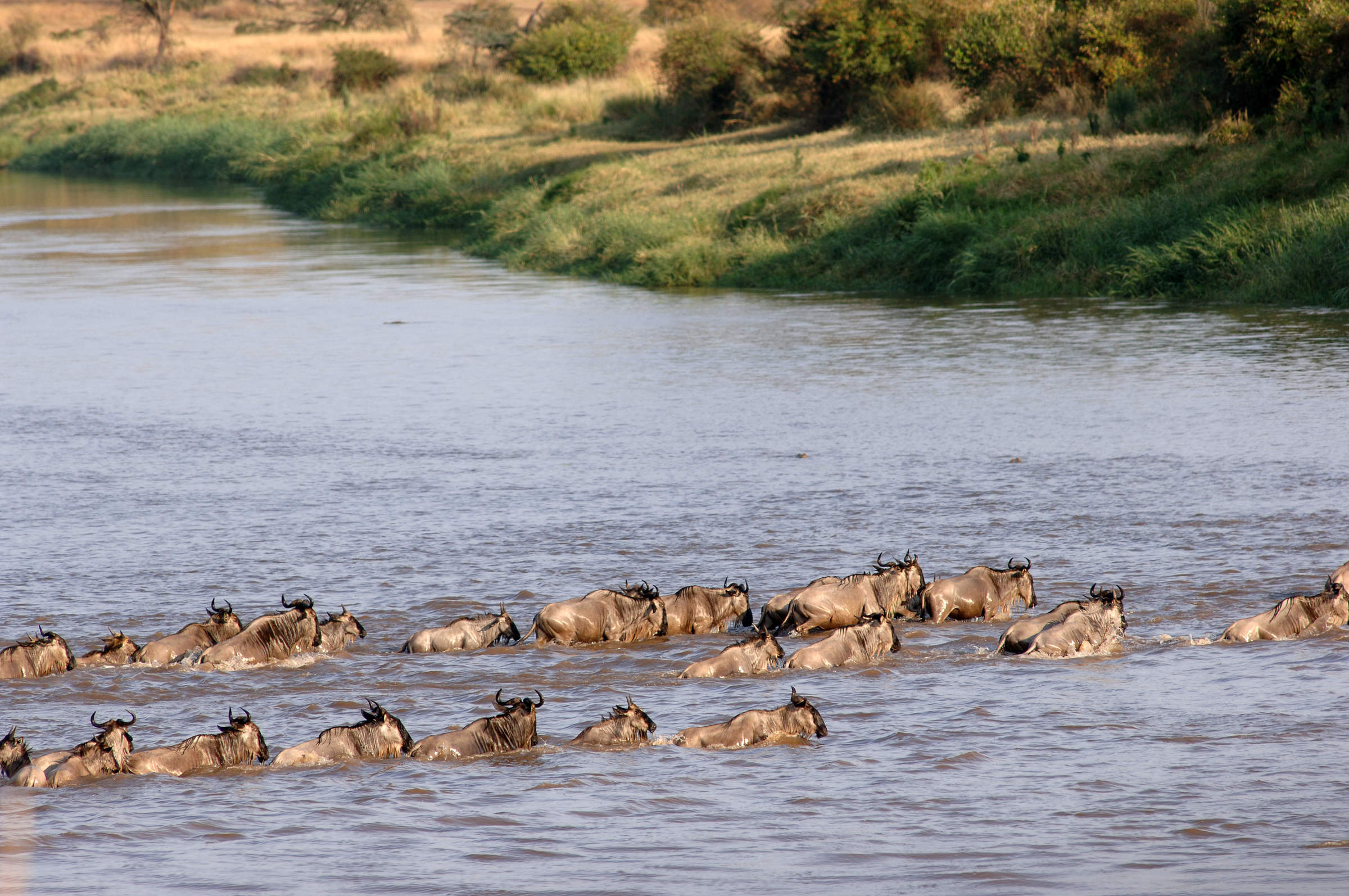
Mara Kati Kati
Mara Kati Kati is a simple bush camp in the northern Serengeti, based from Jul-Oct near the Mara River for the wildebeest migration.
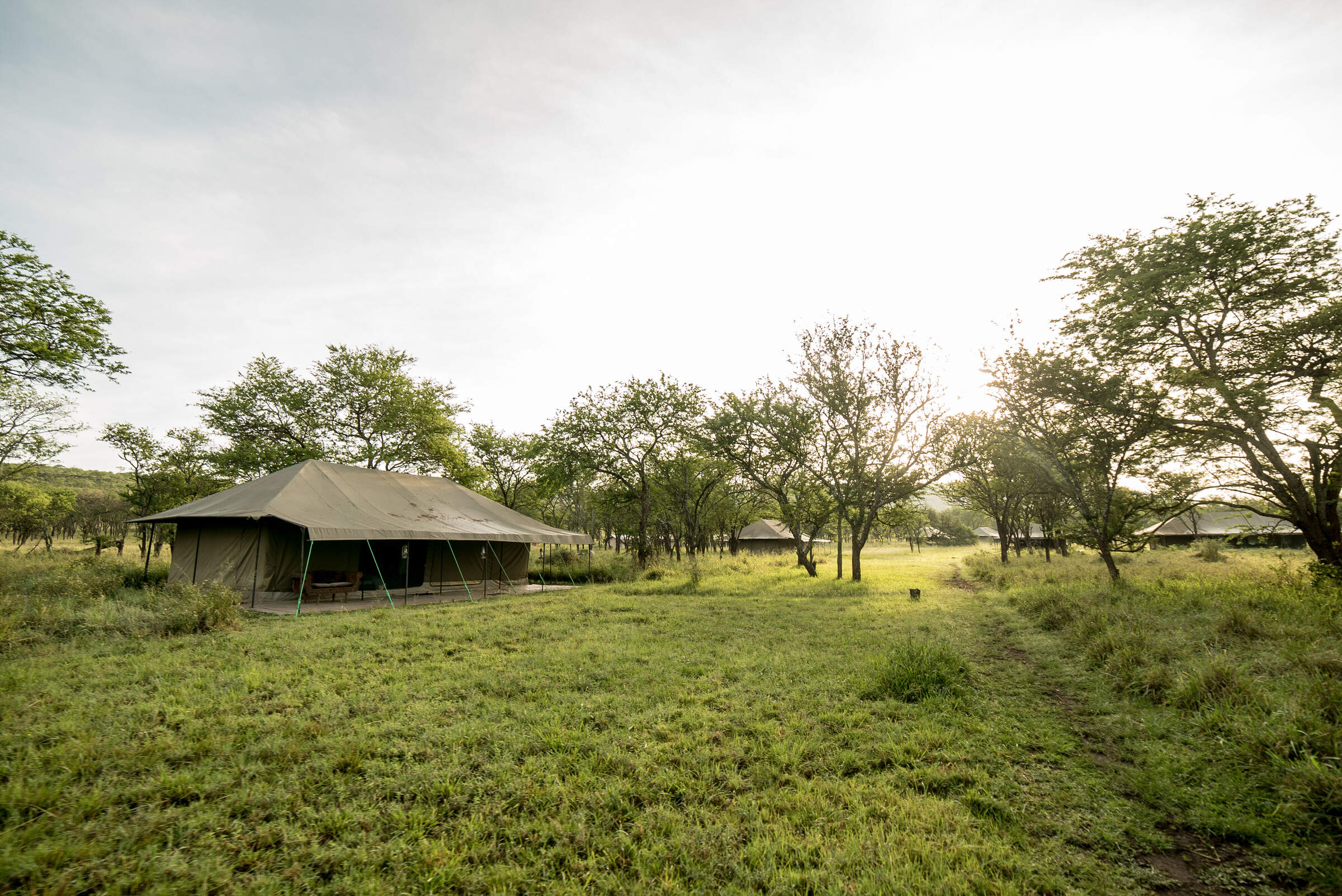
Nasikia Naona
Naona Camp is a small tented camp, located in the Moru Kopjes, west of the Serengeti central area
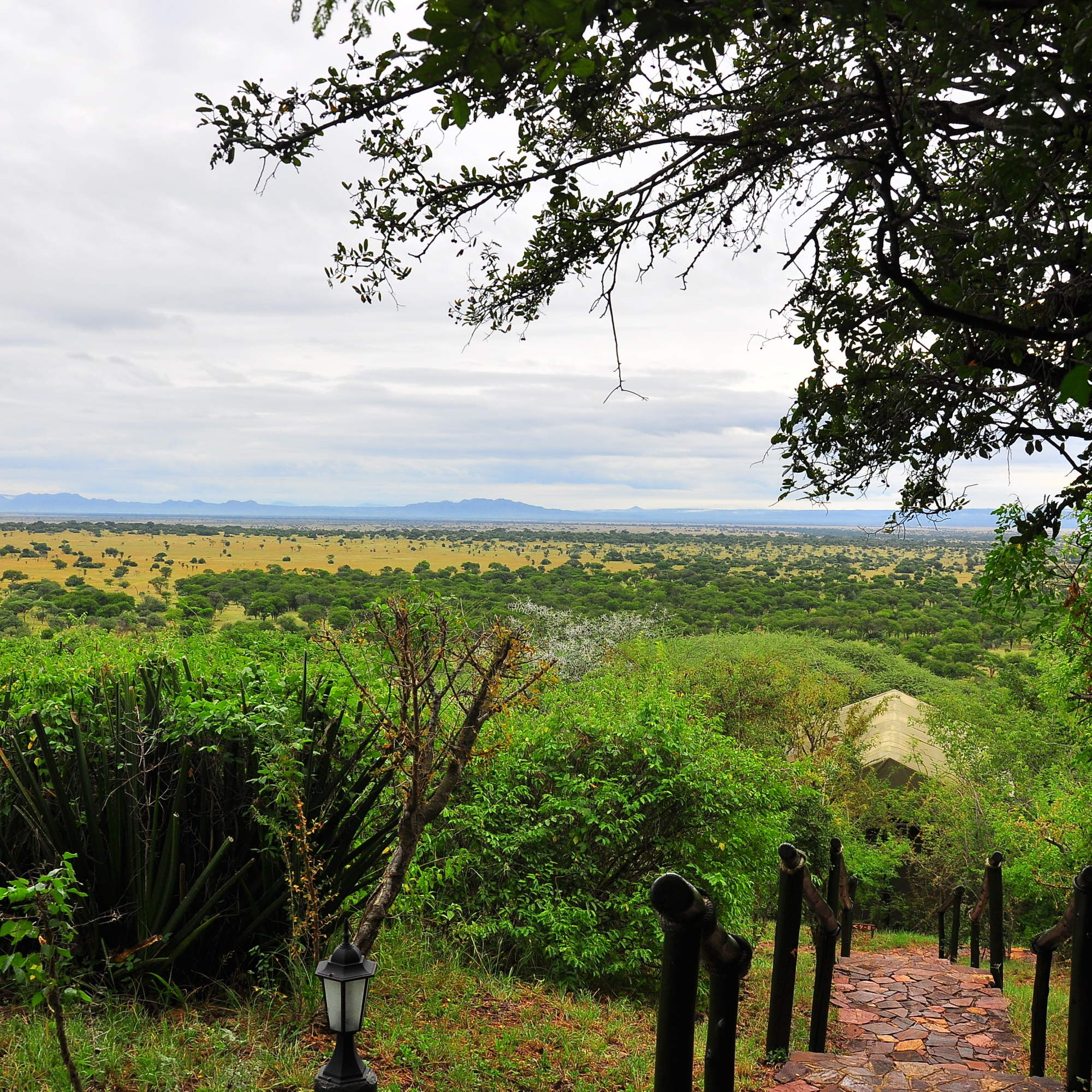
Kirawira Camp
Set high on a hill, in the Serengeti's western corridor, Kirawira is a relatively large tented camp in the Serena group.
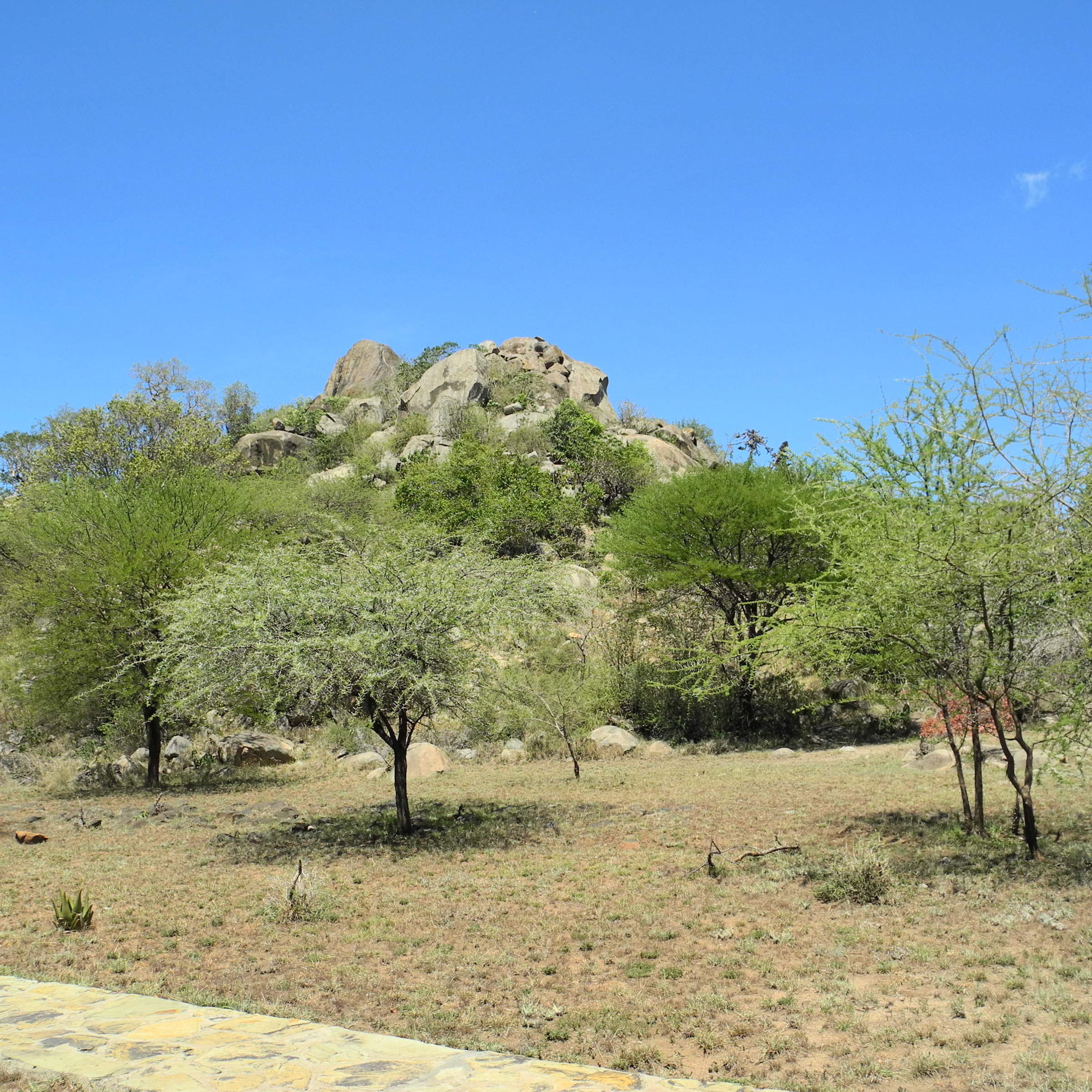
Mbuzi Mawe
Mbuze Mawe is a comfortable tented camp in a convenient, central-north location when driving through the Serengeti.
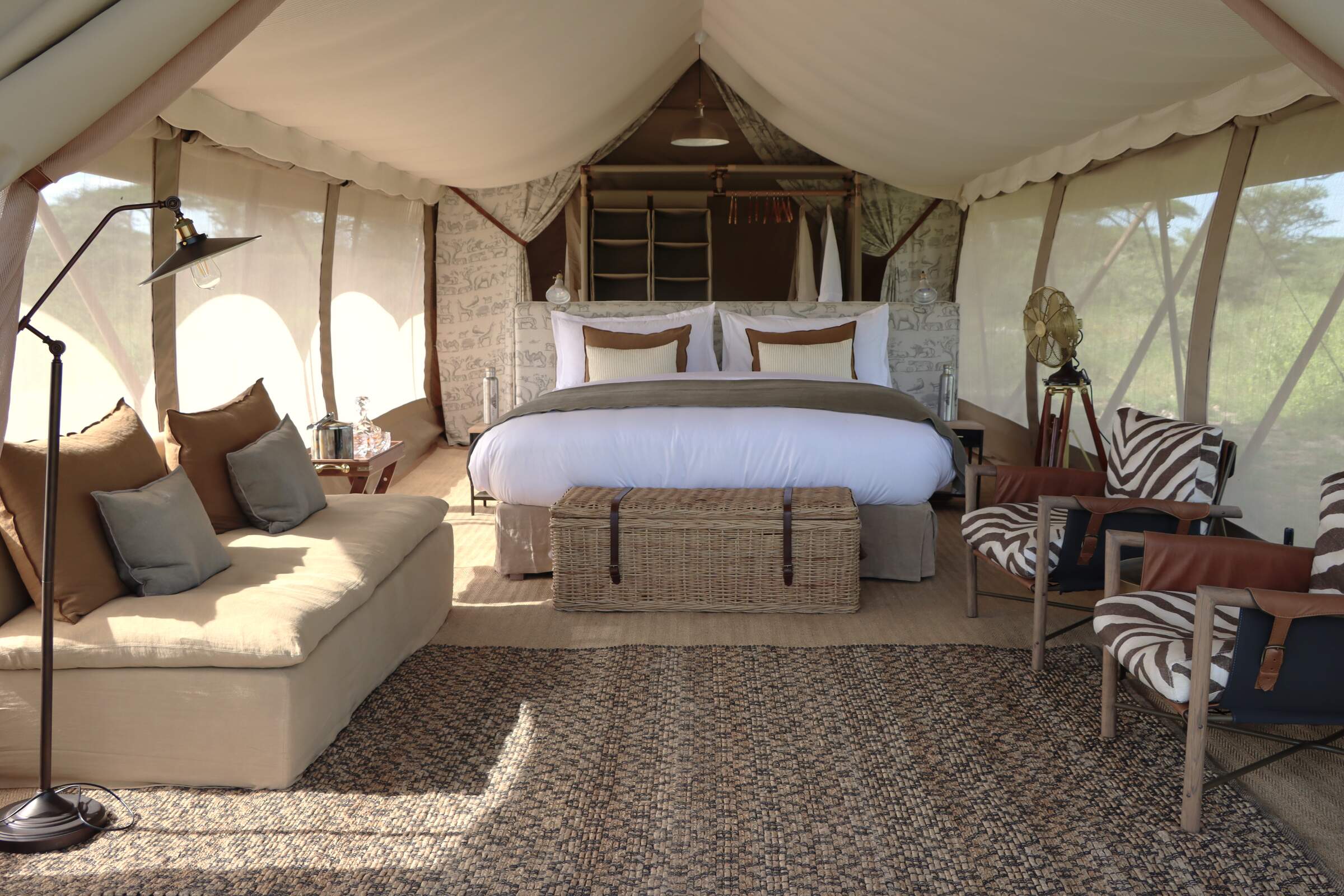
Laba Migration Camp
A luxury mobile camp that moves between the Western Corridor, Mara River and the southern Ndutu area, in line with the wildebeest migration.
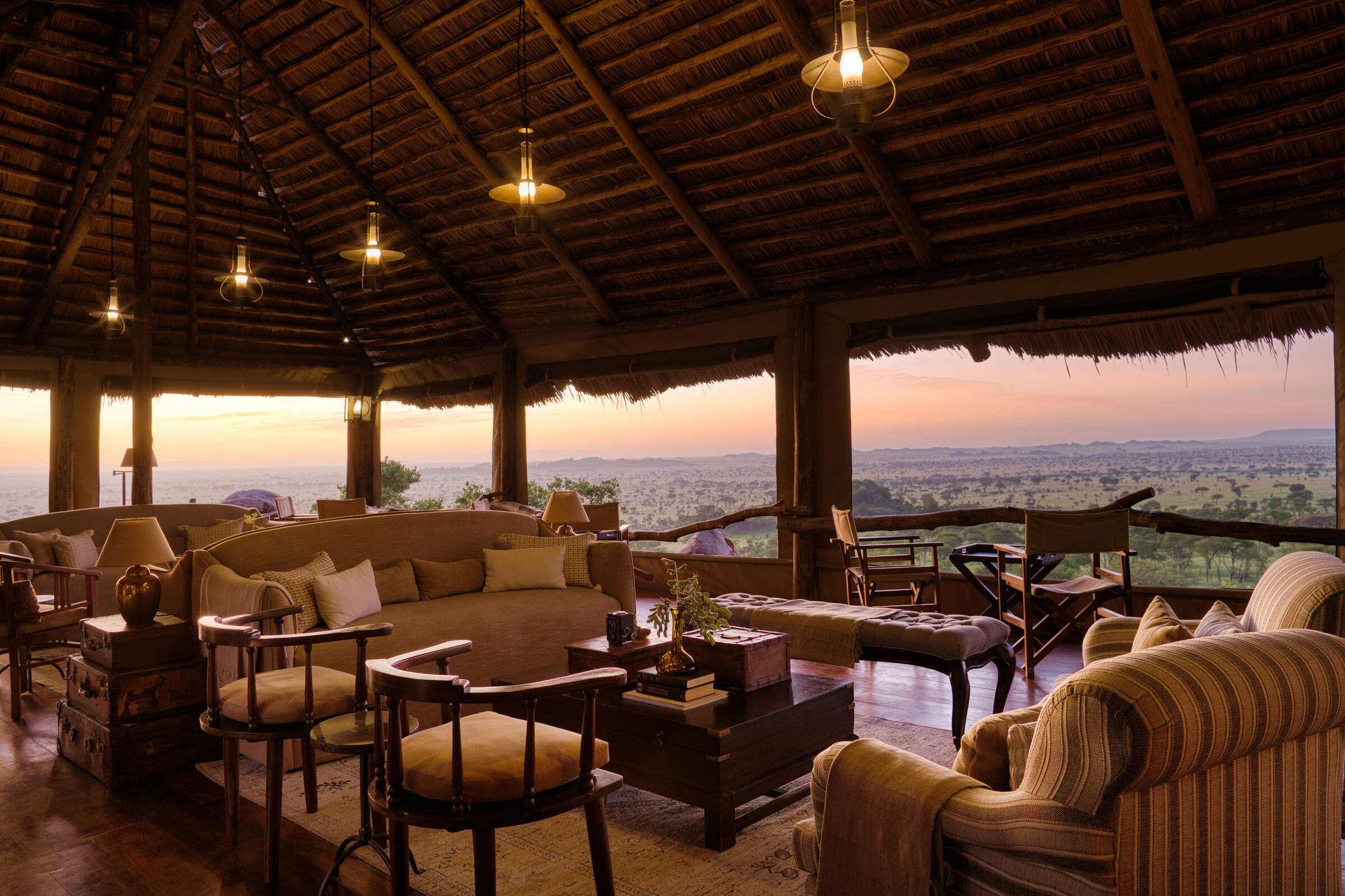
Serengeti Pioneer Camp
Serengeti Pioneer Camp is a luxurious tented camp in the central Serengeti, styled on African explorers' camps of the early 20th century.
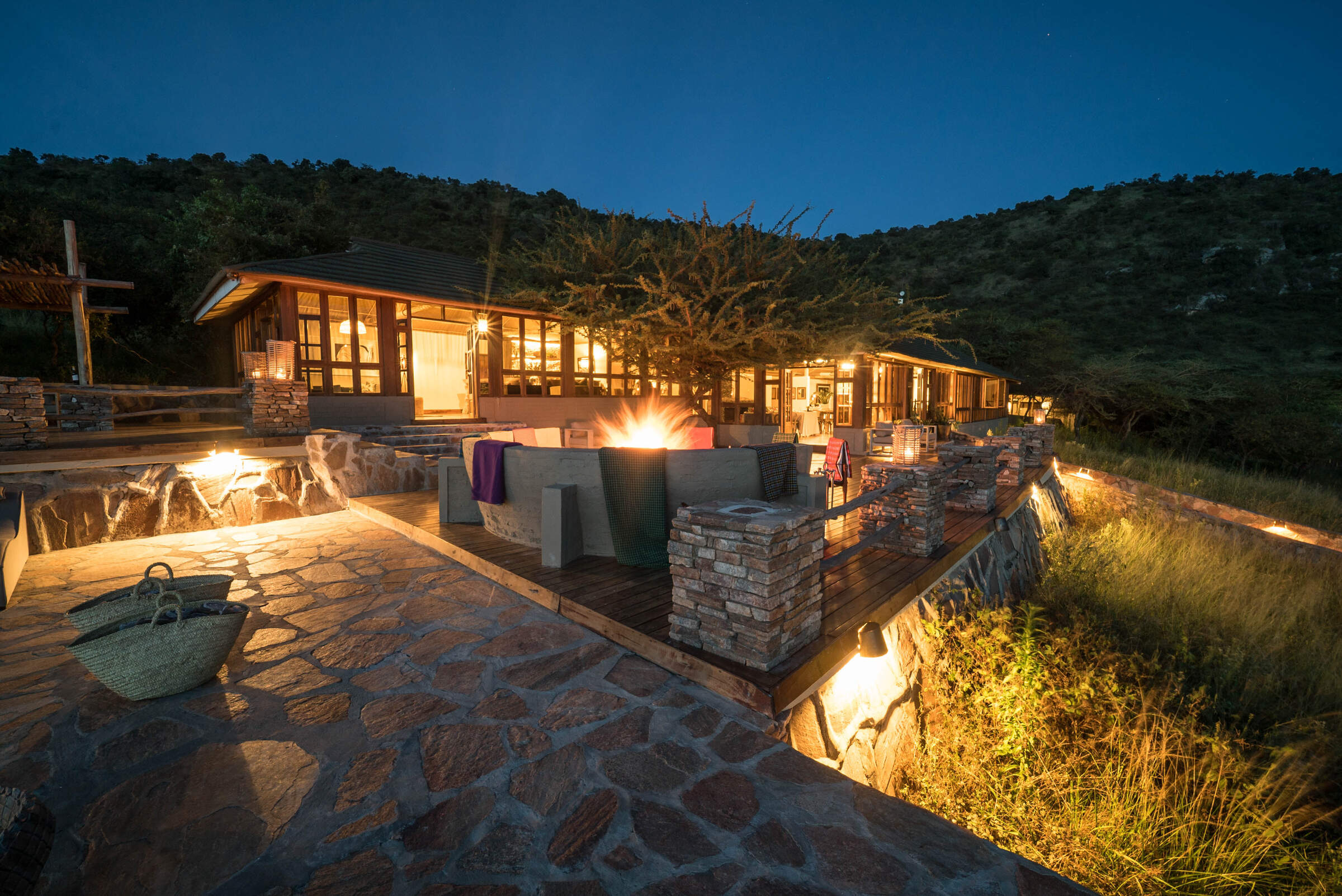
Taasa Lodge
Taasa Lodge is a slightly quirky option offering guided walks and night game drives, which are not permitted in Serengeti National Park.
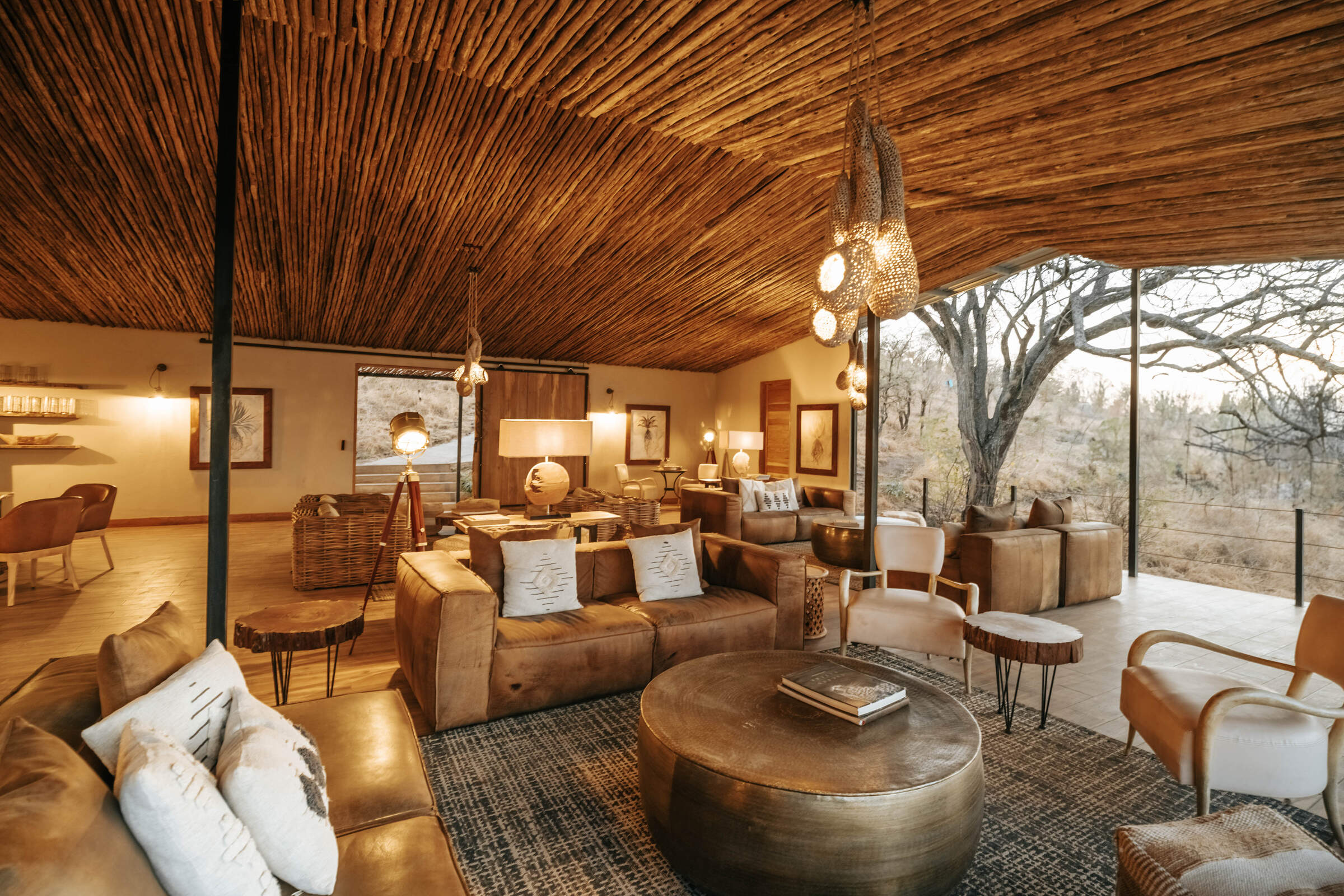
Nimali Serengeti
Opened in July 2017, Nimali Serengeti is a smart, permanent tented camp located in the Seronera area of the central Serengeti.
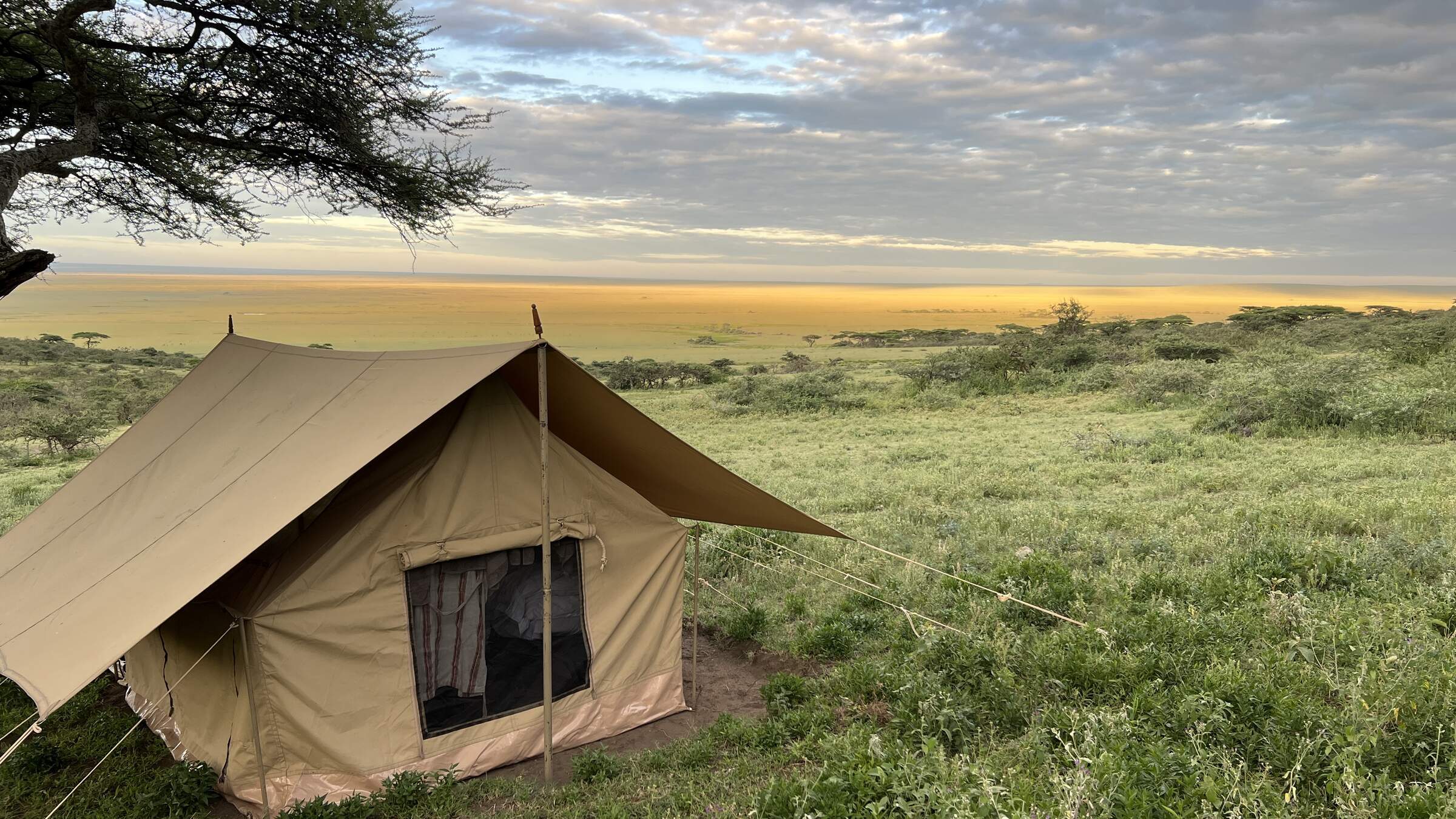
Nomad Walking Camp
Nomad Expeditionary Walking Camp is a simple camp of up to three tents, plus infrastructure, that changes location to allow guests to do substantial walks between campsites.
When to go to Serengeti Migration Area
Our month by month guide: What it's like to visit Four Seasons Serengeti in Serengeti Migration Area
Jan
Feb
Mar
Apr
May
Jun
Jul
Aug
Sep
Oct
Nov
Dec
Serengeti Migration Area in January
January marks the start of the Serengeti’s short dry season. In the southern plains, the wildebeest calving season takes centre stage, drawing both predators and eager wildlife enthusiasts. The weather is generally clear and sunny, with rising temperatures, though occasional rainfall may still occur in the southern areas. Birdwatching is particularly rewarding during this time, with resident species in their breeding plumage and migratory birds adding to the variety.
The far southern plains of Ndutu coupled with the central Seronera area remains a reliable choice for game viewing, with lions and cheetahs frequently sighted on the hunt. While the park can be busier early in the month due to New Year visitors, it often becomes quieter later, providing excellent value and a more peaceful experience. Patience may be needed during game drives, as some wildlife becomes more dispersed.
- Variable weather: clear, dry or rainy
- Thunderstorms may occur occasionally
- Prime birding season with migrant species
- Wildebeest gathering in southern Serengeti
- Busy early, quieter later in the month
Our view
A good time to visit, with pros & cons
Weather in January
Serengeti Migration Area in February
February in the Serengeti is hot, with daytime highs reaching around 33°C/91°F, but cooling down significantly in the evening and overnight. It's an excellent time to visit as the northern circuit is comparatively quieter than during peak seasons. The wildebeest calving season, typically occurring in a two-three week window in early-mid February, is a major attraction. Thousands of calves are born daily, attracting a significant number of predators, creating an intense yet fascinating spectacle.
Birdlife is equally vibrant, as migratory species from the northern hemisphere join the park's resident birds. The Ndutu region is especially active, hosting an abundance of wildlife. Hot air balloon safaris offer unparalleled views of the action below. Despite the midday heat, early morning game drives remain comfortable and highly rewarding.
- Hot and dry weather conditions prevail
- Wildebeest calving in southern plains
- Southern Serengeti busy for migration
- Lush, green landscapes across the park
- Ideal for wildlife photography
Our view
A very good time to visit
Weather in February
Serengeti Migration Area in March
March typically sees the arrival of the long rains in the Serengeti, though the exact timing can vary each year. With water becoming more plentiful, migratory animals begin to spread out, making wildlife spotting a bit more challenging in certain areas. The Seronera Valley remains a reliable choice for sightings, thanks to its consistent water sources.
The rains bring a dramatic transformation to the landscape, with lush greenery emerging across the plains, offering stunning photographic opportunities. Birdwatchers are in for a treat, as many species are in their vibrant breeding plumage. Although some mobile tented camps begin winding down operations in preparation for the next season, visitors can still enjoy the park’s quieter atmosphere and its renewed natural beauty.
- Hot with increasing humidity pre-rains
- Wildlife viewing varies as rains begin
- Park quieter with lower visitor numbers
- Excellent time for bird watching
- Green vegetation provides scenic backdrops
Our view
A good time to visit, with pros & cons
Weather in March
Serengeti Migration Area in April
April tends to be the wettest month in the Serengeti, with rainfall averaging around 250mm. The park is transformed into a verdant oasis, alive with birds, insects, and smaller wildlife. However, the dense vegetation can make spotting animals more difficult. Visitor numbers are at their lowest, allowing for a more exclusive safari experience and there can be some good emerald season bargains to be had.
The wildebeest migration typically begins slowly moving toward the Western Corridor, and patient travellers can witness fascinating sights such as newborn animals and predators on the hunt. Rising water levels make the Retina Hippo Pool particularly active. Birdwatching continues to be excellent, and many lodges offer reduced rates, making it an appealing time for those willing to brave occasional downpours.
- Heavy rains with impressive thunderstorms
- Some camps closed due to weather
- Lowest rates and fewest tourists
- Vibrant greenery, wildlife more dispersed
- Not ideal for general wildlife viewing
Our view
This is not a great time to visit
Weather in April
Serengeti Migration Area in May
As the month of May progresses, the rains start to taper off across the Serengeti and temperatures drop slightly. Visitor numbers remain low, and lodge rates are often highly competitive, making it a great time for more value-conscious travellers. The wildebeest migration usually still heading towards the Western Corridor, with some herds nearing the Grumeti River and others still milling around the central area of the park. Predator-prey interactions become more frequent as animals navigate the changing environment.
The Moru Kopjes region offers particularly rewarding wildlife encounters, including the chance to spot black rhinos. The park’s vegetation is at its lushest, providing breathtaking backdrops for photographers. Balloon safaris during this time give a spectacular view of the green plains and migrating herds.
- Rains continue, creating dramatic skies
- Quiet period, great for avoiding crowds
- Lush landscapes with long grasses
- Wildlife more dispersed, fewer sightings
- Affordable safari options available
Our view
This is not a great time to visit
Weather in May
Serengeti Migration Area in June
June signals the end of the rainy season in the Serengeti, with the landscape beginning to dry out. Wildlife starts to gather around permanent water sources, and the Grumeti River becomes a key location for dramatic river crossings. Before the wildebeest migration heads north, the Western Corridor remains a hub of activity.
Many camps will offer shoulder season rates in June, meaning that this is also a more affordable time to visit than later in the year. The Lobo Valley in the north also becomes a productive area for wildlife viewing. With shorter grasses and clearer conditions, June is an excellent time for walking safaris in designated areas. The balance of good weather, exciting wildlife action, and moderate tourist numbers makes it a great month to visit.
- Weather varies: clear, dry or some rain
- Migration moving from west to north
- Parks still green with high grasses
- Wildlife becoming more concentrated
- Good value shoulder season prices
Our view
A good time to visit, with pros & cons
Weather in June
Serengeti Migration Area in July
July is the start of peak season in the Serengeti, with little to no rainfall expected and pleasant daytime temperatures. As the park dries, wildlife congregates in fewer areas, improving game viewing opportunities. The wildebeest migration typically reaches the northern Serengeti, with herds beginning to cross the Mara River. This spectacle draws many visitors, making the northern areas busier.
The Seronera area remains excellent for big cat sightings. In the western corridor, resident game becomes easier to spot as vegetation thins. Balloon safaris are particularly popular this month, offering breathtaking views of the migrating herds. Despite the crowds, July offers some of the year's best wildlife viewing opportunities across the park.
- Dry days, chilly mornings and evenings
- Excellent wildlife viewing opportunities
- Peak season with increasing visitor numbers
- Highest prices due to prime conditions
- Great Migration in full swing
Our view
Fantastic: the very best time to visit
Weather in July
Serengeti Migration Area in August
August in the Serengeti is characterised by clear skies and sunny weather, though cooler nights and mornings call for layered clothing for early morning game drives. It's an extremely popular time to visit, with accommodation prices at their peak. The northern Serengeti is particularly busy as visitors hope to witness migration river crossings – with the Mara and Sand rivers becoming focal points for dramatic wildlife interactions.
In the central Serengeti, predator sightings remain good around the Seronera River. The park's southern regions are now much drier, home to excellent resident game and now fewer visitors. Balloon safaris provide stunning aerial views of the landscape and wildlife. While August is a very busy time, the consistent wildlife activity and reliable weather make it a fantastic month to visit.
- Dry climate, cool mornings and evenings
- Superb general wildlife viewing
- Exciting wildebeest migration period
- Very busy, camps fill up quickly
- Dramatic river crossings may occur
Our view
Fantastic: the very best time to visit
Weather in August
Serengeti Migration Area in September
September continues the Serengeti’s dry season, with wildlife becoming increasingly concentrated around the few remaining water sources. The northern Serengeti still hosts the wildebeest migration, with river crossings at the Mara River offering dramatic predator-prey interactions. The Seronera Valley remains an excellent spot for sightings of resident predators, while the now-parched southern plains offer good chances to see cheetahs.
As the month progresses, visitor numbers begin to drop slightly, making it a quieter time to explore. Birdwatching remains rewarding, and walking safaris provide a more intimate wildlife experience. September’s pleasant weather and exceptional wildlife viewing make it a very good time to visit.
- Fantastic wildlife viewing conditions
- Slightly less crowded than peak months
- Parks becoming dry with less vegetation
- Pleasant temperatures throughout day
- Prices remain high for quality safaris
Our view
Fantastic: the very best time to visit
Weather in September
Serengeti Migration Area in October
October marks the tail end of the dry season in the Serengeti. Wildlife gathers around the last water sources, creating fantastic viewing opportunities. The Mara River may still see some migration activity, while the central Seronera region continues to deliver reliable predator sightings. In the western corridor, large herds of elephants are a highlight, and the dry southern plains can sometimes offer very good opportunities to spot cheetah.
Birdwatching is rewarding, with many resident species easily spotted. Balloon safaris offer breathtaking views of the parched landscape – though photographers need to be prepared for dusty conditions. Prices remain high, but visitor numbers are lower than in July-Sept, providing a more exclusive safari experience.
- Mostly dry with comfortable temperatures
- Excellent game viewing opportunities
- Landscape may appear somewhat barren
- Lower visitor numbers than earlier months
- Chance to see predator action at its best
Our view
A very good time to visit
Weather in October
Serengeti Migration Area in November
November usually signals the start of the short rains in the Serengeti. While lighter and more sporadic than the long rains, they rejuvenate the landscape with fresh grass growth. Wildlife begins to disperse as water becomes more readily available, but game viewing remains strong, particularly in the central Seronera area.
The wildebeest herds start their journey southward from the Mara region, creating opportunities for unique sightings. Birdwatching is excellent, with the arrival of migratory species adding to the variety. Some mobile camps in the north close temporarily, but those who visit in November can enjoy great value with lower rates and quieter conditions.
- Variable weather: clear, dry or rainy
- Parks quieter with lower-end prices
- Some camps close for maintenance
- Wildlife disperses as rains begin
- Migration movement less predictable
Our view
A good time to visit, with pros & cons
Weather in November
Serengeti Migration Area in December
December is a transition month in the Serengeti, falling within the short rainy season. The rains bring life to the southern plains, attracting the wildebeest herds and the predators that follow them. The Ndutu region becomes a focal point for wildlife activity.
Temperatures are comfortable, averaging around 27°C/81°F, with the possibility of occasional thunderstorms. Birdwatching is outstanding, with many migratory species adding to the diversity. Early December offers good value, with lower prices and fewer visitors, but the festive season sees a surge in demand, requiring early bookings. Balloon safaris provide stunning views of the rejuvenated landscape, making December an exciting time to visit the park.
- Weather varies: dry, rainy, or stormy
- Good game viewing in central Serengeti
- Quiet early, extremely busy late month
- Prices rise sharply for holiday season
- Green season begins, landscapes refresh
Our view
A good time to visit, with pros & cons
Weather in December

Looking for inspiration on where to travel next?
Visit our trip chooser to explore your options and find inspiration for your perfect African adventure
Inspire me